 Sign in
Sign in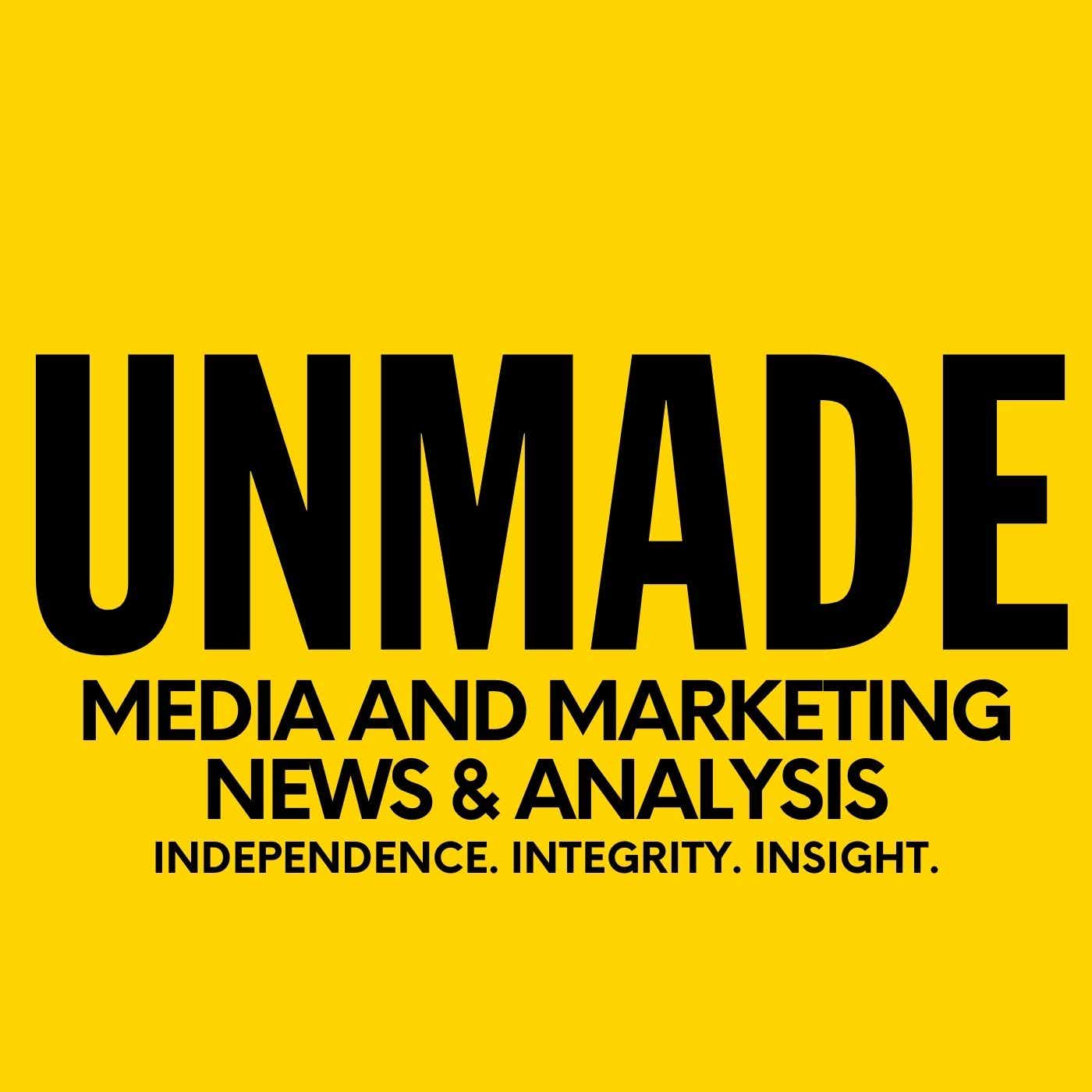
Business
News
Tim Burrowes
Media and marketing news with all the in-depth analysis, insight and context you need.
Unmade offers industry news from an Australian perspective, from the founder of Mumbrella and the author of the best-selling book Media Unmade, Tim Burrowes www.unmade.media

Start the Week: How the TV networks are planning a premium video exchange; Web rankings redux; The rise of subscription video
Welcome to Start the Week, our Monday morning scene-setter for the week ahead.Today:* Australia’s TV networks plot a BVOD exchange* Introducing Australia’s new audience measurement service - Iris* The continued rise of retail media* New data suggests more people are consuming subscription video than free TVToday’s episode feature Tim Burrowes and Abe Udy.Further reading:* The Australian: The not so secret rise of retail media networks* Australian Financial Review: TV industry asks tech to help build YouTube-killer ad network* The Australian: Viewers flock to paid streaming services, new report showsAudio production was courtesy of Abe’s Audio, the people to talk to about voiceovers and sound design for corporate videos, digital content, commercials and podcasts.Message us: [email protected] This is a public episode. If you’d like to discuss this with other subscribers or get access to bonus episodes, visit www.unmade.media/subscribe
19:4206/03/2023
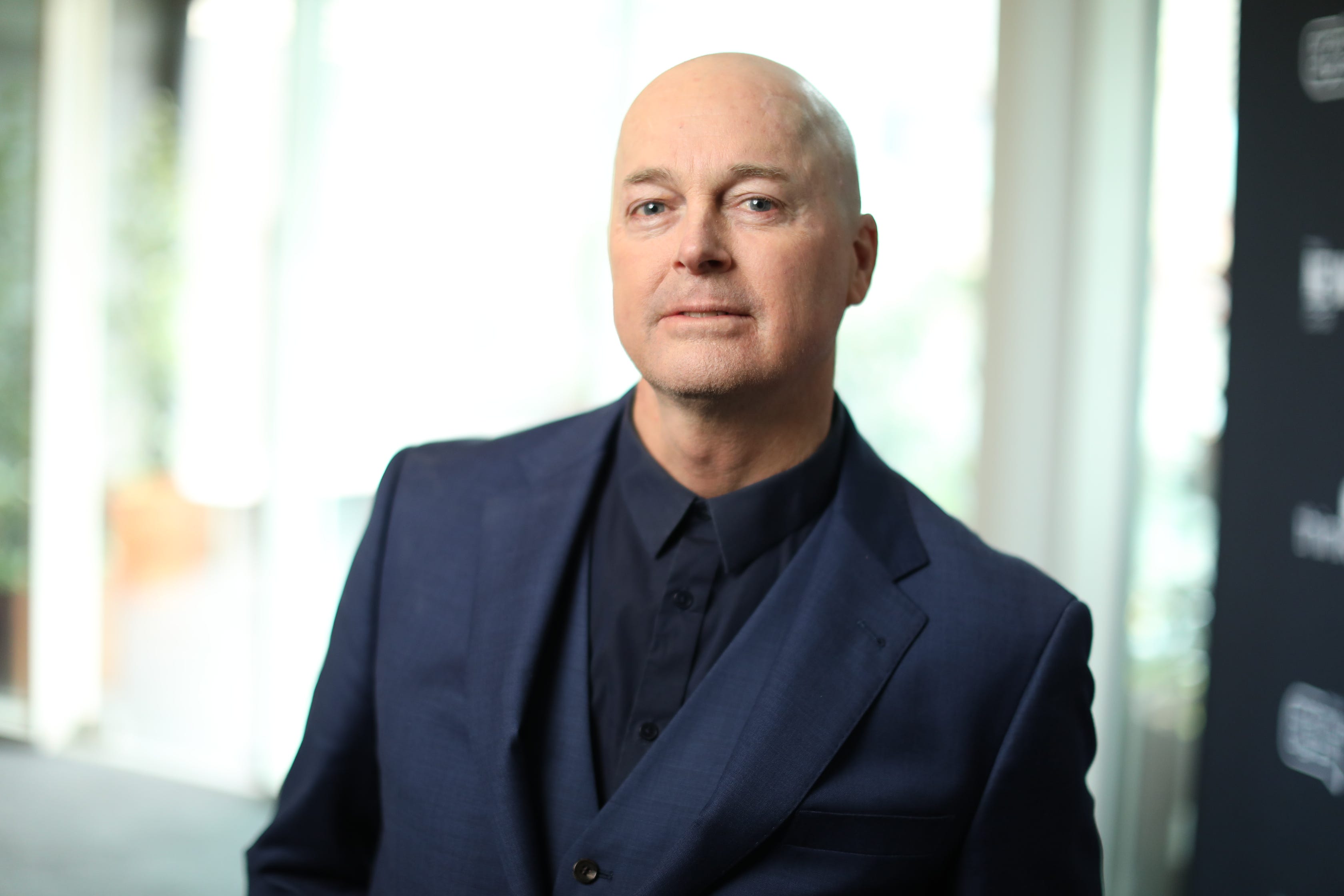
Nearly time to turn off the transmitters. The viewing shift is happening faster than you think
Welcome to an audio-led edition of Unmade.TV’s inflection point is coming. Any time now (or maybe it happened in the last few weeks), the proportion of the Australian population who watch television the traditional way will fall below half for the first time.But as fast as traditional ways of watching are falling, new viewing habits are forming - or that’s what the data in Think TV’s regularly produced Fact Pack suggests.Analysis of OzTam data for the second half of last year by Think TV suggests that commercial audiences are on the move - from television consumed via their aerials, to video streams.In today’s Unmade podcast, Tim Burrowes talks to Think TV’s director of research, insights & education Steve Weaver and to the organisation’s CEO Kim Portrate about the meaning behind the numbers.In the first half of 2022, just over 14.1m Australians - or 54.3% of the potential viewing population - were watching TV and only doing it the linear way, via their aerials or Foxtel dish.By the second half of 2022, that number had fallen to 13.3m, or 51%.A question Portrate and Waver address during the conversation is whether in the early months of 2023, we have since passed the inflection point, and less than 50% of Australians are now watching TV the old-fangled way.Also revealed in the data is that in the first half of last year, 3.6m (or 13.7% of the population) were watching commercial TV on a combination of linear TV or via streaming. That rose to 4.1m, or 15.6% of the population, by the second half.The number of people giving up on their aerial or dish to watch broadcast TV only via streaming also rose sharply - from 1.5m to 1.8m. With some smart TVs, the viewers may not even have realised that’s what they were doing.Reassuringly for the TV industry, the jump in streaming viewing seems to be going up almost as fast as the linear switchoff is occurring. Total reach across linear and BVOD (broadcast video on demand) only dipped from 19.23m to 19.17m, a fall of just 0.3%.It’s worth noting that all of the analysis is based on OzTam data which only covers Australia’s broadcasters, not streaming-only platforms like Netflix or Stan.During the wide ranging conversation, we raise the issue of the TV industry’s slow implementation of a daily total viewing number to move away from the fast-fading overnight metro metric.Portrate says that will happen this year. In the conversation she was also challenged to predict how long until the TV transmitters can be turned off altogether as streamign becomes the only means of viewing. It might be sooner than you think. And we canvassed both Weaver and Portrate on whether the likes of Netflix would be welcomed onto OzTam in the same way the streamer has been allowed onto the UK’s audience measurement service.The full Fact Pack is available on the Think TV websiteTim BurrowesPublisher - [email protected] This is a public episode. If you’d like to discuss this with other subscribers or get access to bonus episodes, visit www.unmade.media/subscribe
36:1101/03/2023

Start the Week: Local podcast spend revealed; Another HBO lifeline for Binge; What results season told us
Welcome to Start the Week, our Monday morning scene-setter for the week ahead.Today:* Australia’s podcasting spend revealed* Another HBO extension for Foxtel* A Logies mystery* Will the government take on the networks on quotas?* What we learned from results seasonToday’s episode feature Tim Burrowes and Abe UdyFurther reading:* IAB Australia: Digital Audio Advertising Spend Surges To $221m In Australia* The Australian: Foxtel poised to ink multi-year deal with US media giant Warner Bros Discovery* The Australian: Media Diary: The Logies: no date, no location* The Australian: Albanese government faces pushback on streaming content obligations* Unmade: Nine's Sneesby gets better at navigating the awkward questions* Unmade: Tuesdata: Profits begin to fall as Seven West Media prepares for a chilly 2023* Unmade: Tuesdata: Unpacking Ooh Media's financial results; can the good old days of 2019 return?* Unmade: The end game approaches for HT&E* Unmade: Southern Cross Austereo has had its worst ever start to a financial year. Can Listnr change the trajectory?Audio production was courtesy of Abe’s Audio, the people to talk to about voiceovers and sound design for corporate videos, digital content, commercials and podcasts.Message us: [email protected] This is a public episode. If you’d like to discuss this with other subscribers or get access to bonus episodes, visit www.unmade.media/subscribe
22:0726/02/2023
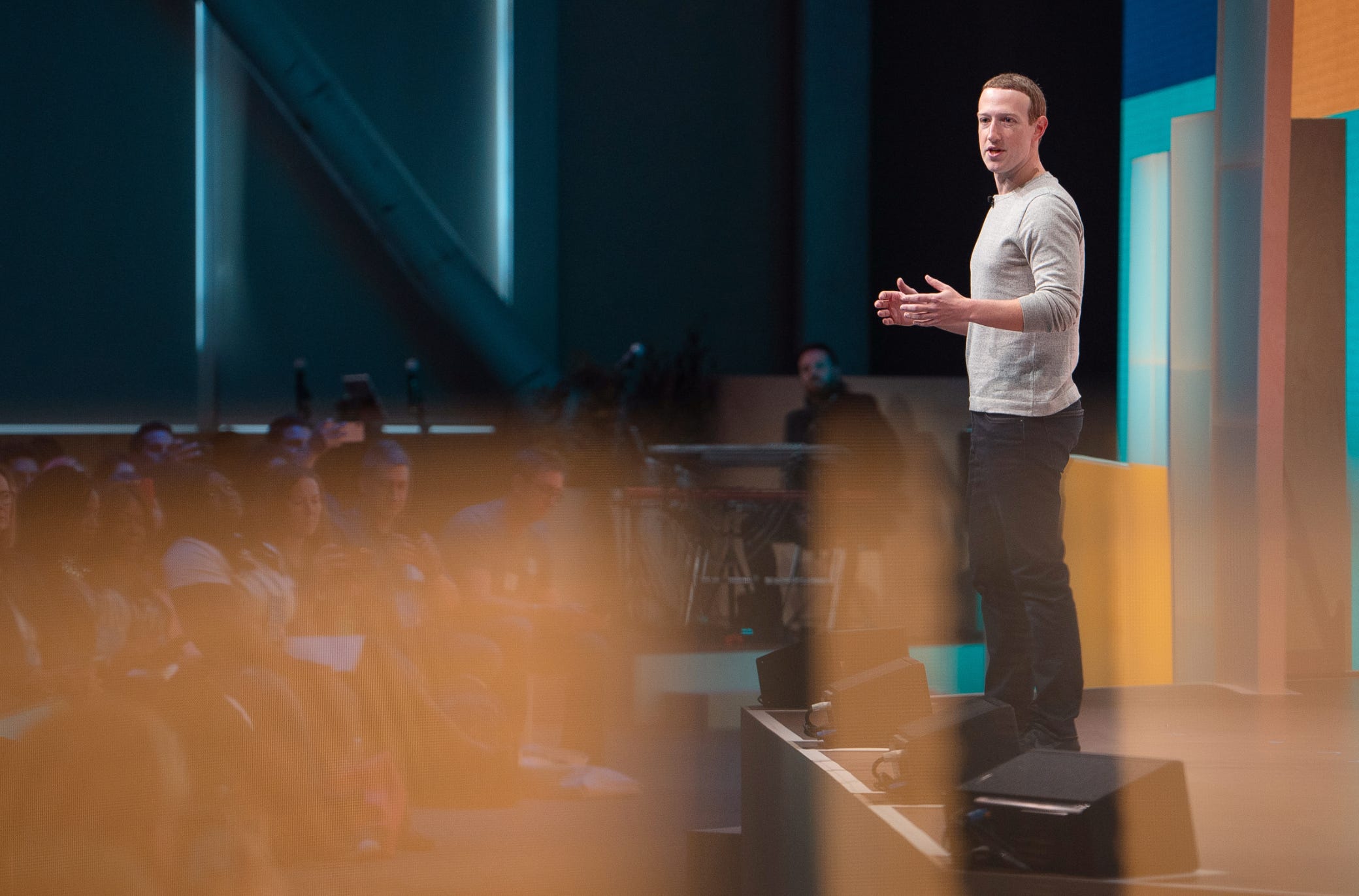
Start the Week: Meta launches paid verification; Results season unpacked; How media companies are prepping for a downturn
Welcome to Start the Week, our Monday morning scene-setter for the week ahead.Today:* Meta launches paid verification (but that’s not the bit worth paying for);* Adland prepares for the downturn;* What to expect in the last big week of results seasonToday’s episode feature Tim Burrowes and Abe UdyFurther reading:* Meta Newsroom: Testing Meta Verified to Help Creators Establish Their Presence* The Australian: ABC’s triple apology to Kamahl over Phillip Adams tweet misses the mark* Australian Financial Review: News Corp’s REA asks workers to go into ‘negative leave’ to cut costs* Australian Financial Review: Why TV execs aren’t (too) worried about a 22pc plunge in ad spend* Unmade: Southern Cross Austereo has had its worst ever start to a financial year. Can Listnr change the trajectory?* Unmade: Profits begin to fall as Seven West Media prepares for a chilly 2023* Australian Financial Review: HT&E’s biggest investor sees benefits to media consolidationAudio production was courtesy of Abe’s Audio, the people to talk to about voiceovers and sound design for corporate videos, digital content, commercials and podcasts.Message us: [email protected] This is a public episode. If you’d like to discuss this with other subscribers or get access to bonus episodes, visit www.unmade.media/subscribe
18:2919/02/2023

Spinach's Ben Willee on the meaning of Nine's Olympics win, why it's okay to say the R-word, and loyalty in a fickle industry
Welcome to an interview-led edition of Unmade. Today’s primary focus is Melbourne media veteran Ben WilleeFor a second week in a row, Unmade’s podcast features a Melbourne based media expert called Ben. This week’s guest is Ben Willee, GM and media director of the WPP-aligned Spinach Advertising. Willee has been with Spinach for the last 11 years. Earlier in his career he spent a decade with IPG’s Initiative, in London and Melbourne.The interview, with Unmade’s Tim Burrowes, focuses on the short term and long term media outlook (Without predicting a recession, Willee is considering for the eventuality); he offers his interpretation of the first results from reporting season; and he assesses the importance of The Olympics in Nine’s strategy.Willee also suggests that some of those who’ve got used to flitting between jobs in a tight talent market might be about to get a painful surprise. And like all of us, he wishes there were more LinkedIn thought pieces on what ChatGPT means for marketing.Audio production was courtesy of Abe’s Audio, the people to talk to about voiceovers and sound design for corporate videos, digital content, commercials and [email protected] This is a public episode. If you’d like to discuss this with other subscribers or get access to bonus episodes, visit www.unmade.media/subscribe
37:4815/02/2023

Start the Week: A Seven-HT&E merger?; Breaking Bad wins the Super Bowl; What to watch for in financial results season
Welcome to Start the Week, our Monday morning scene-setter for the week ahead.Today:* M&A chat: a tie-up between Seven West Media and HT&E?;* Results season - How News Corp fared and the outlook for SWM, Southern Cross Austereo, Enero and Domain this week;* Breaking Bad pulls in the Super Bowl attention;* How Married At First Sight is killing the oppositionToday’s episode feature Tim Burrowes and Abe UdyFurther reading:* Australian Financial Review: Seven eyes plan to create Australia’s next $1 billion media company* Unmade: Wind turns for News Corp* CBS Sports: Super Bowl commercials - A sneak peak at the ads that will air during Super Bowl 57 between Eagles and Chiefs* NFL Game Pass* Nine: TV Ratings Week 6* The Australian: Media Diary - The Project battles after Carrie and Lisa exitsAudio production was courtesy of Abe’s Audio, the people to talk to about voiceovers and sound design for corporate videos, digital content, commercials and podcasts.Message us: [email protected] This is a public episode. If you’d like to discuss this with other subscribers or get access to bonus episodes, visit www.unmade.media/subscribe
26:1712/02/2023
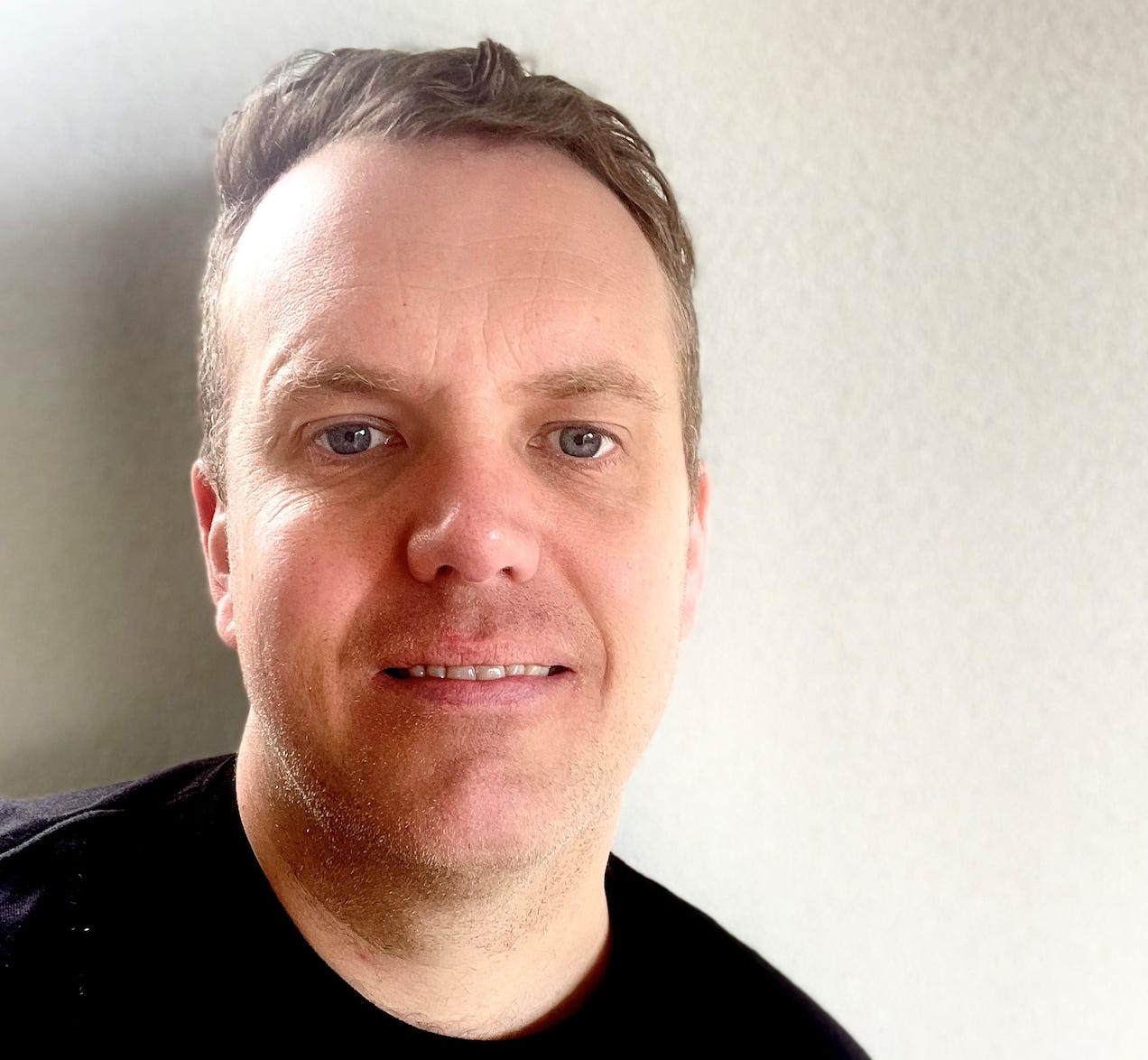
Ben Shepherd on why retail media is up with adwords as a media invention; how sales people can get his attention; and the 2023 outlook
Welcome to an interview-led edition of Unmade. Today’s primary focus is Ben Shepherd’s first in depth interview since joining Dentsu as chief investment officer. Talking DentsuIn the first Unmade podcast interview of the year, Dentsu’s new chief investment officer Ben Shepherd joined Unmade’s Tim Burrowes.In the wide-ranging interview, Shepherd explains why he sees retail media as one of the most elegant, “wealth creating” media developments since adwords; he argues that there’s nothing wrong with leaving a job after a couple of years if you feel you’re not making the impact you want to; and he explains the style he will bring to negotiations with media owners.Audio production was courtesy of Abe’s Audio, the people to talk to about voiceovers and sound design for corporate videos, digital content, commercials and [email protected] This is a public episode. If you’d like to discuss this with other subscribers or get access to bonus episodes, visit www.unmade.media/subscribe
48:2708/02/2023
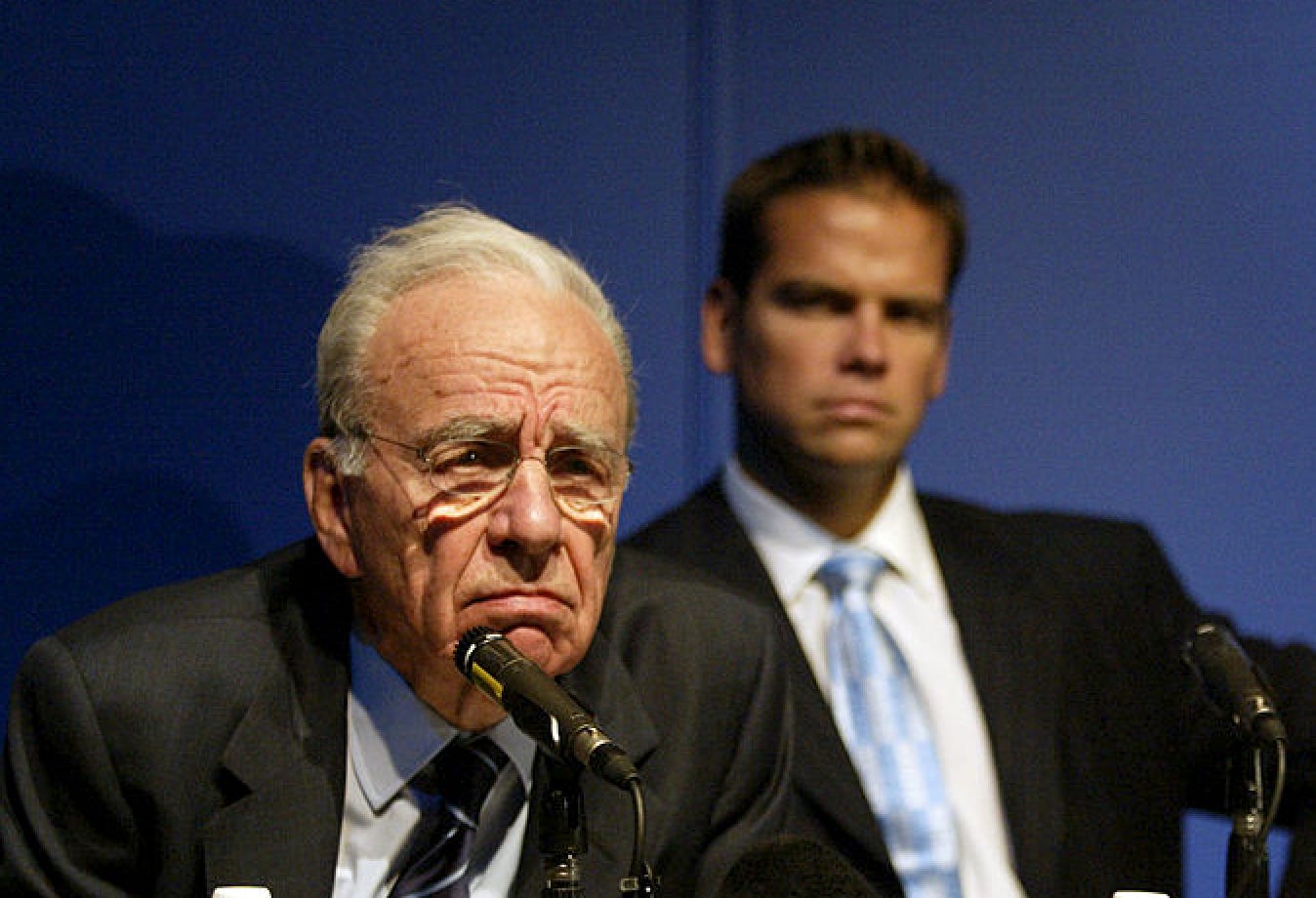
Start the Week: Catalano and Janz both make moves; What to look for in the News Corp results; TV ad revenue falls
Welcome to Start the Week, our Monday morning scene-setter for the week ahead.Today:News Corp gears up for results week, and weighs cuts with ‘Audience 25’ project;Will the new quotas be a boost for Foxtel’s HBO hopes?Chris Janz prepares to exit stealth modeANZ invests in Antony Catalano’s real estate play;Has the TV ad market peaked?Today’s episode feature Tim Burrowes and Abe UdyFurther reading:Sydney Morning Herald: Murdoch’s News Corp Australia prepares to slash costs by $20 millionSydney Morning Herald: What next for White Lotus? Content rules may change HBO’s streaming plansAustralian Financial Review: Former Fairfax executives score VC backing for mystery start-upAustralian Financial Review: ANZ went house hunting at Domain, bought at View MediaThink TV: Total TV advertising market records $4.1 billion in ad revenue for 2022Unmade: Waiting for VOZAudio production was courtesy of Abe’s Audio, the people to talk to about voiceovers and sound design for corporate videos, digital content, commercials and podcasts.Message us: [email protected] This is a public episode. If you’d like to discuss this with other subscribers or get access to bonus episodes, visit www.unmade.media/subscribe
25:4505/02/2023

The year in review: CMO moves; brand crises; a Netflix U-turn; war for the Market Herald; the madness of Musk and ABC's audio audience collapse
Welcome to the final Start the Week podcast of 2022, in which Tim Burrowes and Abe Udy look back on the ten biggest stories of the year.Brand PR crises of 2022:* Unmade: Has Qantas got a brand crisis or just a PR problem?* Unmade: Optus writes a new chapter in the crisis handbookThe big marketer moves:* Unmade: Biggest CMO move of the year - Thinking Smart* Unmade: Lisa Ronson departs one of the biggest CMO roles, but how to mark her Coles scorecard?* Unmade: Marketers on the move - Melissa Hopkins to SWMThe AFL TV rights renewal:* Unmade: Why Seven and Foxtel are willing to pay $40,000 per minute for the AFL dealThe Market Herald saga:* Unmade: The Unmade podcast: Jag Sanger of The Market Herald on buying Gumtree and Carsguide, and launching a newspaper* Unmade: Inside the The Market Herald's civil warThe ABC’s audio audience decline:* Unmade: Is the ABC's next generation of radio listeners coming through? Not according to the ratings* Unmade: Triple J's youth audience has fled. And no, it's (mostly) not the internet's fault - they've switched to commercial radio* Unmade: Australia's most influential radio show has never had fewer listeners. The ABC's audience problem is getting worse* Unmade: The collapse of Patricia Karvelas’ RN audienceMusk’s Twitter purchase:* Unmade: Why Elon Musk's Twitter takeover will probably fail* Unmade: Rich, talented arseholes* Unmade: Elon’s Twitter bloodbath begins* Unmade: Musk's 'thermonuclear' threat to advertisersThe legal year:* Unmade: Media's season in court: How The Teacher's Pet changed Australia's podcast landscapeThe year of audio:* Unmade: What we learned from Listnr* Unmade: The economics of podcasting* Unmade: Mamamia takes on the podcast giantsNetflix moves in to advertising:* Unmade: The Netflix U-turnThe year in Unmade:* Unmade: Two awards, a fraud, and an unwelcome exit: the messy trajectory of Unmade’s startup phaseAudio production was courtesy of Abe’s Audio, the people to talk to about voiceovers and sound design for corporate videos, digital content, commercials and podcasts.ITim [email protected] This is a public episode. If you’d like to discuss this with other subscribers or get access to bonus episodes, visit www.unmade.media/subscribe
32:1018/12/2022

Start the Week: Ten swings for the cricket; Musk goes after Twitter alumni; Paul Barry closes on Media Watch record
Welcome to the Start the Week podcast, looking at the agenda for the week ahead. Today:* Ten closes on cricket rights* Another chaotic weekend inside the brain of Elon Musk* Paul Barry set for Media Watch recordToday’s episode feature Tim Burrowes and Abe UdyFurther reading:* Australian Financial Review: Ten vows to ‘restore cricket to former prominence’ after $200m+ bid* The Australian: Cricket chiefs face final pitches for broadcast rights* The Australian: Paul Barry signs on to top Media Watch recordAudio production was courtesy of Abe’s Audio, the people to talk to about voiceovers and sound design for corporate videos, digital content, commercials and podcasts.Message us: [email protected] This is a public episode. If you’d like to discuss this with other subscribers or get access to bonus episodes, visit www.unmade.media/subscribe
19:0011/12/2022
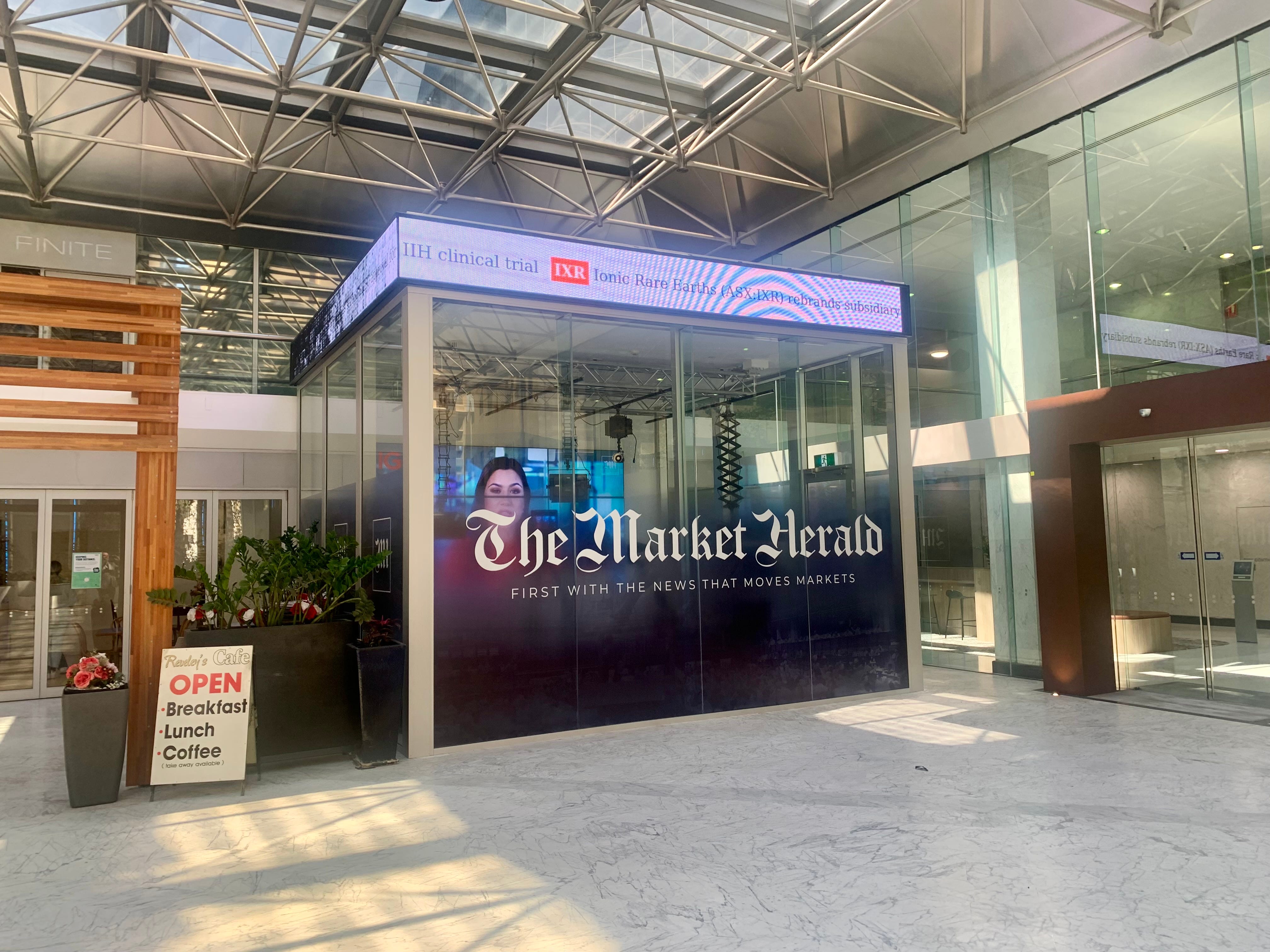
StW: Brand trouble from the bondage bear; The Twitter files; TMH's bloody boardroom coup
Welcome to the Start the Week podcast. Today:* Anti-siphoning lobbying goes into overdrive* Will TikTok and YouTube be pulled into the News Media Bargaining Code?* What the Balenciaga scandal says about fashion mags* Musk’s feeble “Twitter Files”* The war at The Market HeraldToday’s episode feature Tim Burrowes and Abe UdyFurther reading:* Sydney Morning Herald: TikTok, YouTube could be targeted under Australia’s media code* Australian Financial Review: Seven, Nine, Ten fight to keep sport on free to air TV* The Australian: ‘Outdated, anti-competitive’: TV’s anti-siphoning laws face overhaul* New Daily: Balenciaga’s reputation in tatters after ‘creepy’ photo shoot* New Daily: What Balenciaga’s BDSM controversy tells us about high fashion’s dire problems* Wired: The Twitter Files Revealed One Thing: Elon Musk Is Trapped* Unmade: How the ASX’s fastest growing media company implodedAudio production was courtesy of Abe’s Audio, the people to talk to about voiceovers and sound design for corporate videos, digital content, commercials and podcasts.Message us: [email protected] This is a public episode. If you’d like to discuss this with other subscribers or get access to bonus episodes, visit www.unmade.media/subscribe
23:0104/12/2022
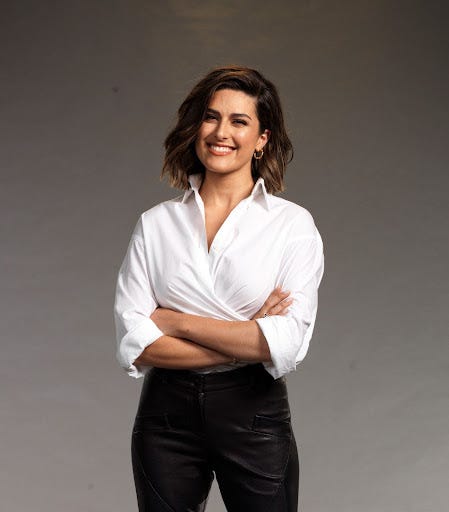
StW: New faces at Today and A Current Affair; Winners of the TV ratings year; Molloy in Sydney
Welcome to the Start the Week podcast, recorded first thing on Monday, looking at the agenda for the week ahead. Today:* Winners and losers of the TV ratings year* All change at A Current Affair and Today* Mick Molloy’s return to Triple MFurther reading:* Australian Financial Review: TV ratings spark fighting and soul-searching among executives* The Australian: Seven casts a wide sports net* Mumbrella: OzTam ratings 2022: Seven retains total audience crown, while Nine keeps key demos* Unmade: In praise of The Project - why teatime telly still matters to the networks* The Australian: Intrigue grows over how Ten plans to redeploy Lisa Wilkinson* Unmade: Can Molloy win over Sydneysiders from 700km away?Audio production was courtesy of Abe’s Audio, the people to talk to about voiceovers and sound design for corporate videos, digital content, commercials and podcasts.Message us: [email protected] This is a public episode. If you’d like to discuss this with other subscribers or get access to bonus episodes, visit www.unmade.media/subscribe
20:0027/11/2022
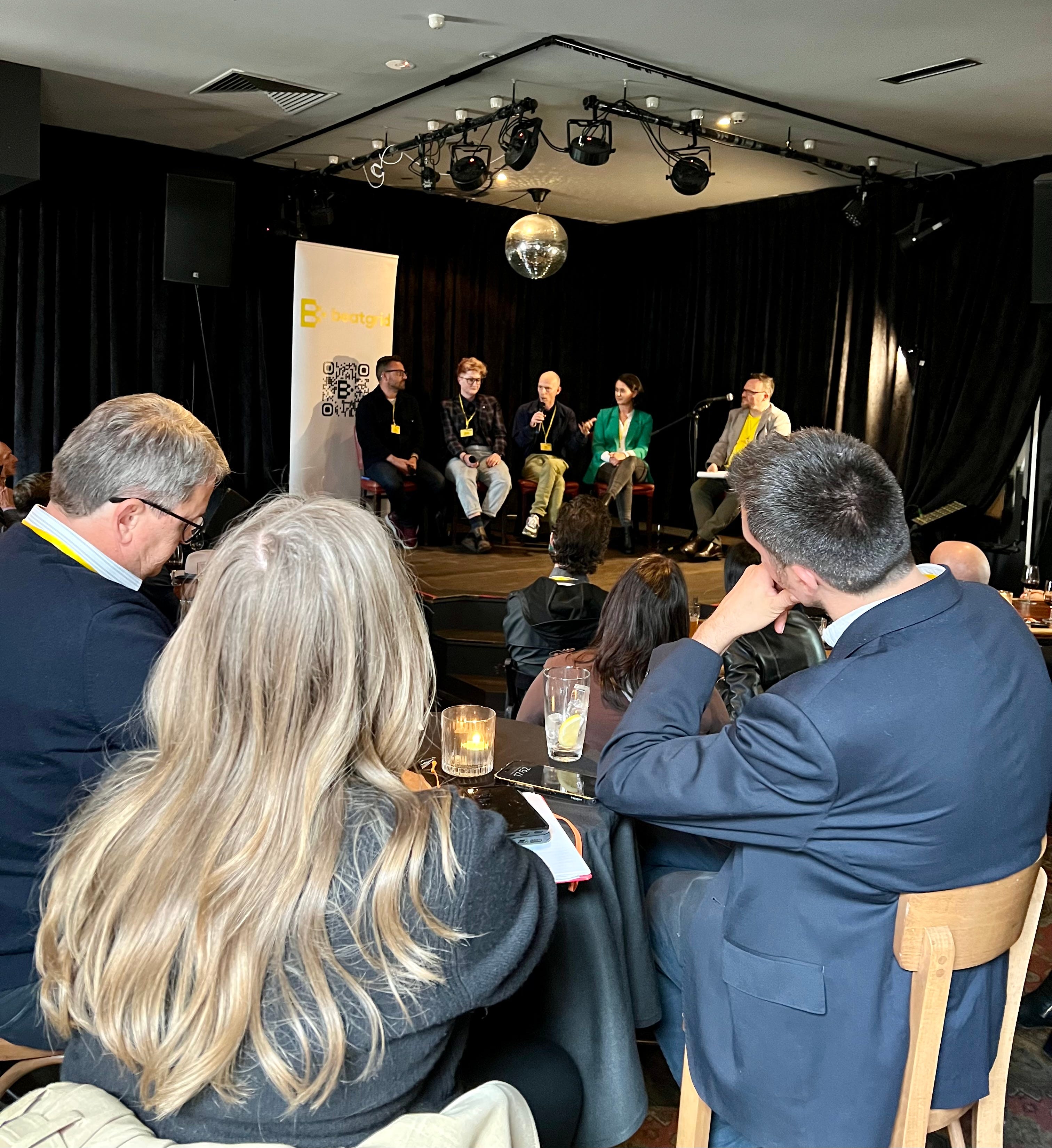
Marketing in 2023 with Nick Garrett, Naomi Johnston, Richard Curtis and Andrea Dixon
Today’s edition features highlights from last week’s live event in Melbourne where our panel discussed the year just gone, and the outlook for marketing in 2023.Last Tuesday saw Unmade’s first live event in Melbourne, with 70 or so guests joining us at the Grace Darling in Collingwood for on on stage debate about the industry’s direction of travel.The panel featured Nick Garrett, partner at Deloitte Creative; Naomi Johnston, GM of Havas Media; Richard Curtis, owner of Futurebrand Australia and Andrea Dixon, head of marketing at DocuSign.Among the questions the panel raced through were: the work and people that impressed them in the year just gone; what the word ‘brand’ now means; the state of talent and recruitment, the economic headwinds that seem set for 2023; and reasons for optimism.The event was sponsored by Beatgrid.Even more thanks than usual for the podcast edit go to Abe’s Audio, who salvaged our low-fi backup recording into something [email protected] This is a public episode. If you’d like to discuss this with other subscribers or get access to bonus episodes, visit www.unmade.media/subscribe
54:3324/11/2022
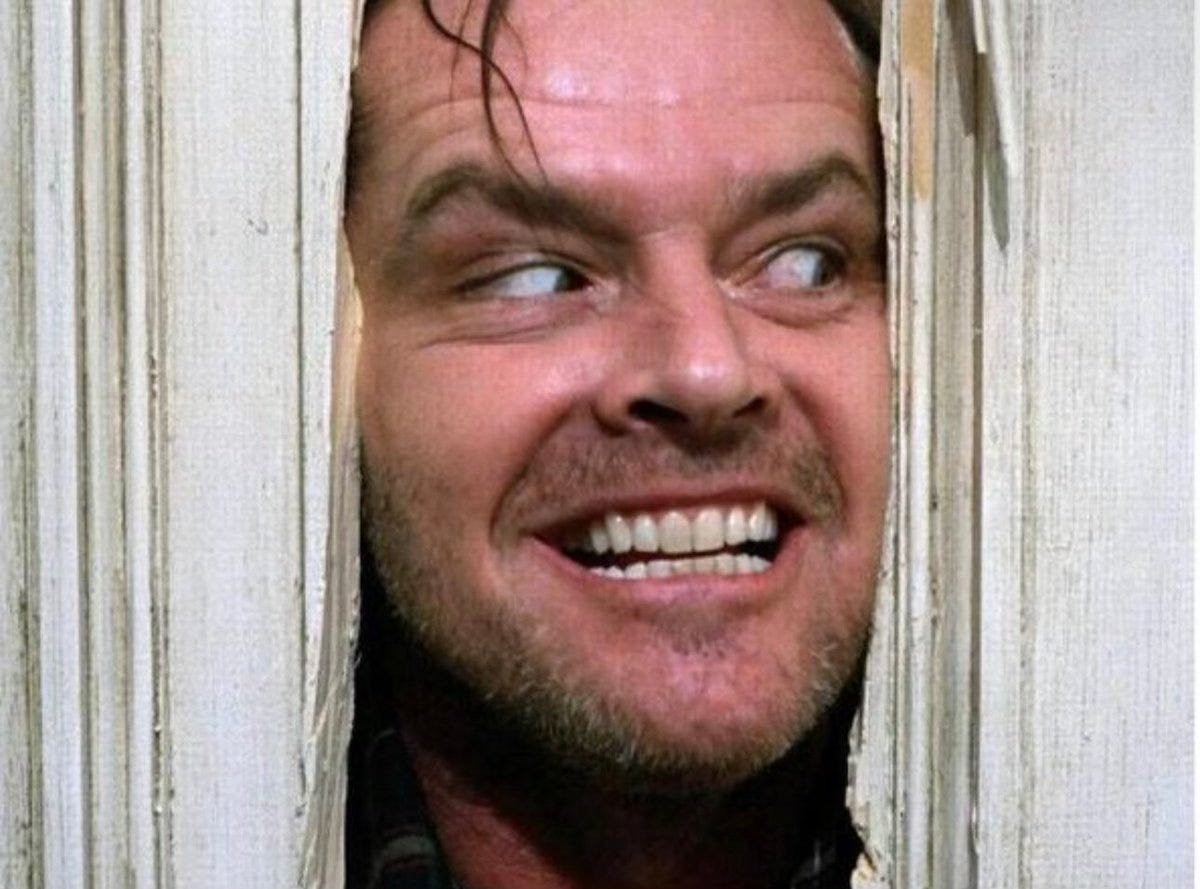
StW: The journo departure lounge; Return of Twitter's most toxic; The readership sausage
Welcome to the Start the Week podcast looking at the agenda for the week ahead. Today:* Lisa Wilkinson leaves The Project* Chris Dore leaves The Australian* Peter Fray takes a break from Crikey* Elon Musk gives up on brand safety, and reinstates Twitter’s most toxic - Jordan Peterson, Donald Trump, Kanye West and Andrew Tate* How the sausage is made in newspaper readership dataFurther reading:* Sydney Morning Herald: Top News Corp editor departed after lewd comments towards woman* Sydney Morning Herald: Crikey editor-in-chief on indefinite leave after journalism awards incident* Unmade: #RIPTwitter?* Bloomberg: Twitter’s Survival as a Subscription Service Depends on Apple and Google* The Australian: Readership: The Australian stays well ahead of rival in latest Roy Morgan researchAudio production was courtesy of Abe’s Audio, the people to talk to about voiceovers and sound design for corporate videos, digital content, commercials and podcasts.Message us: [email protected] This is a public episode. If you’d like to discuss this with other subscribers or get access to bonus episodes, visit www.unmade.media/subscribe
22:5620/11/2022
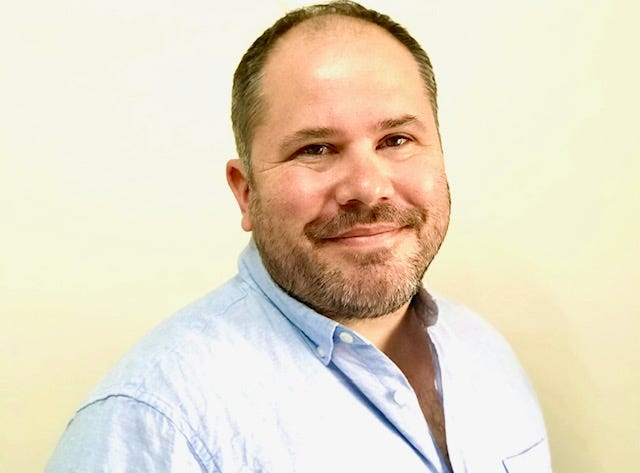
The Unmakers: Jamie Harding, CEO of Theatrix - the new streaming platform for the arts
In today's episode of The Unmakers, Unmade’s Tim Burrowes talk to Jamie Harding, founder and CEO of streaming platform Theatrix.Theatrix targets arts-loving consumers who want to recapture the experience of attending the theatre, at home.Still at an early stage, the platform has launched and begun to sign up subscribers at a fee of $8 per month.The content offered by Theatrix is filmed arts performances including theatre and dance.In the interview, Harding talks about how Theatrix was conceived, and the challenges of launching a streaming platform at the height of Covid. Theatrix is currently undergoing an investment round aimed at widening its reach.Today's episode of The Unmakers was edited by Abe's Audio. If you're an unmaker with a story to tell about how you're changing the media and marketing world, we’d love to hear from you on [email protected]. This is a public episode. If you’d like to discuss this with other subscribers or get access to bonus episodes, visit www.unmade.media/subscribe
29:1415/11/2022
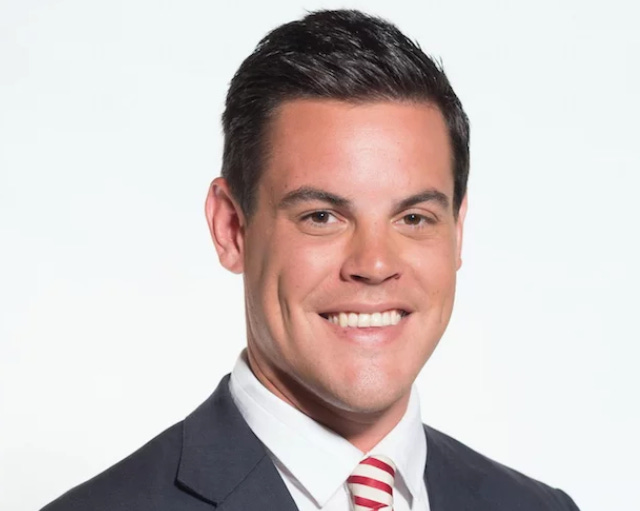
Start the Week: Why 2GB split with Jim Wilson; Closing in on a cricket deal; Mega Meta cuts
Welcome to the Start the Week podcast, looking at the agenda for the week ahead.Today:* Cricket, Olympics and tennis rights play out* Who won the TV ratings week* Why 2GB moved on from Jim Wilson;* Kyle & Jackie O’s unusual ratings jump* Communications minister on the stalled media regulations* Did the news media bargaining code work?* More chaos at TwitterFurther reading:* The Australian: Cricket Australia eyeing off a pre-Christmas broadcast rights deal* Sydney Morning Herald: Olympic bosses fly in to negotiate Games broadcast deal* Nine / OzTam: Weekly TV ratings wrap* Unmade: The mystery of Kyle & Jackie O* Australian Financial Review: Media giants flush with Facebook-Google money like the new normal* SMH: ‘Stuck in a rut’: Diversity rules to be overhauled in major media reform* SMH: Meta Australia braces for impact of global job cutsAudio production was courtesy of Abe’s Audio, the people to talk to about voiceovers and sound design for corporate videos, digital content, commercials and podcasts.Message us: [email protected] you’re in Melbourne, don’t forget to take a look at out Marketing in 2023 event, which is next week.I’ll be back tomorrow with Tuesdata for our paying members.Have a great day.Toodlepip…Tim [email protected] This is a public episode. If you’d like to discuss this with other subscribers or get access to bonus episodes, visit www.unmade.media/subscribe
21:3913/11/2022
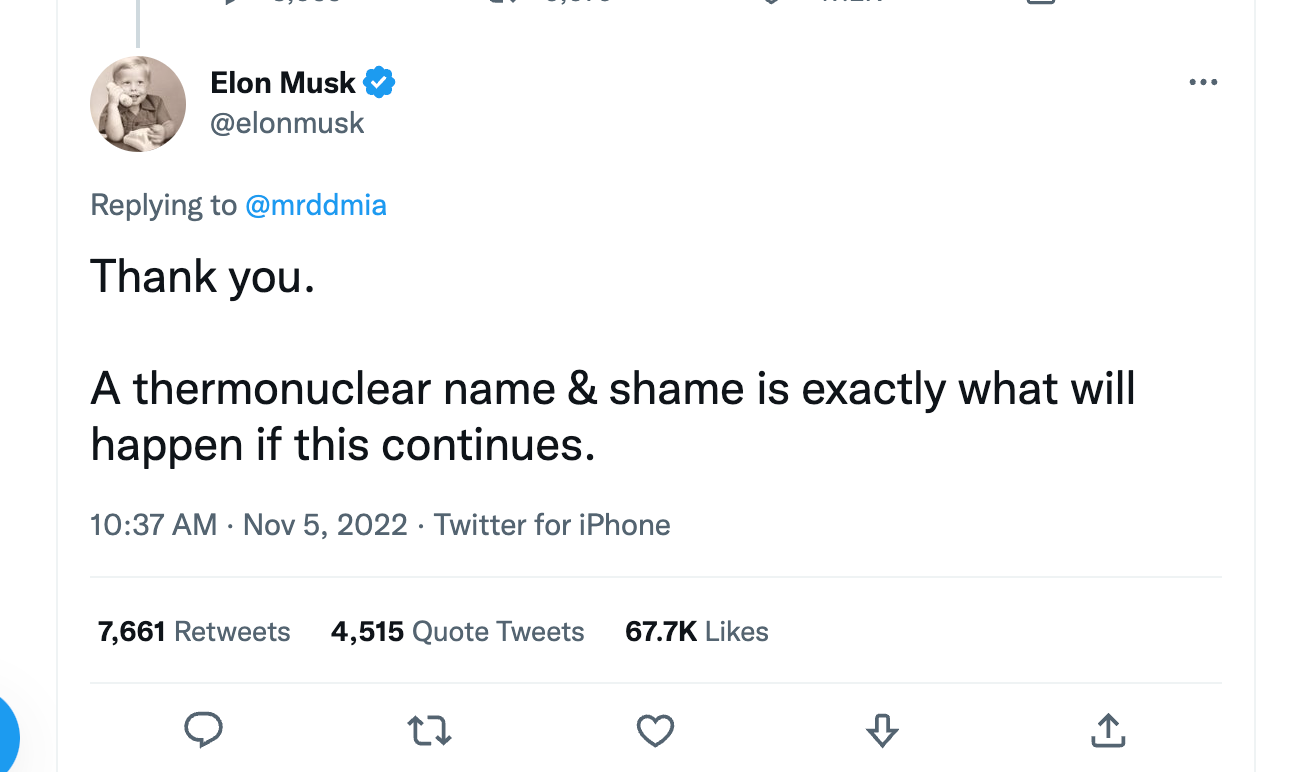
Start the Week: Musk's 'thermonuclear' threat to advertisers; Nine to extend tennis deal as cricket bidding begins; ABC shakeup
Welcome to the Start the Week podcast, recorded first thing on Monday, looking at the agenda for the week ahead.Today:* Twitter lays off half its staff, including most of the Australian team* Musk threatens ‘thermonuclear’ retaliation against marketers who cancel advertising;* Nine closes in on tennis rights extension as cricket bidding opens* The ABC prepares for radical management restructureToday’s episode features Tim Burrowes and Abe Udy. As always, we’d love to hear what you think at [email protected] reading:* Australian Financial Review: Nine on verge of new Australian Open deal, as Cricket accepts bids* Sydney Morning Herald: ABC boss David Anderson to restructure organisation, shift to BBC model* Marketing Week: Mark Ritson - Five lessons on how not to do pricing from Elon Musk’s TwitterAudio production was courtesy of Abe’s Audio, the people to talk to about voiceovers and sound design for corporate videos, digital content, commercials and podcasts.Message us: [email protected] This is a public episode. If you’d like to discuss this with other subscribers or get access to bonus episodes, visit www.unmade.media/subscribe
21:3506/11/2022
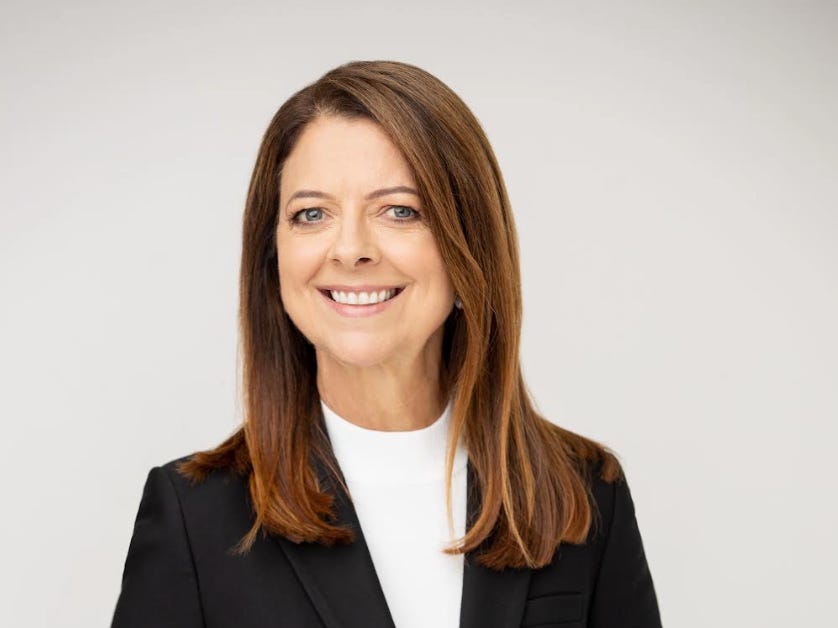
Why Ooh Media's Cathy O'Connor has been anything but bored with outdoor
Welcome to an audio-led edition of Unmade.Today’s interview features Ooh Media boss Cathy O’Connor reflecting on her first two years with the company, while further down we have the details of a red day on the Unmade Index.In today’s Unmade interview, I chat to Cathy O’Connor as she approaches the two year mark with Ooh Media.We cover a lot of ground, beginning with her reminding me that when she took the job I’d (wrongly) suggested she might find it boring, after the excitement of running Lachlan Murdoch’s radio company Nova Entertainment.We discuss Ooh’s pledge to make public spaces better in the wake of the backlash to QMS’s City of Sydney rollout; the adjustment from running a private business to an ASX-listed company; why she’s the only female CEO of a big media company; her decision to sell Junkee; and her agenda for the Outdoor Media Association after boss Charmaine Moldrich departs next year.We also cover off the announcements from last week’s Ooh Outfront event - including the push into retail media through ReOoh, a tie up with Tennis Australia; measuring creative effectiveness in outdoor, and buying out of home advertising programatically.We also cover what O’Connor did not know when she took the job, and what she’d like to change about the industry. It’s a packed 36 minutes.Audio production was courtesy of Abe’s Audio, the people to talk to about voiceovers and sound design for corporate videos, digital content, commercials and podcasts.Tim [email protected] This is a public episode. If you’d like to discuss this with other subscribers or get access to bonus episodes, visit www.unmade.media/subscribe
37:2903/11/2022
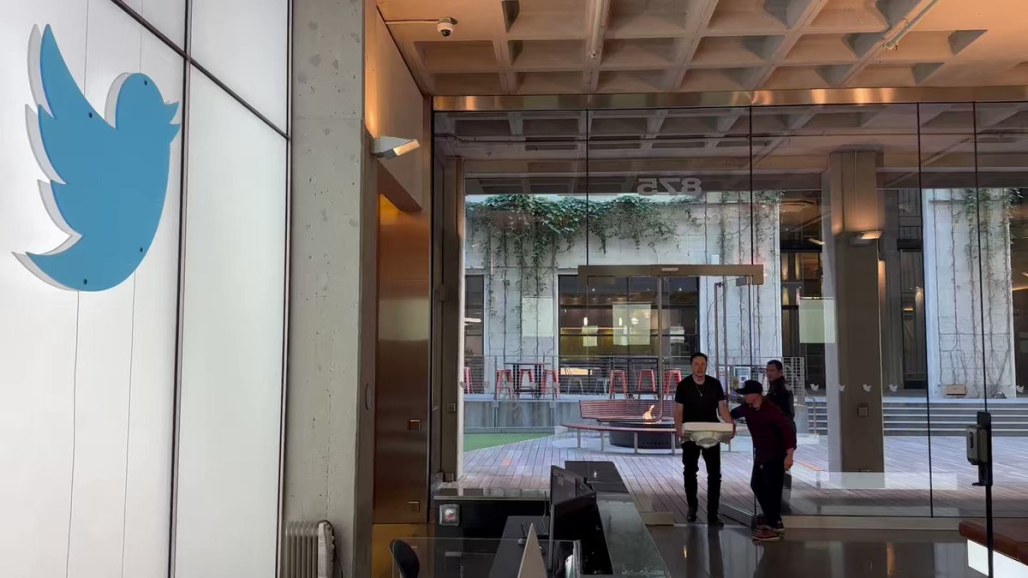
Start the Week: Elon's Twitter bloodbath begins; Mutiny's new start; the Rebel Wilson verdict
Welcome to the Start the Week podcastToday:* Elon Musk bursts into Twitter* Mutiny rebrands as Mutinex, and makes a big hire* Verdict on the Seven and Ooh Media upfronts* Press Council verdict on the outing of Rebel WilsonToday’s episode features Tim Burrowes and Abe Udy. As always, we’d love to hear what you think at [email protected] production was courtesy of Abe’s Audio, the people to talk to about voiceovers and sound design for corporate videos, digital content, commercials and [email protected] This is a public episode. If you’d like to discuss this with other subscribers or get access to bonus episodes, visit www.unmade.media/subscribe
24:4730/10/2022
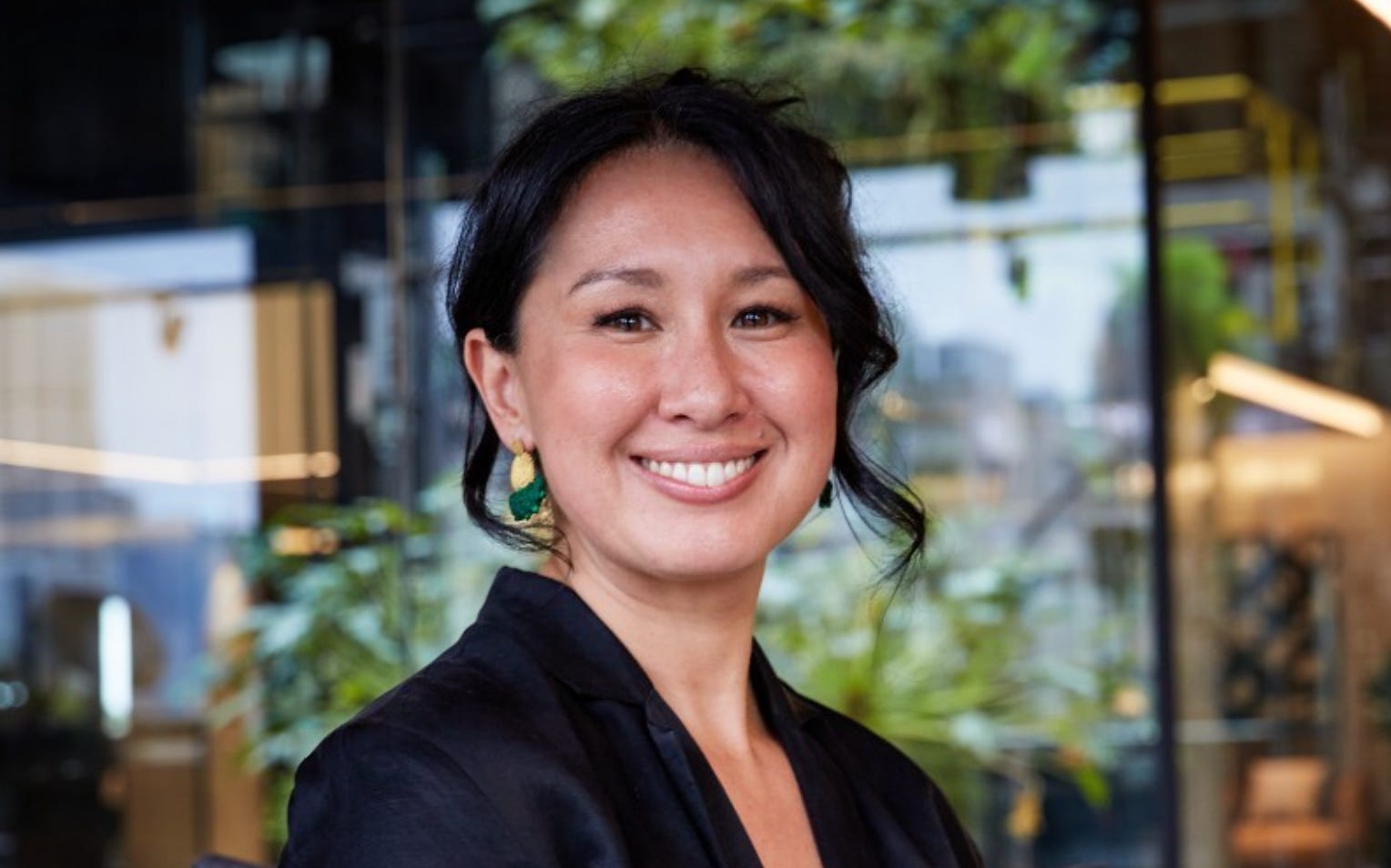
What good is doing good? Leo Burnett's Catherine King on what the public expects from brands
Today’s topic: Do the public expect brands to do good, and what does that actually look like?Truth be told, when I was first offered the opportunity to cover today’s topic, I was hesitant.There’s been a lot of bandwagon jumping around the area of brand purpose and corporate social responsibility, not just in brands trying to boost their credentials in the space, but agencies positioning themselves as the ones to do so.But the subject of today’s podcast - Leo Burnett’s study of public expectations around brands doing good - is more pragmatic.In my conversation with Catherine King, chief strategy officer of Leo Burnett, we cover a lot of ground - including scepticism around brands’ true intent, the reality that companies’ underlying behaviour matters more than actions happening only at a branding level, and the moment when brands can actually start talking about their activities.We also dive into the intriguing statistic that Sky News Australia viewers appear to be the most likely to be selfish, with 27% of them saying they’d be unwilling to pay more for a brand that does the right thing. By contrast, Ten News viewers are the most altruistic, with 84% saying they’d be willing to pay [email protected] This is a public episode. If you’d like to discuss this with other subscribers or get access to bonus episodes, visit www.unmade.media/subscribe
25:0426/10/2022
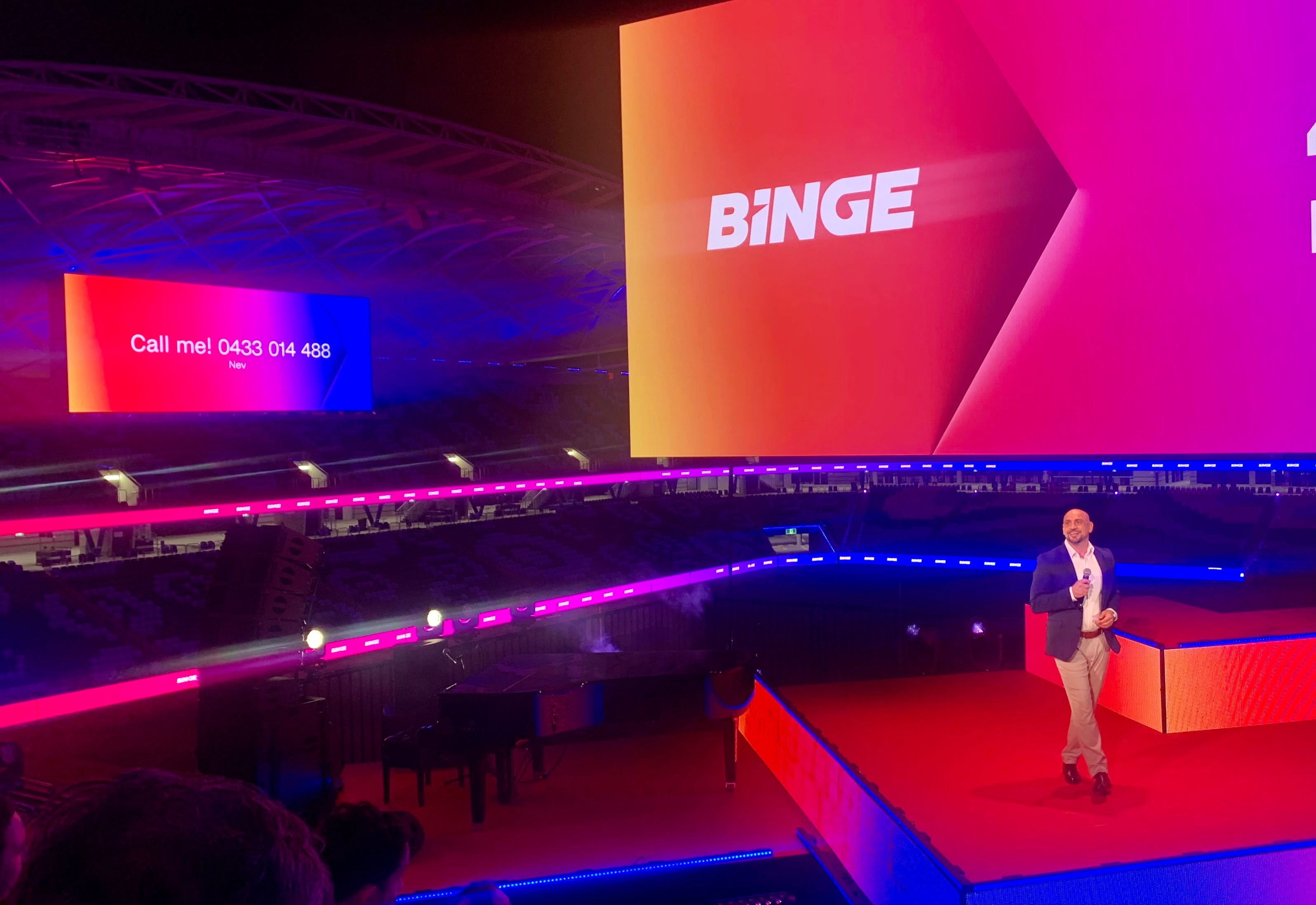
StW: Hi, Bayo: Foxtel set to merge Binge and Kayo; Will Nine swoop for early tennis deal? ABC shifts priorities
Welcome to the Start the Week podcast, recorded first thing on Monday, looking at the agenda for the week ahead.Today:* Foxtel plans for Binge and Kayo merger* Nine considers its options for Stan* The ABC prepares to shift budget to digital* Tennis rights set for early renewalToday’s episode features Tim Burrowes and Abe Udy. As always, we’d love to hear what you think at [email protected] This is a public episode. If you’d like to discuss this with other subscribers or get access to bonus episodes, visit www.unmade.media/subscribe
19:4023/10/2022

The Unmakers: Sinorbis founder Nico Chu on helping western marketers crack Asia
Welcome to an audio-led edition of The Unmakers, featuring Nicolas Chu, founder and CEO of Australian marketing technology startup Sinorbis.As well as running Sinorbis, Chu is former MD of Expedia Asia Pacific and Professor of Practice at UNSW Business School.Sinorbis helps marketers, mostly in the higher education and B2B sector, to tailor their messages using the right language and platforms for the countries they are targeting. The company already offers its services to clients in Australia, New Zealand, the UK and US.Yesterday Sinorbis announced it was expanding its offering from covering just the Chinese market to the whole of Asia.If you’ve been forwarded this by someone else, don’t forget to sign up for our almost-daily email at unmade.mediaIf you’re doing something new in media and marketing, I’d love to talk to you on The Unmakers. Email me at [email protected] production on the podcast was courtesy of Abe’s Audio, the people to talk to about voiceovers and sound design for corporate videos, digital content, commercials and podcasts.Have a great dayToodlepip…Tim Burrowes This is a public episode. If you’d like to discuss this with other subscribers or get access to bonus episodes, visit www.unmade.media/subscribe
26:4119/10/2022
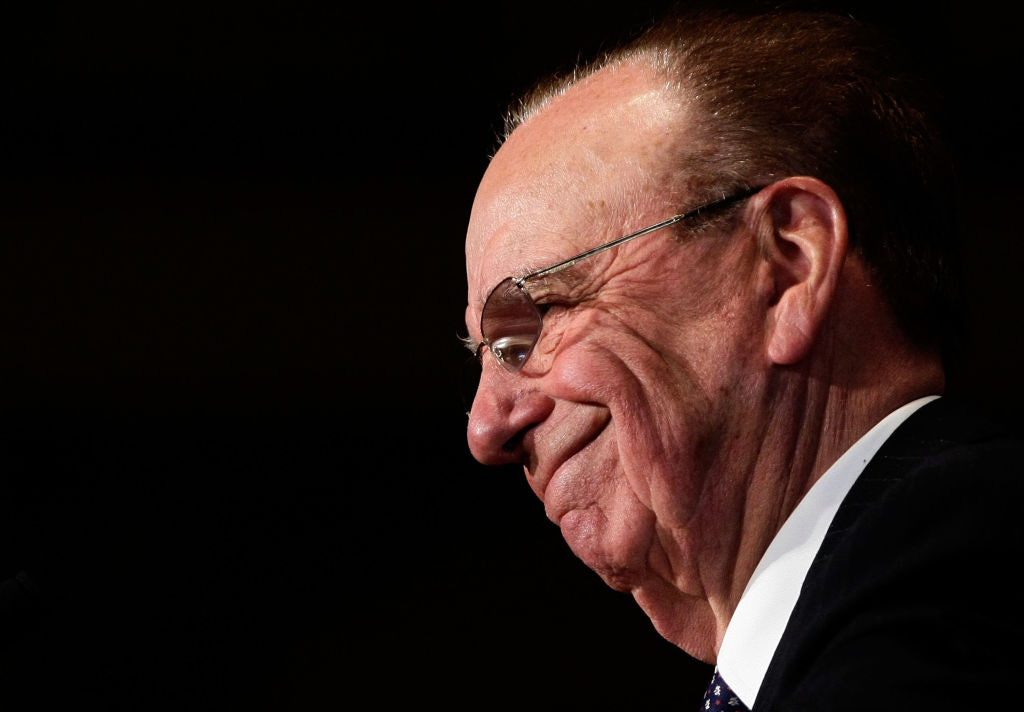
StW: News Corp's merger; Stan to lose its NBCU deal? A disastrous media launch; Frankly's ratings stinker
Today:* Implications of the News Corp - Fox Corporation re-merger* Modernising the anti-siphoning laws* Who won the ratings week?* Frankly’s weak ratings start* Nine and Stan set to lose NBC Universal content* Carrie Bickmore’s million dollar pay packet* Ten gets sued by its own employee* The failing launch of news.netToday’s episode features Tim Burrowes and Abe Udy. As always, we’d love to hear what you think at [email protected] us: [email protected] This is a public episode. If you’d like to discuss this with other subscribers or get access to bonus episodes, visit www.unmade.media/subscribe
26:1716/10/2022

The Unmakers: How Storipress founder Alex Pan wants to reinvent digital publishing
Today's edition of The Unmakers features Alex Pan, founder of Australia-based publishing technology startup Storipress. The Unmakers is Unmade’s podcast where I interview entrepreneurs starting new businesses and projects seeking to change how the media and marketing industry does business.Created as a code-free alternative to the likes of WordPress and Substack, Storipress broke cover back in July, revealing it had raised $500,000 in seed funding.Storipress has been accepted onto the local startup accelerator project Startmate, with early investors including former Junkee Media cofounder Tim Duggan.In the conversation, Pan shares the story of how frustrations with his own publishing venture inspired him to create a new platform, and shares his philosophy on what’s needed to fix the ecosystem and how he wants to become “Shopify for media companies”.If you’re doing something new in media and marketing, I’d love to talk to you. Email me at [email protected] This is a public episode. If you’d like to discuss this with other subscribers or get access to bonus episodes, visit www.unmade.media/subscribe
28:3712/10/2022
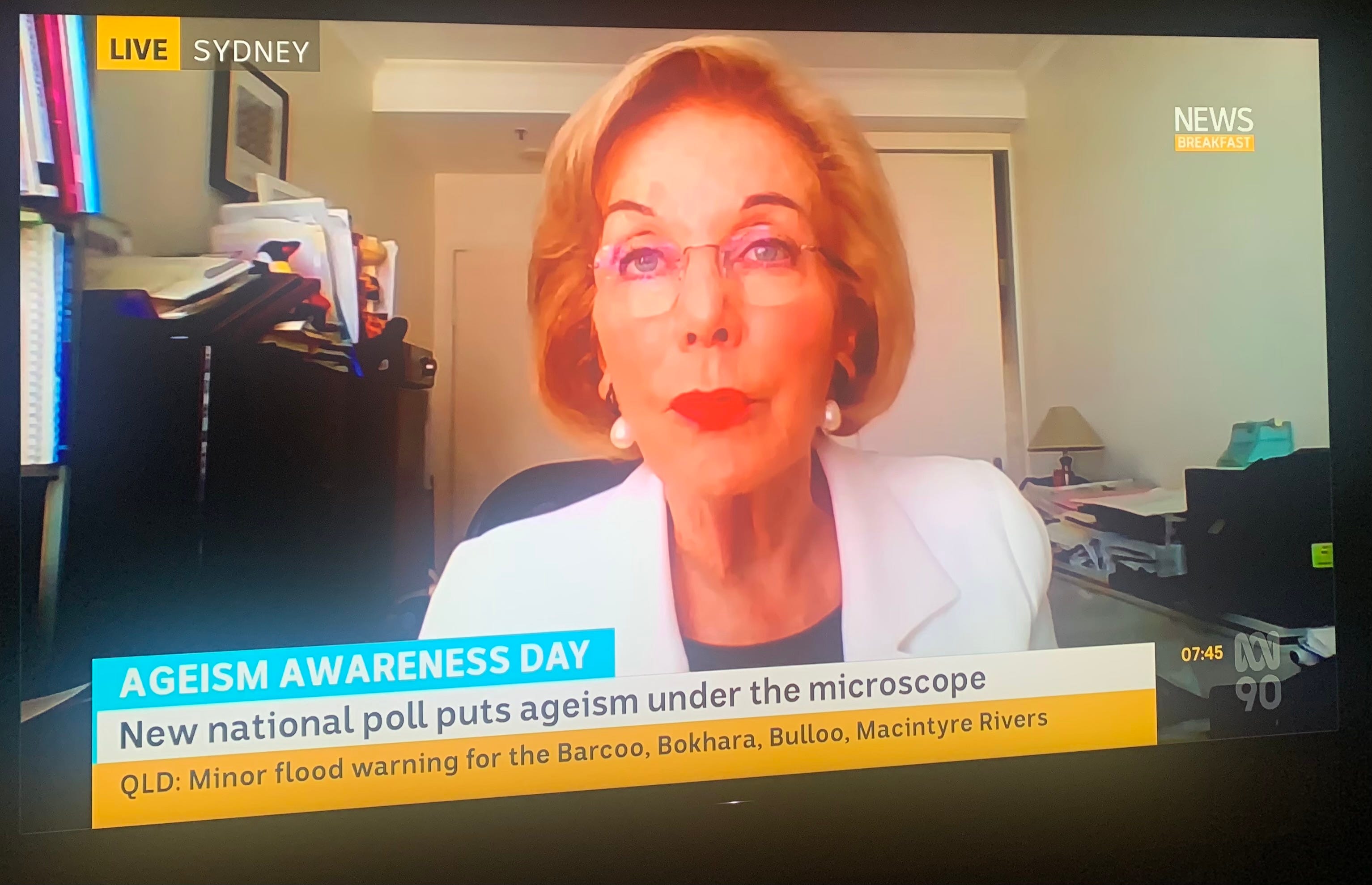
StW: F1 shambles; Dodgy government ad spend; Ita doubles down on missing ABC audience; Networks lobby on CTV
Welcome to the Start the Week podcast, recorded first thing on Monday, looking at the agenda for the week ahead. Today:* Formula 1 finale’s TV shambles* Grand finals ratings: Comparing the codes* Paramount shifts target to cricket* Government offers connected TV support for local players* Ratings duds from Love Boat and Frankly* ABC rejects youth criticisms* Governments’ questionable ad spendToday’s episode features Tim Burrowes and Abe Udy. As always, we’d love to hear what you think at [email protected] message from our sponsor:Global but proudly local, Paramount ANZ is taking brands into tomorrow.From a mountain of content to innovative advertising solutions, Paramount ANZ connects brands with future generations who are tomorrow’s customers. See tomorrow.Relevant links:* news.com.au: Max Verstappen crowned world champion in farcical scenes* Sydney Morning Herald: Paramount could bat for cricket, remains bullish on sports rights* Sydney Morning Herald: Dropping the ball? What to make of the TV ratings for footy grand finals* Australian Financial Review: Streaming apps come to the rescue for local TV networks* Nine: Weekly Oztam analysis* The Australian: Ita defends Fran* Australian Financial Review: Governments spend more on ads than Harvey Norman and MaccasAudio production was courtesy of Abe’s Audio, the people to talk to about voiceovers and sound design for corporate videos, digital content, commercials and podcasts.Message us: [email protected] This is a public episode. If you’d like to discuss this with other subscribers or get access to bonus episodes, visit www.unmade.media/subscribe
22:2609/10/2022
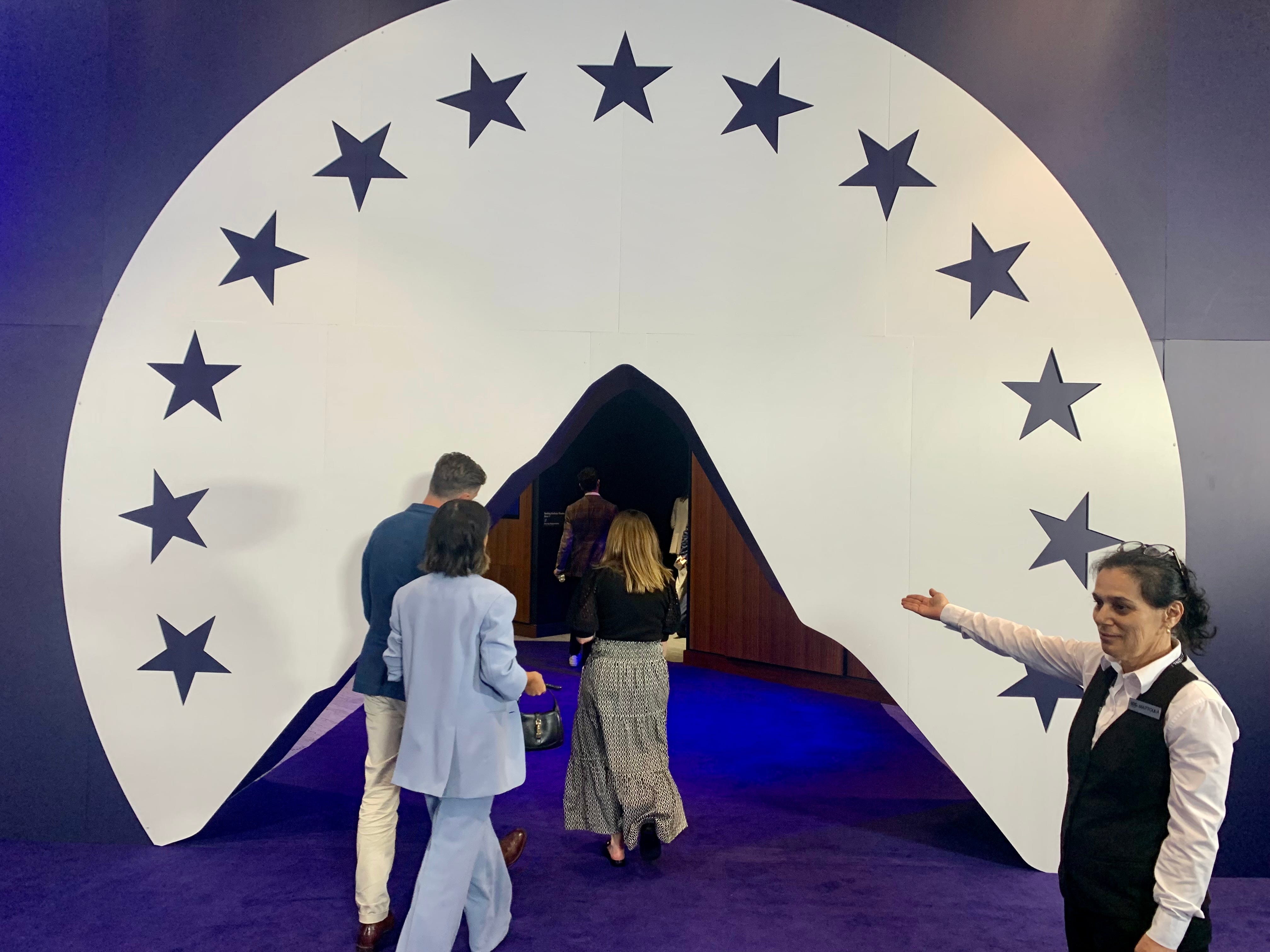
Paramount Upfront: How the Pluto FAST channels will change the game
Of the big three, we’re now two Upfronts in. Nine went first, back in mid-September, and yesterday it was the turn of Ten’s owner, Paramount, which took over the ICC for the afternoon to tell us its plans for 2023.Returning from the pandemic live event hiatus, there have been new Upfronts themes. Both Nine and Ten opened with performances from indigenous Australians. Both leaned into the dry ice. Nine went for flames, while Ten had glitter cannons in the ceiling. Both gave almost as much prominence to their tech partnerships as they did the content slate. And both emphasised the scale of their wider companies.This is where they begin to diverge.In Nine’s case, the scale comes from width - the multi-platform nature of the company, with TV, radio and publishing offerings. In the case of Paramount, the scale comes from depth - being the only free to air network that’s part of a global media organisation. Being the people who brought you Top Gun is quite the halo.While Nine’s theme last month was “Australia belong here”, Paramount’s was “See tomorrow”.As you’ll see from the top of this page, there’s also audio embedded, and available as a podcast to accompany this post. Earlier this week, I interviewed Paramount’s content boss Beverley McGarvey and commercial boss Jarrod Villani and we talked not just about 2023, but the company more widely.I realised that I had automatically labelled the file where I stored my interview notes “Paramount”, not “Ten”. Five years after Ten was bought out of administration by CBS (which quickly became Viacom-CBS and then Paramount), it now feels like a company that adds up to more than Ten-and-the-other-bits.Paramount owns not just the pay TV brands of MTV and Nickelodeon, but also the subscription streaming platform Paramount Plus and, as the company announced yesterday, the free ad supported TV channels offering of Pluto TV.The hot new acronym is FAST - free ad-supported streaming television. FAST will be as important to the next phase of the TV networks as the launch of BVOD (broadcast video on demand) was five or six years ago. It’s the next TV battleground.Viewers consume FAST channels differently to video on demand. For anyone who’s lost half an hour dithering over a menu of shows, FAST restores the curation of broadcast, and that means more video consumption.The point of FAST channels is that, like broadcast television, the choice is made for the viewer. It’s lean back, not lean forward. Channel surfing is back too.I wrote about the likely arrival of Pluto TV late last year, so it’s not a surprise to see it coming.As you’ll hear in the podcast, Paramount is being cagey about how many Pluto channels will be offered initially as part of its free 10play streaming platform. When I pushed Villani on it a couple of times, all he’d share was “a number”. Although he wouldn’t say so, I understand that number will be initially be between 10 and 20. In terms of timing, Villani said it would be this side of Christmas.My guess is that just as Ten All Access rebranded to Paramount Plus, in time 10play will fully rebrand to Pluto TV. Pluto is big business for Paramount globally, already writing a billion dollars in revenues.Nine announced at its Upfront that it will launch its own FAST channels, but had so little detail my guess is that it is some way off launch. For something so strategically important that feels like a miss.Meanwhile, Seven West Media - which holds its Upfront in just over a fortnight from now - was actually first mover in this market and already offers 50 FAST channels on Seven Plus in addition to its broadcast brands.Another point of difference for Ten was that unlike Nine, it revealed its programming grid for the year. Curiously, it broke 2023 into two uneven halves - the eight months up to August, and the final four from September onwards.In recent years Ten has started its main schedule early, while Nine and Seven are still airing their summer sports of tennis and cricket. But I’m A Celebrity will no longer kick off Ten’s year, shifting back to Easter, with production returning to Africa rather than the rain forest of Murwillumbah.Instead, Ten will start the year with The Bachelors, as it remixes the format with three Bachelors instead of one. It will also be resting companion series The Bachelorette this year. The revised format had previously been announced, but footage from the show got one of the strongest reactions in the room yesterday. I could see myself enjoying hate watching these nitwits.Conversely, I suspect that the Paramount team would have been more disappointed with the in-room reaction to the announcement of a local version of the UK show Taskmaster. It is well cast with Tom Gleeson as the local Taskmaster, but it’s one of those shows that unless you’ve seen it, it’s hard to understand the appeal. Although it will run in the first half, it’s not yet in local production, so there were no clips. Extracts from the UK version didn’t do much to advance that understanding. The Ten promo department usually does a better job.That said, the chase format Hunted, which launched last year, was similarly hard to capture in a sizzle reel beforehand, but that didn’t stop it from being one of Ten’s successes of 2022.Other detail for the first half included a shorter series of Masterchef than usual, and a UK-Australian co-production of cop-out-of-water comedy drama North Shore.The other trailer which got a big reaction was Last King of the Cross, the Underbelly-style glorification of the less than savoury John Ibrahim. This will run in the second half of 2023.There are more new formats in H2.Ten will offer a spin-off from Masterchef, Dessert Masters. It will also air The Traitors, a murder mystery guessing game hosted by Rodger Corser. There was already footage in the can of this one which suggests Ten isn’t exactly itching to rush it on air as soon as possible. The trailer felt more like a dinner party game than primetime.Bravely, Ten also announced a second season of The Real Love Boat. In an awful piece of timing, it made its debut on Wednesday night to poor ratings of just 215,000 metro viewers. Unless those improve dramatically over the next couple of weeks, there seems little prospect of that making the 2023 schedule despite what the grid said.Meanwhile, the announcements about technology were tactical rather than strategic.A shop-the-tweet integration between Ten and Twitter called The Checkout felt a few years late. remember companion apps?And a number of announcements around connected television advertising integration and measurement came across as necessary but not particularly exciting plumbing.The See Tomorrow theme was appropriate for a number of reasons. The major one is that we are yet to see the Paramount spending power unleashed on sport. The company only narrowly missed out on AFL rights last month. Imagine how different yesterday’s event would have been if it had won.Instead Villani referred on stage a couple of times to the $12bn parent company’s financial strength. You don‘t have to read too far between the lines to see that as a willingness to continue to chase big sports rights. As the network that made Big Bash a hit in the first place, Ten is a more natural home for short form cricket than Seven. And to a global company like Paramount, the Olympics must be of major interest too.Sport is the major missing piece for Paramount. In the last financial year, Ten’s revenue share of the metro broadcast advertising market was less than 24%, while Nine and Seven did about 38% each. Ten can only grow that by growing its audience.See tomorrow? We will eventually.Tim Burrowestim @unmade.media This is a public episode. If you’d like to discuss this with other subscribers or get access to bonus episodes, visit www.unmade.media/subscribe
39:1306/10/2022
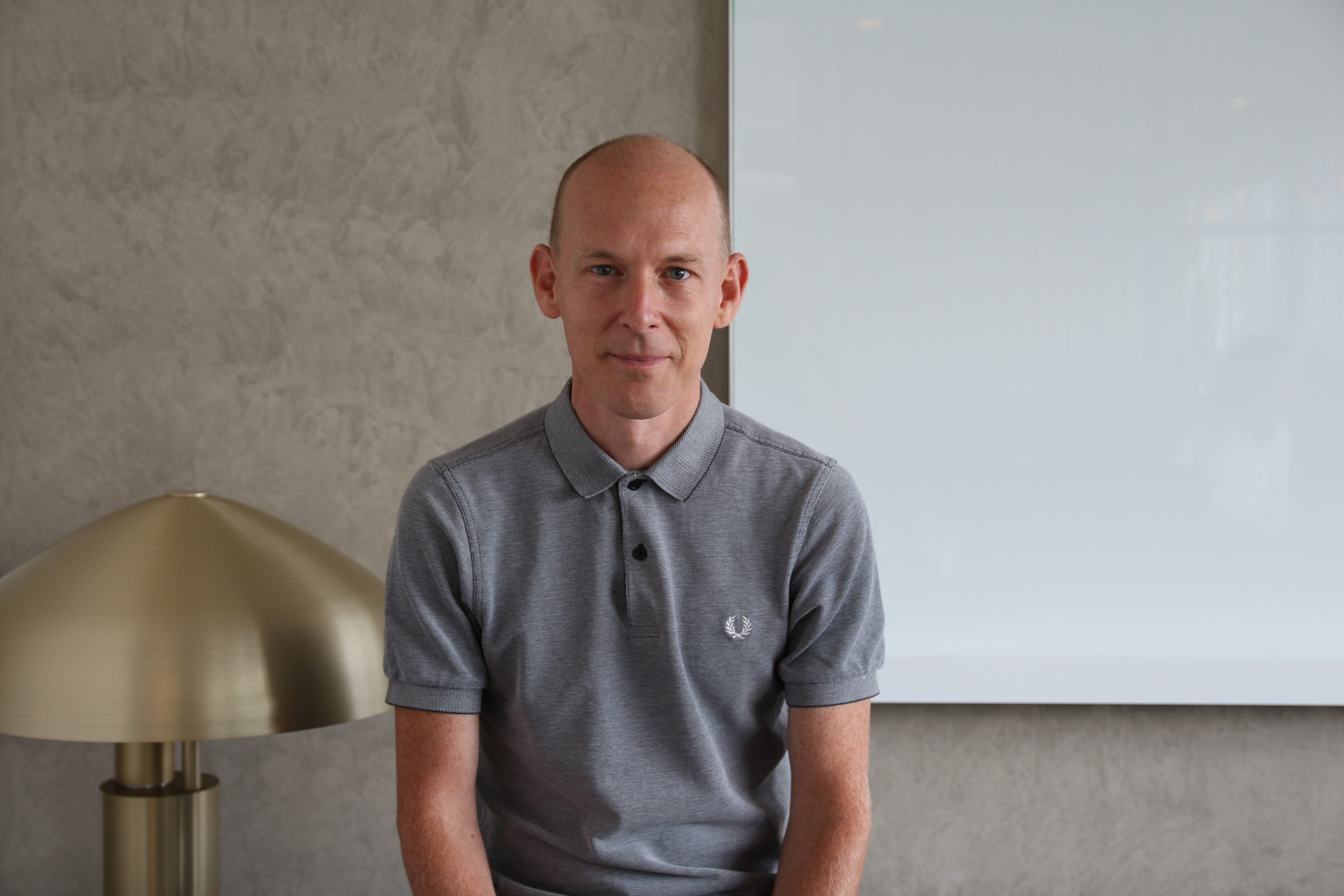
The Unmade podcast: Rich Curtis on the biggest names on the FutureBrand Index, election campaigning and Meta's reputation recovery
Welcome to a Thursday edition of the Unmade podcast featuring the CEO of FutureBrand Australia, Rich Curtis. In the conversation, we talk about the top global companies featured in this year’s FutureBrand Index, and how he ended up helping win an outsider election campaign.The FutureBrand Index is an exploration of perceptions of the world’s top 100 global brands by size.Just two Australian-headquartered brands are big enough to make it onto the list - BHP and CommBank.Among the surprises is the improvement in Meta’s ranking since the rebranding of Facebook’s parent company. And the number one company on the index has almost no profile in Australia - Curtis explains how it got so far up the list.During the interview, Curtis reveals the behind-the-scenes role he played in the last Federal election, and offers his own verdict on the trajectory of local brands including the head-to-head battle between Coles and Woolworths, and the decline of Qantas.Audio production on Media Unmade was courtesy of Abe’s Audio This is a public episode. If you’d like to discuss this with other subscribers or get access to bonus episodes, visit www.unmade.media/subscribe
45:0005/10/2022
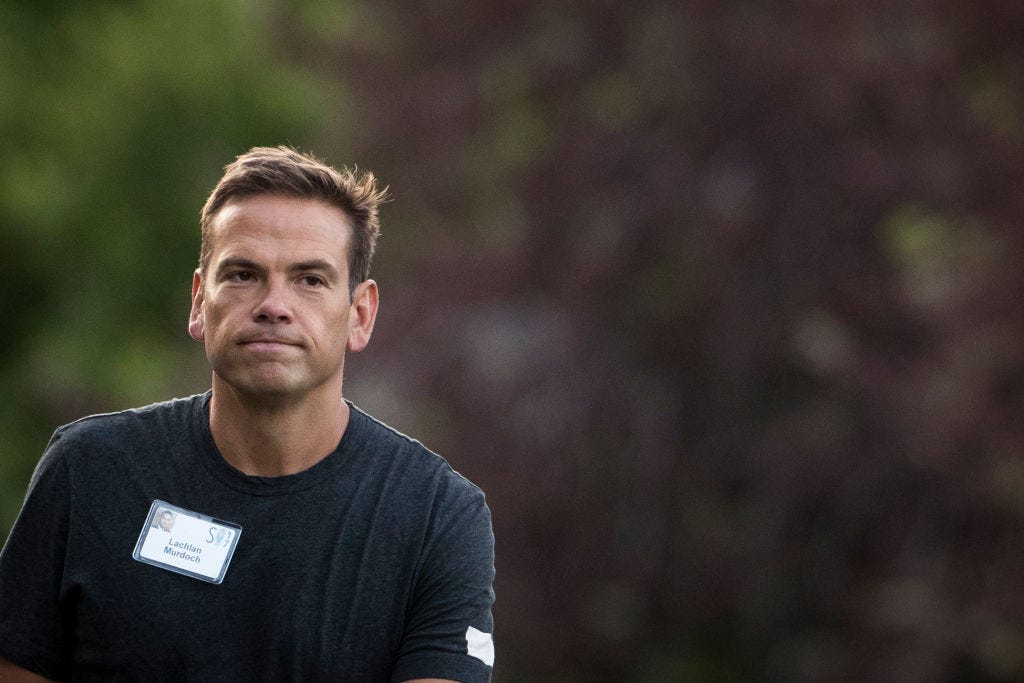
Start the Week: Seven closes on Peacock; Lachlan Murdoch's Nova profits revealed; what to expect at Ten's upfronts
Today’s topics:Nova’s financials revealedSeven closes in on NBC Universal dealNine says goodbye to Nick FalloonWhat to expect in Ten’s upfrontsToday’s episode features Tim Burrowes and Abe Udy. As always, we’d love to hear what you think at [email protected], or comment below.Further reading on today’s topics:Sydney Morning Herald: Nova radio tunes in with advertising reboundAustralian Financial Review: TV rights battle could lead to new Netflix, Disney+ competitorNine ASX announcement: Director retirement - Nick FalloonAudio production on Media Unmade was courtesy of Abe’s Audio, the people to talk to about voiceovers and sound design for corporate videos, digital content, commercials and podcasts. This is a public episode. If you’d like to discuss this with other subscribers or get access to bonus episodes, visit www.unmade.media/subscribe
17:0602/10/2022
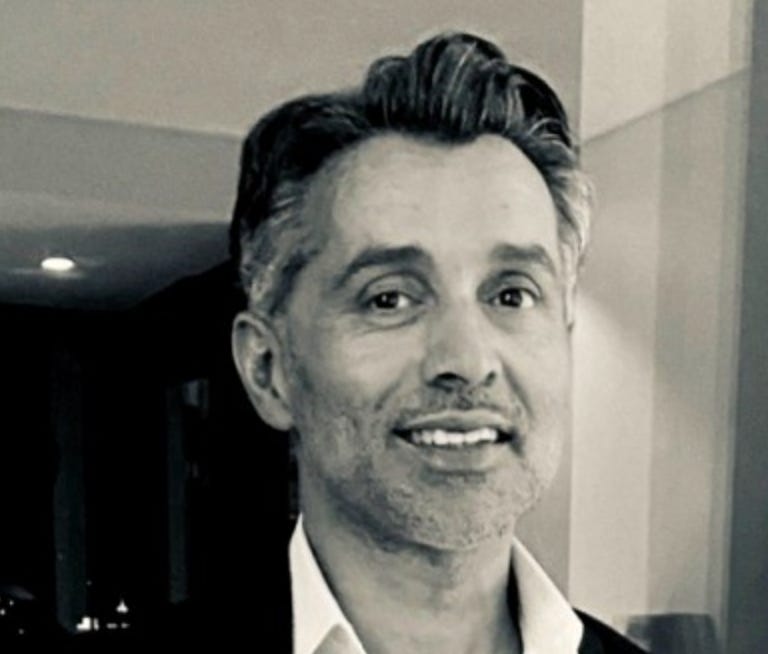
The Unmade podcast: Jag Sanger of The Market Herald on buying Gumtree and Carsguide, and launching a newspaper
This has been a significant week for the biggest Australian media company that you probably haven’t heard of. Headquartered in Perth and with more than 100 staff, The Market Herald has completed a $27m fund raising to buy classified sites Gumtree, Carsguide and, Autotrader.The Market Herald is parent company of the Hot Copper trading forum and the new acquisitions will catapult it the front row of the classified media battle. TMH is the seventh largest media company (of seven) listed on the ASX.In the Unmade interview, TMH’s CEO and founder Jag Sanger explains the company’s business model, and reveals his plans to launch a new national weekly business newspaper alongside a push into lifestyle publishing and a 24 hour business news streaming channel.Today's episode of the Unmade podcast was edited by Abe's audio.TranscriptTim Burrowes:I'm talking today to the founder and CEO of the biggest Australian media company that you've probably never heard of. Jag Sanger is the boss of The Market Herald, who surprised the market by announcing that they were buying Gumtree, Carsguide and Autotrader. The move makes them a big player in the classified advertising space. The Market Herald itself is a publication focusing on business news in both written and video form. Tim Burrowes:They've got big ambitions including a new weekly national business newspaper and a 24-hour business channel. The company also owns the gossipy investor forum, Hot Copper. I began by asking Jag how the company got to this point.Jag Sanger:Well, thank you. That's a good question. Right now we're at about 110 people split between Australia and Canada. I think one of the reasons why we're somewhat under the radar is in Australia, we're based in Perth, which is perhaps not known as a hotbed of media, and in Canada we're based in Vancouver.Jag Sanger:I think one of the things that has happened, and it hasn't been a deliberate plan on our part, is that because we've built an audience which is in Australia and it's in Vancouver, but it's also... Sorry in Canada, but it's also very much a global audience and we're building some activities which are outside of Australia, people haven't noticed who we are. In Nielsen always though, as a finance play, we've always been number one for impressions.Jag Sanger:We always are delighted about the success of our legacy competitor, the AFR. I think because there is a misunderstanding sometimes of business media, people don't quite understand that we're here, but we're here and we're growing very fast.Tim Burrowes:Well, in a moment we'll talk about The Market Herald now and let's talk about the wider portfolio as well. You're also... I'm not sure if the right phrase is to be owner of a community, but let's say it is. You're also the owner of probably the best-known finance community in Hot Copper. How do you think about that within the portfolio?Jag Sanger:Sure. I think this is a very important part of our journey and a very important part of how we think media organisations are evolving. If we look at how media business has worked, that once upon a time you would have, let's say a newspaper and then you would have classifieds and then by accident you had a community. Classifieds made all the money, community were people who sent you letters and your reason for being was the front page.Jag Sanger:We are that almost in opposite. We have built digital communities. Here in Australia, Hot Copper is easily the largest community for stock market investors. In Canada, Stockhouse is easily the largest community for stock market investors as well, so we own two of the largest communities. We're in that process of acquiring classifieds. We're bucking the trend there. It's a very important part of our business, and the punchline is that we will be releasing broadsheet national business newspapers, in this country and in other countries.Jag Sanger:It will be the first launch of a national business newspaper in this country since what? 1962. There's only two national newspapers in this country. We hope to be the third. This community is incredibly important for us because, one, it gives us readers, it allows us to turn some of the economics of journalism on its head and I'm happy to talk about how that works.Jag Sanger:But it's where we find out what people want to read, we want to find out what people want to view, and that community is a source of petabytes of data for us, which drives our data-led journalism.Tim Burrowes:Well, there's several interesting things there that I'll try and unpack, particularly the launch of a news master head in print form I think you're saying. Let's just talk for a moment about The Market Herald and that model because I'm amused with your labeling the AFR as your legacy competitor but fair enough. How do you think about your publishing ethos for The Market Herald?Jag Sanger:Well, firstly, just to talk about the Financial Review, I used to work for Fairfax. I used to run media and strategy there, a huge affection for the AFR and all its people and as they write about us often I suspect that we're forever in their thoughts as well, so we love to bits.Tim Burrowes:You're referring there to your occasional appearances in the Rear Window column of the AFR.Jag Sanger:You know one day I'll break out of Rear Window and they'll celebrate what we're doing somewhere else in the book and it'll be a happy day for us all. But no, no, we like them and we think they're doing good work. In terms of The Market Herald, just repeat the question. What was the question for The Market Herald?Tim Burrowes:Yeah. The Market Herald, what's your publishing ethos for The Market Herald?Jag Sanger:Sure. One of the things that we think is really important as a news outlet and as a media proposition in a world which is very noisy, with many audiences and huge fragmentation, all the stuff that we know, is to have a very, very clear sense of who your reader or viewer is to understand why they want to read and view you and then make a very, very quick decision, are you in the utility news business or are you in the must-know news business?Jag Sanger:We think utility users is going to a handful of publishers worldwide. There'll be this global giant, but in this must-read world, what we do is help people make decisions in a short period of time without all the information with a financial consequence and we give them that information quickly. Our classic reader is a... And to be horribly gendered for a second, a 55-year-old man who wants to buy a $10,000 worth of Telstra stock. Should I do it? Should I not do it?Jag Sanger:In that moment, we provide the information to them. But again, to be horribly gendered, the other kind of buyer we have is an equally intelligent and often smarter 25-year-old woman who's thinking about spending 10 grand on a used Chanel handbag. She also has information needs, she also needs to know in real time and we serve both those audiences.Jag Sanger:By giving people information they need when they're in state, and this is a very specific language that we use, we're ultimately a data business, when we track this degree of almost psychological arousal for why they must know, we are there and that's what The Market Herald is about.Tim Burrowes:This is both in the written word and in video?Jag Sanger:Absolutely. I think video is very interesting for us. We are easily one of the largest standalone streamers in this country of broadcast quality content. We are running at around nine to 11 million streams a month here in Australia and elsewhere. To understand how people consume media, how they consume video, how they consume the written word, that's something we spend a lot of time in actually working out but that's what we get from the communities we own.Tim Burrowes:Now, something you just mentioned was that you plan on launching a financial broad sheet, which was new information for me. I probably missed an announcement at some point. What is your plan there?Jag Sanger:Sure. We said this right from the beginning that we consider ourselves a newspaper and that we consider there is a viable business model for something we think is as beautiful and as amazing as a newspaper. We think as a product, as a cultural artefact, as a revenue stream, as a reason for being, it's really important to us and it's something we will be launching soon.Tim Burrowes:That's as a daily offering?Jag Sanger:No. I think if you look at the way the business meter is running around the world, it is let's say a Monday through Thursday digital offer, which is what most even print newspapers are doing. Then the weekend offer, which is a very interesting revenue earner and a very different proposition at the weekend for most of the big business press, that will be in print.Jag Sanger:It will be something which will have the cover mounts and the inserts that you have in traditional business news but the two will complement each other. We think a business audience at the weekend looks, feels, consumes differently and we'll serve them as well.Tim Burrowes:This will be available nationally?Jag Sanger:It will be available nationally. We're working out our print runs and our plans right now. We've been talking about this several times and I think it's an important part of the portfolio that we have. We believe here in Australia, we're already number one for online finance news. We are easily number one for business finance, TV streaming news and print is an amazing complement to both of them.Tim Burrowes:Fascinating. Last question on that one, have you yet set a cover price?Jag Sanger:It's a very interesting series of conversations that we're having. All I can say is it will definitely be at a premium.Tim Burrowes:Okay. Now, I suppose one of the other things which interests me about the business model for your portfolio is that some of the business model includes taking effectively shares in some of your advertising clients as they grow their businesses. How does that side of things work?Jag Sanger:There's two ways to look at it. We have a small amount of what exactly what say News Corp does or Seven West does, which is contract. You want to buy X, well, we'll do it in this way. Some of it is that kind of conversation.Tim Burrowes:This for instance would be like where Seven West ventures had stake in Airtasker for instance?Jag Sanger:Correct. They had a stake in Airtasker, they had a stake in... Or they've recently taken a stake in CarExpert, which is a property which we admire greatly and we do some things differently to that but we are kind of in that space. Very similar to that model and it's something that the contra deals people have been doing since the '50s. We get that. We do some of that as well.Jag Sanger:The other thing that we do is because we have a large business audience, one of the areas which we focus on and we see some of our competitors moving into it as well and we think we have different propositions is to provide an opportunity for listed companies and wealth brands to speak to affluent audiences. Now, for these businesses, often which they're smaller, they can be private or they can be listed, we allow them to pay their fees or their cost to ours for billings in stock.Jag Sanger:We don't manage these portfolios. It's not held as a way of making money, just simply a cash flow mechanism for smaller businesses. Sometimes we win and sometimes we lose and every time we're indifferent because it's not about making money on those portfolios, it's just simply a way of reaching different kinds of advertisers who may not yet have funds but who we believe in.Tim Burrowes:Presumably some of this content that you then create for these people is what... The phrase has gone out of fashion a bit, but would've previous been called advertorial or native advertising. How do you ensure the independence of your general reporting on business versus your coverage of those clients?Jag Sanger:One of the things that we do here, which is really interesting is our editorial team and our newsroom, they do not know what is a paying client and what isn't. That's the first thing. The second, when it comes to native, advertorial and sponsored, one of the things that we are almost religiously fixated on is if it's sponsored, it says sponsored at the top in 12-point font, it's orange and it's clear that it's sponsored. Jag Sanger:Our word of sponsored is if we have been paid for it or if there's been any degree of editorial sign-off from a client, then it says sponsored. What we don't do is to do what, for example, Forbes do where I think there is potentially an opportunity to... or a situation where you may begin to devalue some of your trust where sponsored is called something else.Jag Sanger:What we don't do is use the word special report, which again, some of our peers do and what we absolutely don't do, which is what some of our other competitors do, which is to barely mention it at all. The way that we do it is to be very much on the sunny side of the street. We do work with clients, we do advertorial and native sponsorship, but it's say sponsored if it's sponsored.Tim Burrowes:Well, you're about to make, certainly from where I'm sitting, looks like the biggest move in the history of the company so far, which is acquiring Gumtree, Carsguide, Autotrader. Why?Jag Sanger:I think there's a handful of reasons. First of all, the prescription we had for the business media or any kind of media, how it was is you had the front of the... Let's just take a newspaper. You have the front of the book, which is where your reputation sits. You have the back page, which is sports, which is where your readers sit because it's entertainment. But somewhere towards the back you had those traditional rivers of gold, you had those classified sections which paid for the whole shooting match. Jag Sanger:All journalism has always been sponsored, but usually it was sponsored by small ads for cars and houses and jobs. Well known to everybody, everybody knows this, but over the last 10, 20, 25 years, those classified sections have migrated out of newspapers and they become standalone businesses by themselves. You have the very interesting situation where you take for example Nine in this country, which is a $4 billion business-Tim Burrowes:Well, 3.5 these days. They've not had a good couple of weeks.Jag Sanger:I think there are some travails for everybody, but I think we like to go with four. You then look at the largest real estate listing site, the largest car site, the largest job site, and they have an aggregate valuation of $40 billion plus, 10 times bigger than the largest media business. They own no journalists. From our perspective, the largest general classified site in this country is Gumtree. It's a brand which 90% of this country knows. Jag Sanger:There's a degree of affection and warmth to that brand and to build something of that scale and reach would cost us hundreds of millions of dollars. The first thing is we're back in classifieds and we're back in classifieds with a vengeance. Number two, the opportunity to build other products around that audience, especially in terms of streaming video, especially transactional streaming video are huge.Jag Sanger:Great announcement from the news I think this week or last week about in-video commerce and that's something that we are probably going to be natural leaders in. Then the final thing is it gives us scale. Instead of reaching a million, a million and a half, typically male, typically wealth, typically eastern states, we've now got an audience which is almost one in two economically active adults in this country. Jag Sanger:We think we have great editorial opportunities with that and it gives us classifieds, it gives us what we need structurally and it gives us huge reach. That's why we did it.Tim Burrowes:Obviously that plays you into a couple of classified verticals. Are there others you'd be interested in acquiring or launching into? I guess I'm thinking about jobs in real estate, which are obviously lucrative but also quite competitive.Jag Sanger:That's a really good question. I think there are one or two categories where we are very, very well-positioned, and one of those is autos. Against Carsales who we admire and who we like and who we know very well, against Carsales, we now have similar traffic. Over recent years, the business... This is the Gumtree business, has consolidated the second, third and fourth largest competitor to Carsales. One of those is Carsguide, which I was on the board of, and we know it very well and we think we have a red hot chance in cars.Jag Sanger:To put this in context, we've got similar traffic for private party, cars, people selling their own cars. We're bigger than Carsales. For some aspects of dealer, we're kind of at the similar level. Some of the things structurally we're in possibly a better position for... Carsales is a $6/7 billion business so we think there's a huge amount of opportunity there. Jag Sanger:For some other areas, I'm not sure if the brand travels naturally, so we won't push it, but because we're number one in general classifieds, we actually aggregate several thousand categories and within those categories there are always some gems and we'll put our time and effort into those.Tim Burrowes:Now, you're also looking to play yourself into the, I suppose, consumer lifestyle space with the launch of Market Herald Fancy. How are you thinking about that?Jag Sanger:If you look at how business media used to work, and this is the Wall Street Journals, the New York Times, the Financial Times, let's say the AFR here, if you pick up the newspaper on a Friday or a Saturday, the book will have 48 pages, 52 pages, and it will have maybe two or three ads. We like to think that business newspapers took the ads out to make them easier to read. Jag Sanger:But on a Saturday or a Sunday, that same book will have three inserts in it and there will be 74/76 pages and they will be 60% full page, full colour, glossy and they're carrying ads for high ticket consumer, high-engagement but infrequent purchases. It's travel and jewellery and luxury and all that kind of thing. Fancy is in the same vein of that, probably the closest comp would probably be How To Spend It, which is from the Financial Times. How To Spend It is now probably 30% of the EBIT of the entire Financial Times business. Jag Sanger:If you look at the Wall Street Journal, they have Penta, if you look at... Sorry, yeah, they have Penta, the New York Times has the T Magazine. It's very similar. It's a way of selling product and introducing very, very affluent audiences which are hard to reach, to high-end brands. That's something we're doing.Tim Burrowes:Now, you are also looking ever more closely at the streaming space as well, 24 hours streaming with your ambitions for The Market Herald with TMH One. How will you go about that?Jag Sanger:One of the things that we do very well is... And this is something that we talk about and we're very open about and is very much hidden in plain sight, is we've created a different kind of multi-platform journalism and everybody says that, but our newsrooms look different, they act different and they're run different. We begin at the plumbing layer. We are ultimately plumbers. We have built and plumbed a different kind of newsroom, not hired for a different kind of newsroom.Jag Sanger:We're multiplatform from the beginning. Our workflows editorially link into our news gathering and production for video. Our video streaming, we're one of the largest streaming publishers in Asia Pacific. Certainly we're told that by our streaming partners and we built our own play out. What that basically means is we can produce high quality broadcast quality content. We're not terrestrial, but we can do it maybe at 20% of the cost of terrestrial.Jag Sanger:Now, that ability to take that infrastructure and apply it to different kinds of business and then lifestyle programming absolutely is something that we're focused on and is something we'll be talking about more in the next few months. We've committed to launching a streaming channel called TMH One. We're definitely on track and we look forward to getting that out of the tracks very soon.Tim Burrowes:Would you see that as a potential competitor to the likes of Ausbiz for instance?Jag Sanger:I think, Kylie, we have a huge affection and time for. I think that she's-Tim Burrowes:She's Kylie Merritt me who runs Ausbiz?Jag Sanger:Correct. Yeah. I think, look, it's very interesting. Most of the business TV experiments in this country have failed. If you look at CNN Digital, which it was touted as being one of the biggest changes to CNN for many, many years. They spent two years on it, they spent $300 million and they pulled it after six weeks. If you look at the failed experiments in the UK right now, which have been GB News and a handful of others.Tim Burrowes:Well, in defense of GB News, they are beginning to find an audience now, I think.Jag Sanger:You are correct, there are some programs and some slots which have more than zero views, which was a challenge for them for some time. I give you that. They have got at least one view for most of their slots now. Took a while. I think that we've learned a lot from those failed experiments and I think that that model which was embodied in so many people, which was a terrestrial workflow but somehow tweaked for streaming, we don't believe that works. We think a ground-up integrated workflow is the way to do it.Tim Burrowes:Presumably the rise of connected TVs is one of the factors that makes this the timely moment to do so.Jag Sanger:I think that the opportunity for connected TV is both much greater than people think, but will take much longer to get there. I think that the ability to wrap an idea of programmatic TV, which is how advertisers think about connected TV or always on TV or TV everywhere, doesn't quite match the reality of how people engage with that content. Jag Sanger:One of the really interesting opportunities and realities of business television on big screens, especially streaming business television, is more business TV is walked past in lobbies than watched in seats. We're there. We're thinking about it closely. We have learned a lot from the failed experiments of many of the other terrestrial to streaming formats and we hopefully will get it right and we're going to find out very soon, but we're very confident.Tim Burrowes:You're raising something like $27 million at the moment from your existing shareholders. I noticed there's a slight delay in getting that stock back up and trading on the ASX, certainly as we're talking. I think it was about now we were expecting, but maybe there'll be another week's delay or so. What's the reason for that change in timings?Jag Sanger:First of all, the rights... Sorry, the rights issue was incredibly well supported. We have had all of our existing shareholders take it up, especially institutional shareholders. We'll be announcing who some of those are very soon, which will be very interesting because some of them move past certain thresholds. There was the unfortunate death of a monarch this week, which doesn't happen often and that has delayed our timings. Jag Sanger:Then there's this big kicking and jumping game that happens in Victoria. For those two reasons, the timings were pushed out very slightly but we are hugely pleased by how successful the raising was. There are a number of other things that we have to do to finance this transaction but everything is on track.Tim Burrowes:Now, the organisation has a turnover approaching 30 million. The normalised EBITDA I seem to remember as being about 5 or 6 million. In your last annual report, current debt was about 7 million. Usually the markets like the ratio of the debt to be below the EBITDA. After the raising, where are you expecting your debt to sit?Jag Sanger:I think that we put forward a pro forma in our raising documents and we expect to be about $120-ish million revenue. We expect to be at around 20 million dollars EBITDA. Excuse me. We're not giving guidance on either. We are raising debt and there's a number of different things that will come into play there. It's also worth saying that typically for a media business in the growth phase that we're in and we're growing incredibly quickly each year, the ratio of debt to our market cap is often more significant. Jag Sanger:It'd be fair to say that we are somewhat undervalued at this moment. We're very conscious of that, and the reason for that is that we're very tightly held. One of the things that's happened in this rights issue is most of our shareholders... Well, nearly all of our additional investments come from existing shareholders, which means there's not a lot of stock in the market. For all kinds of reasons, as we grow that will change, our valuation will change.Jag Sanger:Clearly we're not making any forward-looking statements, but I think a rerate would possibly be on the card at some point. At that point we do things differently.Tim Burrowes:Let's talk a little bit more about your background. You've touched on some of this already. You actually found your way into the media with ITV, which is the biggest commercial broadcaster in the UK, back in 1989, which would've been before it was one ITV I guess. What was it that interested you in media in the first place?Jag Sanger:That I think is really interesting. First of all, LWT is I think one of the most interesting broadcasters in the world at the time, and certainly was. It was absolutely that kind of stepping stone between this post-war Reithian public service and the brave new world of selling things. There are so many innovations that happened there that a lot of traditional TV around the world learnt from what happened at LWT but nobody's heard about LWT because it's such a long time ago because I'm so old.Tim Burrowes:London Weekend Television.Jag Sanger:Once upon a time you only saw it at weekends. No, I was incredibly fortunate at that time to get a great job, which was carrying bags and getting people's tea and all that kind of thing. But to me it was actually quite fascinating because I remember so vividly at that time, I earned the grand sum of I think about, I don't know, a few hundred pounds a week, and 30 years later a runner in Central London still earns 300 pounds a week, so it's changed and it hasn't.Tim Burrowes:You then went through cable television and also consulting with McKinsey and later with PwC and along the way, as you've already mentioned, two years at Fairfax, which I think was 2006 to 2008, which was probably when things there were at the most panicked and desperate as the newspaper model went away. What did you learn from that?Jag Sanger:Well, look, if I think and reflect on all of those experiences, I began to work first in probably the world's most significant and interesting broadcast, which doesn't exist anymore. Then I worked at Videotron, which was the most important European cable business, which doesn't exist anymore. Then of course CableTel which literally consolidated to European Cable that doesn't exist anymore. Then I came here and worked a bit for Fairfax, which doesn't exist anymore.Jag Sanger:Your conclusion could be you're a desperately unlucky kind of guy, Jag, which would be one conclusion, or I've seen a lot of things and we kind of know what works and what doesn't work and hopefully we're applying some of those lessons.Tim Burrowes:Without giving any forward-looking guidance, what is your take on the economic outlook for media generally at the moment?Jag Sanger:I think that one of the really interesting things is the growth of the streamers and the decline of the streamers, the way that audiences are going to continue to fragment, but media won't care. Then the really interesting opportunity in business media, and clearly I'm talking my own book because we're in business media. We think the growth and the decline of the streamers is that the magnificence of Netflix and then that short period of existential land grab for anybody grossly distorted production around the world.Jag Sanger:We can see that tide flowing out and it will change a lot of things very quickly. Fragmentation of audience, no one's actually going to care because it's as fragmented as it's going to get. There's enough micro audiences and smart people will realise that there's a difference between utility. Everything will be everywhere at the same time and super, super niche and the super, super niche will thrive. Jag Sanger:Then with business, one of the things that we're very conscious of is we attract in large numbers some of the most affluent, influential, engaged, curious and hard to reach audiences on the planet and unlocking that, getting closer to transactional outcomes means good business programming, coverage news will always attract an audience and that audience is more valuable than people think.Tim Burrowes:Just finally for The Market Herald obviously you're doing the big acquisitions now, Gumtree, Carsguide and Autotrader, is that likely to be it for the short and medium term in terms of acquisitions or do you see more down the track as well?Jag Sanger:If you look at my LinkedIn profile, you will see that I say I'm an M&A guy in media, so I would assume that we will do more on both and this is a platform transaction, which as we publicly said, gives us the opportunity and hopefully the right to do more going forward.Tim Burrowes:Look, and I did say it was the last question, but I have thought of just one more actually, which is inspired by you being the M&A guy. I'd love to know what you do think about that wider media landscape on why these big mergers haven't happened yet. Because it felt like two years ago, maybe even just prior to the pandemic, everything was set for some of the big beasts to come together. Has that, well changed or are we still going to see that, do you think?Jag Sanger:Look, I think there's probably two big reasons. Number one is the history of outside in M&A in media is not good. Let's take Australia for a second. If you look at Nine, if you look at Ten, look at Bauer, the winner was the seller. I think that it's an interesting opportunity to better reflect on some of the reasons why. The second is when you look at the shifting priority of non-financial strategic buyers, it's very different.Jag Sanger:Media is not a fast-growth business to some of these people unless you do things very differently. That then means that the future will be driven very much by non-trade financial buyers and those guys are going to be much more operationally focused. They'll look a lot more like we do and we think that that's the kind of player which will begin to consolidate some of these big beasts.Tim Burrowes:Jag, thank you very much indeed for your time.Jag Sanger:No, I appreciate it. Thank you.Tim Burrowes:That's it from the Unmade podcast for today. If you aren't already signed up to the Unmade email, you can do so at unmade.media. Today's podcast was edited by our friends at Abe's Audio. I'm Tim Burrowes and I'll be back with more soon. Toodle-pip.Speaker 4:Unmade. Podcast edit by Abe's Audio. This is a public episode. If you’d like to discuss this with other subscribers or get access to bonus episodes, visit www.unmade.media/subscribe
32:2528/09/2022

Start the Week: Forbes and Inc in Aussie head-to-head; the Optus hack; underwhelming AFL ratings; blood on the ASX
Today’s topics:Business media’s new battleground as Forbes and Inc both come to Australia;The Optus brand after the hack;How a one-sided Grand Final meant lower AFL ratingsPlummeting prices for media stocksDamo’s last dance (and Unmade’s next events)Today’s episode features Unmade’s Tim Burrowes and Damian Francis. As always, we’d love to hear what you think at [email protected] reading on today’s topics:Australian Financial Review: New business publication to target aspirational eyeballs;Mumbrella: Forbes Australia CEO on what the brand offers advertisers;The Australian: Rift widens over $50m Judith Neilson Institute for Journalism prize;Unmade: Reputation crisis for Optus The New Daily: AFL grand final’s TV audience was a ratings disaster;The Australian: Local content quotas on streaming platforms will cause bottlenecks: Disney chiefAudio production on Media Unmade was courtesy of Abe’s Audio, the people to talk to about voiceovers and sound design for corporate videos, digital content, commercials and podcasts.Message us: [email protected] This is a public episode. If you’d like to discuss this with other subscribers or get access to bonus episodes, visit www.unmade.media/subscribe
42:5725/09/2022
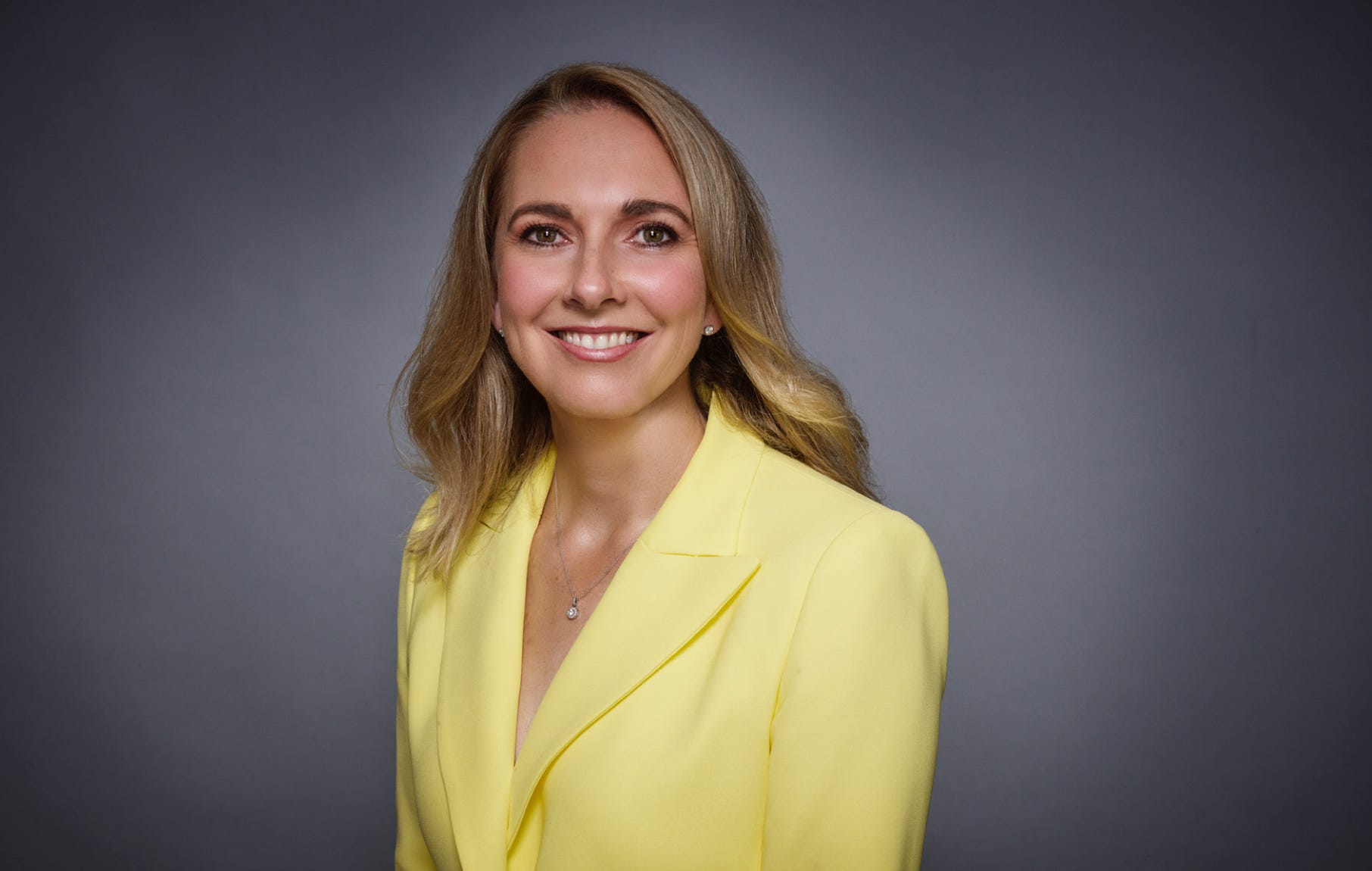
The Unmakers: WeAre8's Lizzie Young on why she wants exactly 6.5% of social media budgets
In today’s episode of The Unmakers, Tim Burrowes talks to Lizzie Young, CEO for the Australian operation of new social media platform WeAre8.In the conversation she explains why it was time to leave Nine, why she wants to capture 6.5% of marketers’ social media budgets and reveals the next major step in WeAre8’s product roadmap.Today's episode of The Unmakers was edited by Abe's audio. This is a public episode. If you’d like to discuss this with other subscribers or get access to bonus episodes, visit www.unmade.media/subscribe
30:3420/09/2022

Start the Week: Most watched TV; a perfect AFL lineup; Ten's Saturday problem
Today’s topics:Royal funeral set to be most watched TV moment of all timeAnalysing Nine’s Upfront announcementsThe ratings week (and Ten’s Saturday problem)The perfect Grand Final lineup for SevenStreaming loophole extendedPay rise pressuresToday’s episode features Unmade’s Tim Burrowes and Damian Francis. As always, we’d love to hear what you think at [email protected] reading on today’s topics:WA Today: The Queen’s funeral may be the most-watched event in historyABC News: Queen Elizabeth's state funeral is today. Here's how to watch, when to watch and what to expectUnmade: Nine Upfront verdictWeekly ratings: OzTam ratings analysis via NineThe Australian: TV execs cheer the red and the white as Sydney Swans beat Collingwood in AFL thrillerAustralian Financial Review: Key streaming loophole extended for another five yearsThe Australian: Federal government extends ‘Alston Determination’ for streaming servicesUnmade: Ask for a pay rise Audio production on Media Unmade was courtesy of Abe’s Audio, the people to talk to about voiceovers and sound design for corporate videos, digital content, commercials and podcasts. This is a public episode. If you’d like to discuss this with other subscribers or get access to bonus episodes, visit www.unmade.media/subscribe
34:4518/09/2022
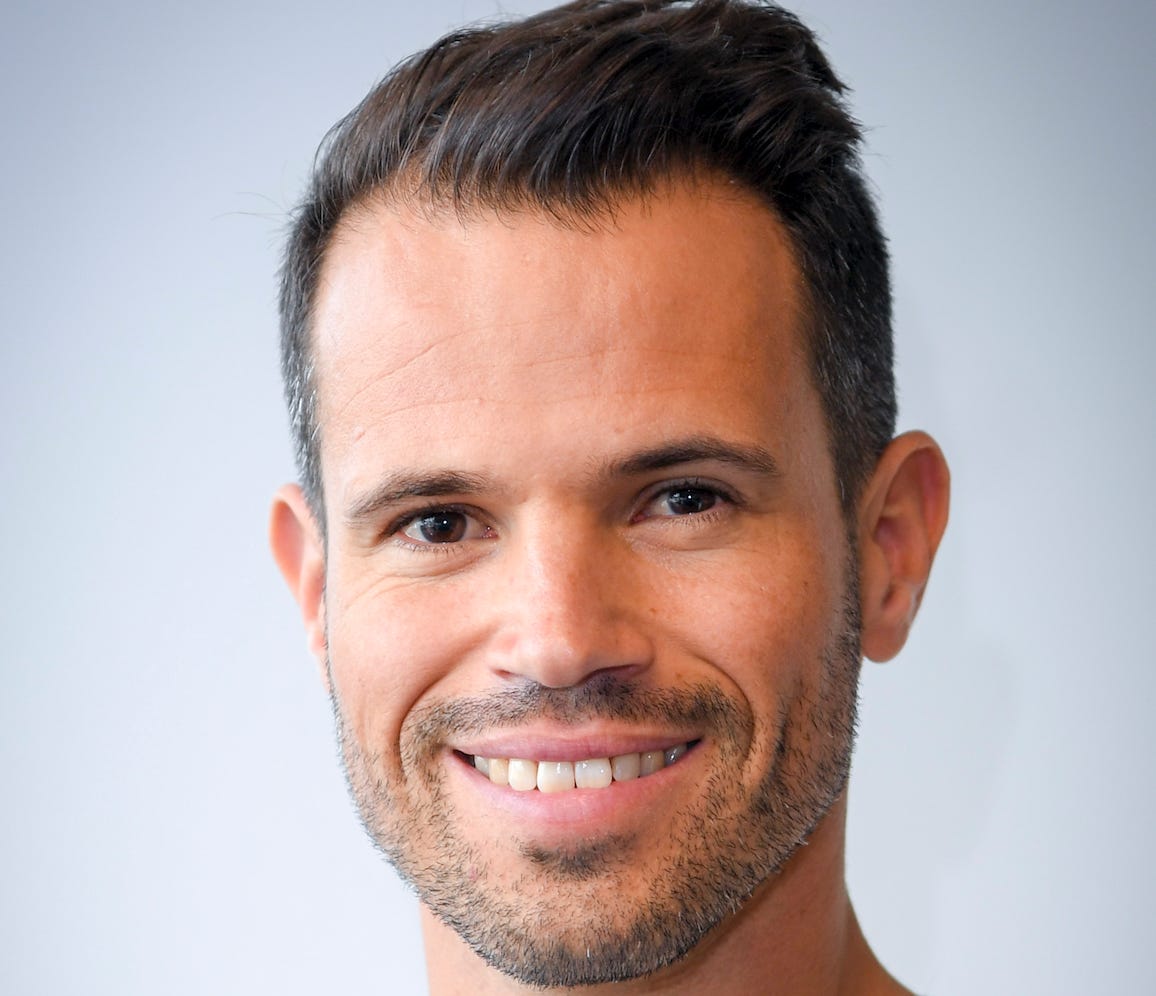
The Unmakers: Richard Baker's plan to build 'the best independent premium audio storytelling house in the Southern hemisphere'
Today Unmade's Tim Burrowes talks to Richard Baker, one of Australia’s most awarded investigative journalists. Later this month he leaves The Age after more than two decades to start his own independent audio company - Southern Ocean Media.Today's episode of The Unmakers was edited by Abe's audio. This is a public episode. If you’d like to discuss this with other subscribers or get access to bonus episodes, visit www.unmade.media/subscribe
35:0014/09/2022

Start the Week: Reporting the biggest Royal story; TikTok the espionage machine?; NRL holds out its hand for Foxtel cash
Today’s topics:Media rises to the Royal challengeNine’s journalists prepare to strikeTikTok - an espionage machine?NRL pushes for an extra Foxtel paydayThe week in TVToday’s episode features Tim Burrowes and Abe Udy. As always, we’d love to hear what you think at [email protected] reading on today’s topics:Unmade: PerformativeThe Australian: Queen Elizabeth II souvenir print editions fly off the shelvesThe Australian: Why Albanese did a ‘take two’ on Queen’s addressThe Australian: Journalists at Nine Entertainment newspapers set for two-day walkout over pay disputeMumbrella: Nine’s Chessell:AAP deal and ‘constructive negotiations with journos’Sydney Morning Herald: TikTok a ‘tool of espionage’ for China, says boss of media giantAustralian Financial Review: TikTok gets its lobby onSydney Morning Herald: NRL to seek millions in compensation from Foxtel after monster AFL dealNine corporate: Weekly Oztam analysisDaily Mail: Channel Nine insiders reveal off-contract The Project host Carrie Bickmore has been targeted to take over from Tracy Grimshaw on A Current AffairThe Australian: Wildcards in ACA’s hunt for new Tracy GrimshawAudio production on Media Unmade was courtesy of Abe’s Audio, the people to talk to about voiceovers and sound design for corporate videos, digital content, commercials and podcasts.Message us: [email protected] This is a public episode. If you’d like to discuss this with other subscribers or get access to bonus episodes, visit www.unmade.media/subscribe
30:1411/09/2022
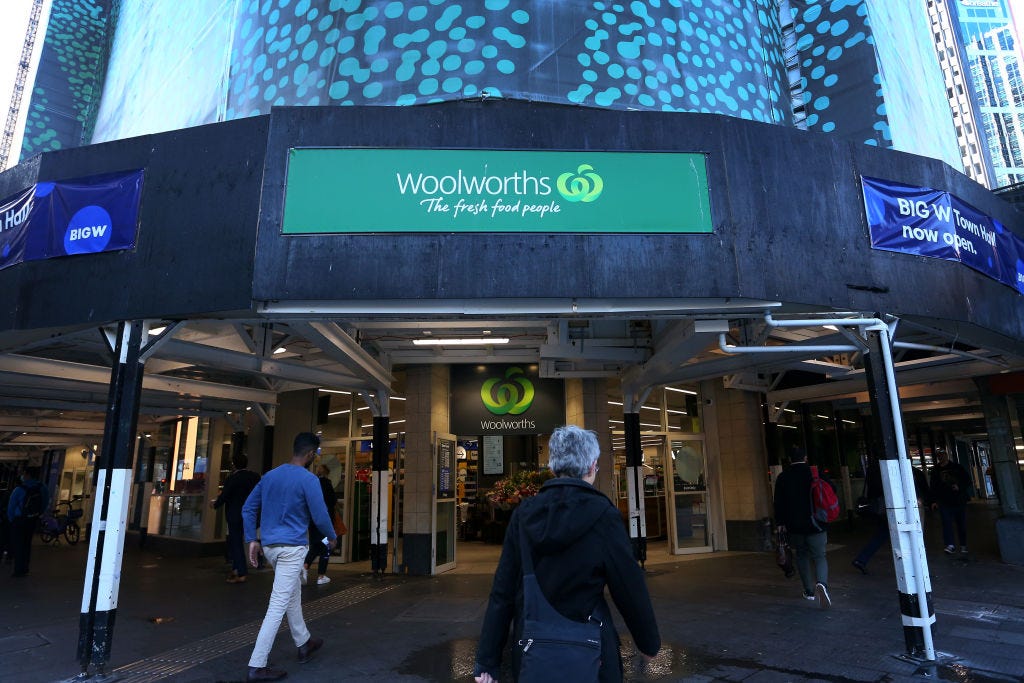
Start the Week: How Woolies is Australia's most trusted; TV networks abandon kids' content; Netflix's Aussie ad play
Today’s topics:Woolies on top: Trusted and distrusted brands;The week in television : TV networks abandon kids programming; lobbying on free sport; Seven and Foxtel close on AFL deal; Netflix’s local advertising play; Seven’s winning ratings week;Can Are Media navigate the ecommerce pivot?Today’s episode features Unmade’s Tim Burrowes and Damian Francis. As always, we’d love to hear what you think at [email protected] reading:Unmade: The trust factorThe Australian: TV content quotas send kids to streaming servicesVia Twitter:Sydney Morning Herald: Most Australians concerned about price of subscriptions, don’t want to pay for sport: DeloitteSydney Morning Herald: Netflix with ads is coming this year. Here’s what we knowAustralian Financial Review: AFL set to lock in Seven, Foxtel TV deal The Australian: AFL set to renew broadcast deal with Foxtel, SevenOztam: The ratings week via Nine Mumbrella: Are Media’s Jane Huxley on the survival of print media in Australia and the acceleration of e-commerce in publishing Audio production on Media Unmade was courtesy of Abe’s Audio, the people to talk to about voiceovers and sound design for corporate videos, digital content, commercials and podcasts.Message us: [email protected] This is a public episode. If you’d like to discuss this with other subscribers or get access to bonus episodes, visit www.unmade.media/subscribe
33:1605/09/2022
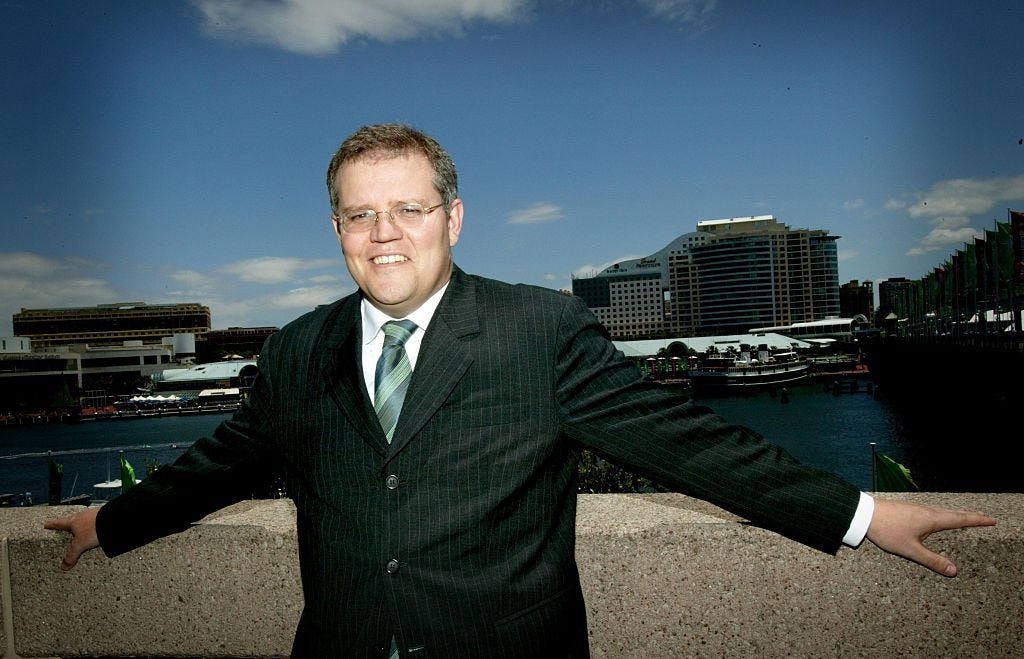
Start the Week: ScoMo's Tourism Australia mystery (nearly) solved; lessons of media mergers; The Cat's masterplan
Welcome to Unmade’s Start the Week podcast.Today’s topics:The media merger lessons of results season;ScoMo’s mysterious Tourism Australia sacking;Is Nine really winning the TV ratings?The Cat’s real estate masterplanToday’s episode features Unmade’s Tim Burrowes and Damian Francis. As always, we’d love to hear what you think at [email protected] production on Media Unmade was courtesy of Abe’s Audio, the people to talk to about voiceovers and sound design for corporate videos, digital content, commercials and podcasts.Message us: [email protected] This is a public episode. If you’d like to discuss this with other subscribers or get access to bonus episodes, visit www.unmade.media/subscribe
41:1428/08/2022

The Unmade podcast: Nigel Marsh
Today’s Unmade podcast features adman, author and podcaster Nigel Marsh, whose latest book Smart, Stupid & Sixty has just been published.Marsh describes how his new portfolio career took off after a much talked about TEDx presentation in which he channeled his hatred of working in a big advertising job.To view a transcript go to unmade.media This is a public episode. If you’d like to discuss this with other subscribers or get access to bonus episodes, visit www.unmade.media/subscribe
40:4124/08/2022
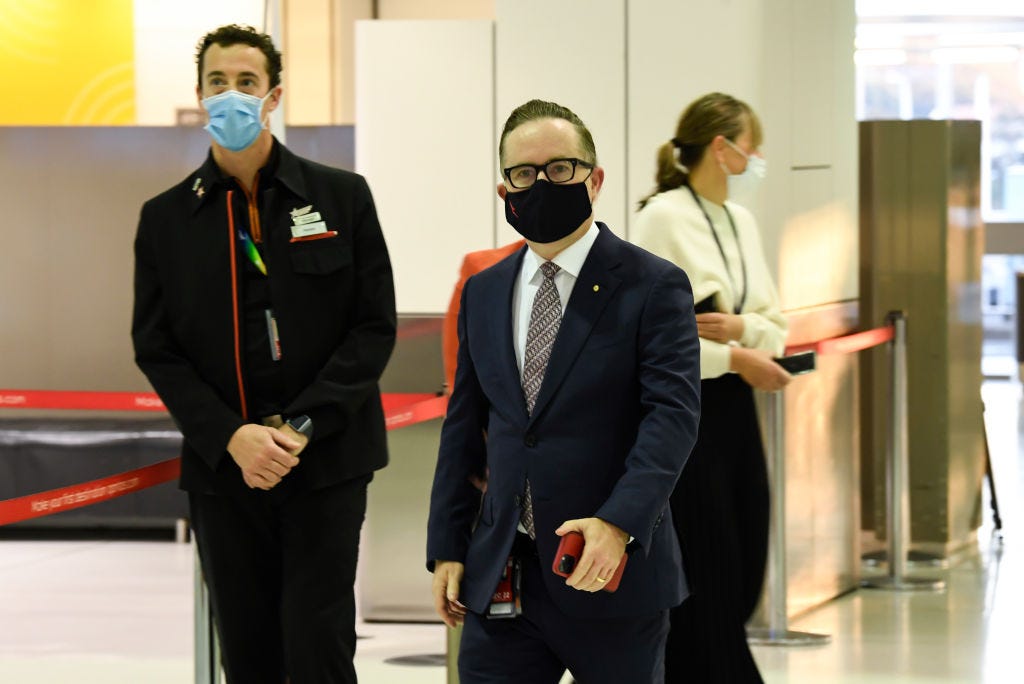
Start the Week: Qantas says sorry (again); Is AFL's D-Day finally here?; New owner for Carsguide; Results season
Welcome to Unmade’s Start the Week podcast.Today’s topics:* Qantas makes another apology as its reputational data shows decline;* Carsguide and Gumtree set to join the Hot Copper stable;* A big media week: AFL TV deal is imminent; Radio ratings on Tuesday; Financial results for SCA and NINEToday’s episode features Unmade’s Tim Burrowes and Damian Francis. As always, we’d love to hear what you think at [email protected] reading:* Australian Financial Review: Qantas’ brand damage is getting worse* Australian Financial Review: HotCopper owner to drive away with Gumtree, Carsguide* Australian Financial Review: Seven and Catalano join forces on real estate venture* SMH / The Age: Push for key interstate AFL games to go behind Foxtel paywall* Mail Online: The job where beginners with 'NO prior experience' are being paid six-figure salaries – and you can even work from homeAudio production on Media Unmade was courtesy of Abe’s Audio, the people to talk to about voiceovers and sound design for corporate videos, digital content, commercials and podcasts.Message us: [email protected] This is a public episode. If you’d like to discuss this with other subscribers or get access to bonus episodes, visit www.unmade.media/subscribe
28:3721/08/2022
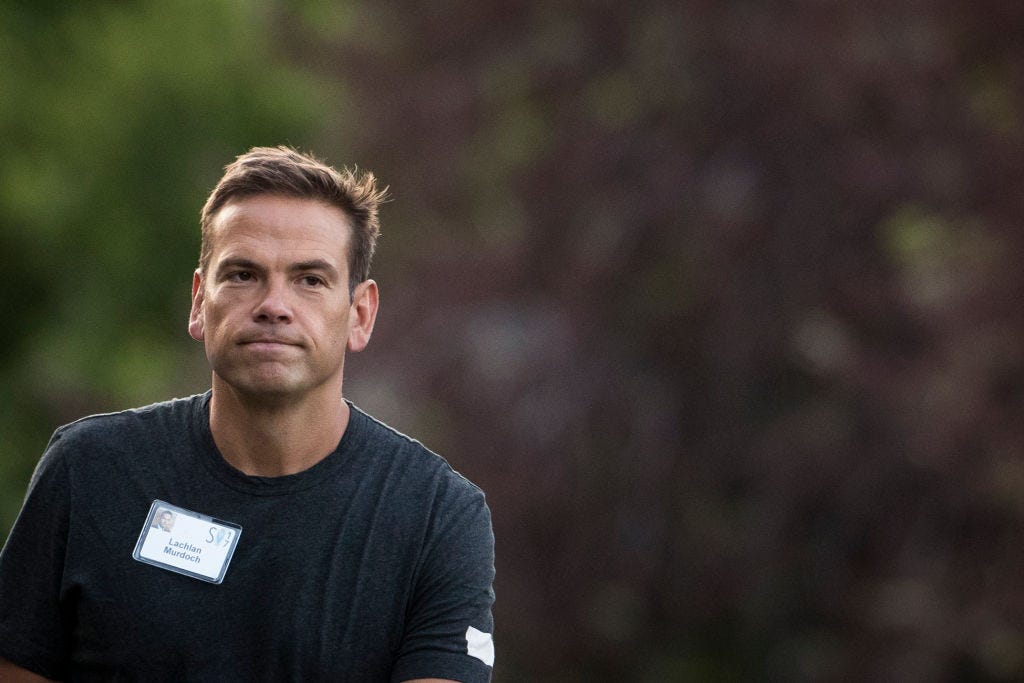
Start the Week: Lachlan goes legal; The Block puts Nine back on top; Foxtel's anti-siphoning push
Today’s topics:Foxtel anti-siphoning pushLachlan Murdoch calls in the lawyersAFL talks TV rightsFormer Enero research companies on the blockAs always, we’d love to hear what you think at [email protected] reading:SMH / The Age: ‘Stuck in time warp’: Foxtel boss unloads on outdated regulationAustralian Financial Review: Foxtel prepares a push for content from US studio giantUnmade: How real estate is carrying News Corp while Binge fadesSMH / The Age: Lachlan Murdoch sends legal threat to Crikey over January 6 articleThe Australian: Crunch time for AFL TV rights dealNine: OzTam ratings analysisAustralian Financial Review: Mercury Capital puts FiftyFive5 in play, E&P researches buyersUnmade: Hello from the holdcosAudio production on Media Unmade was courtesy of Abe’s Audio, the people to talk to about voiceovers and sound design for corporate videos, digital content, commercials and podcasts.Message us: [email protected] This is a public episode. If you’d like to discuss this with other subscribers or get access to bonus episodes, visit www.unmade.media/subscribe
20:2014/08/2022
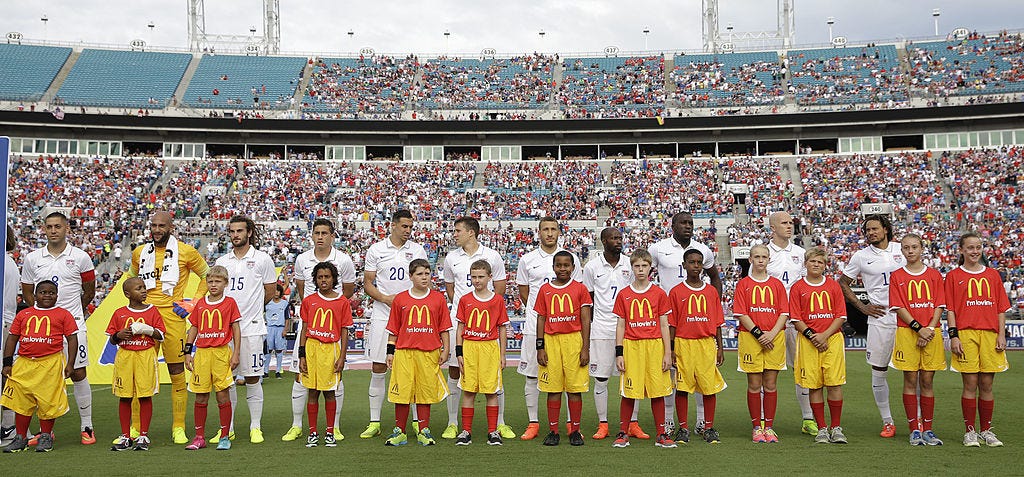
Start the Week: Fast food marketing under attack; TikTok grabs $70m slice of ad market; Meta goes missing again
Welcome to Unmade’s Start the Week.Today’s topics:* Politicians target fast food marketing to kids* TV ad revenue shifts to streaming* Blockbuster AFL rights bid goes missing* Seven’s Commonwealth Games win* A big week in TV launches* TikTok’s Aussie income revealed* Meta goes missing in action. Again.* John Sintras’s new gig* Why bosses want everyone back in the officeToday’s episode features Unmade’s Tim Burrowes and Damian Francis. As always, we’d love to hear what you think at [email protected] reading:* SMH / The Age: GP-turned-MP to demand action on junk food advertising* The Australian: Ten’s AFL rights bid falls flat* SMH / The Age: ‘Plucked from thin air’: Paramount plays down AFL bid, eyes future deals* Mumbrella: Birmingham 2022 Commonwealth Games brings in over 10M viewers for Seven in first week* Nine: Weekly Oztam analysis* Australian Financial Review: TikTok Australia revenue surges as Facebook rivalry heats up* SMH / The Age: Meta missing in action at crucial Treasury talks* Mumbrella: Mutiny appoints John Sintras to lead US expansion* Unmade: Saying out loud the quiet bit about work-life balanceAudio production on Media Unmade was courtesy of Abe’s Audio, the people to talk to about voiceovers and sound design for corporate videos, digital content, commercials and podcasts.Message us: [email protected] This is a public episode. If you’d like to discuss this with other subscribers or get access to bonus episodes, visit www.unmade.media/subscribe
33:1207/08/2022
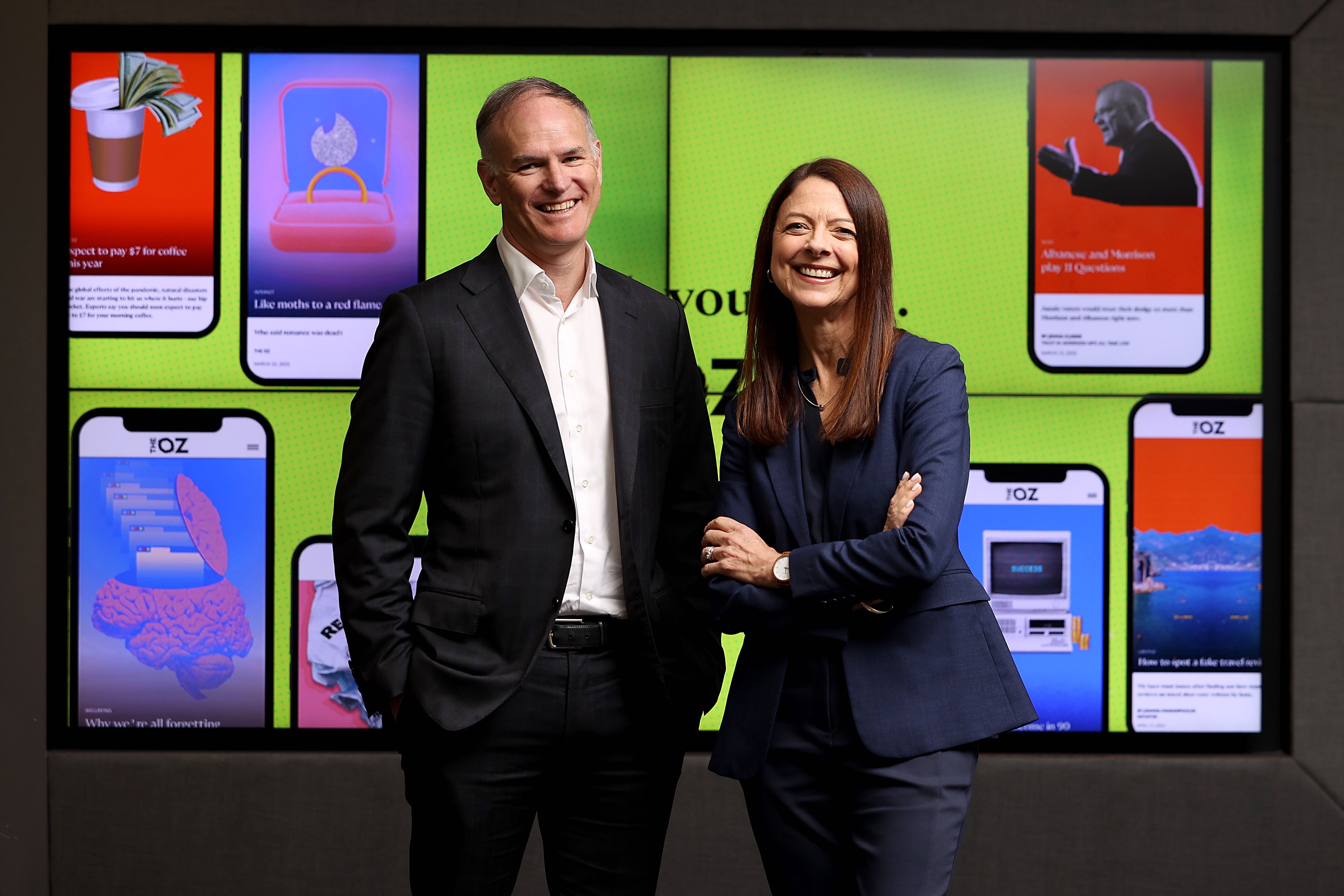
Start the Week: AFL TV rights bids land; new streaming subs fall; the prolonged radio recovery
Today’s topics:* AFL TV rights bids land* How long will radio’s recovery take?* Ooh Media gets closer to News Corp* Streaming subs slowdownToday’s episode features Unmade’s Tim Burrowes and Damian Francis. As always, we’d love to hear what you think at [email protected] reading:* Sydney Morning Herald: Game on: Bids roll in for multi-billion dollar AFL deal* The Australian: Radio advertising market remains in recovery phase, says SCA boss Grant Blackley* Unmade: What we learned from Listnr yesterday* The Australian: News Corp Australia joins with oOh!media to spread the news further* Australian Financial Review: ‘The city’s full’: QMS Media shrugs off work-from-home orders* Australian Financial Review: Cost of living starts to bite subscription streamingAudio production on Media Unmade was courtesy of Abe’s Audio, the people to talk to about voiceovers and sound design for corporate videos, digital content, commercials and podcasts.Message us: [email protected] This is a public episode. If you’d like to discuss this with other subscribers or get access to bonus episodes, visit www.unmade.media/subscribe
22:4231/07/2022
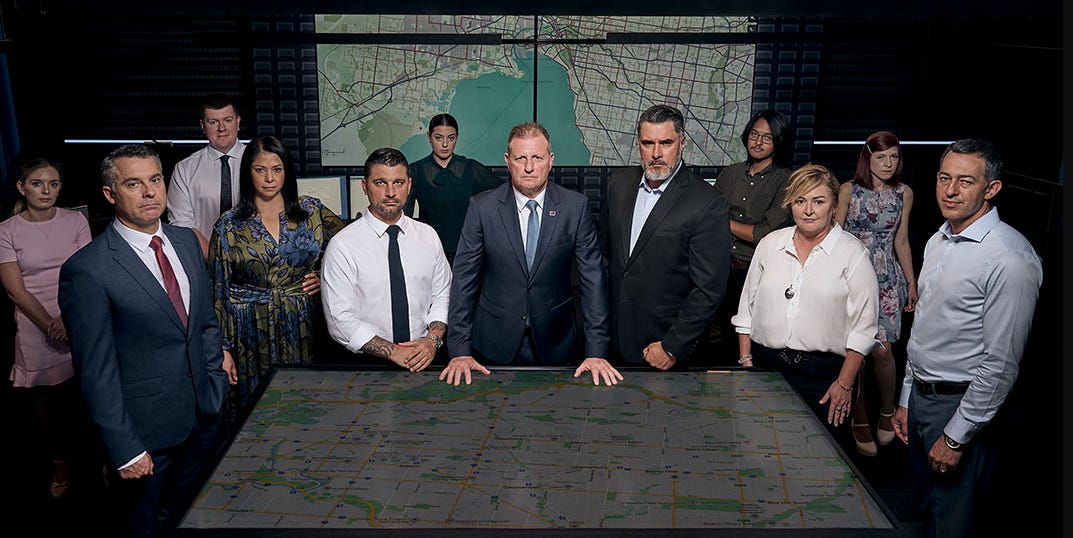
Start the Week: Ten's ratings turnaround; Has AFL missed the boat? Making space for introverts
Welcome to Unmade’s Start the Week.Today’s topics:* Ten’s ratings recovery* Will the fading ad market hurt the AFL rights deal?* Does adland have room for the introverts?* Signals from results seasonToday’s episode features Unmade’s Tim Burrowes and Damian Francis. As always, we’d love to hear what you think at [email protected] reading:* The Australian: English Premier League soccer friendly fails to fix Network Ten’s ratings woes* Weekly Oztam chart / via Nine: * The Australian: The Lisa Wilkinson soap opera continues* The Australian: AFL kicks own goal in TV broadcasting rights bid* The Australian: Diversity is a superpower, it’s time we create space for it* Unmade: Sorrell is a unicorn no longerAudio production on Media Unmade was courtesy of Abe’s Audio, the people to talk to about voiceovers and sound design for corporate videos, digital content, commercials and podcasts.Message us: [email protected] This is a public episode. If you’d like to discuss this with other subscribers or get access to bonus episodes, visit www.unmade.media/subscribe
34:3224/07/2022
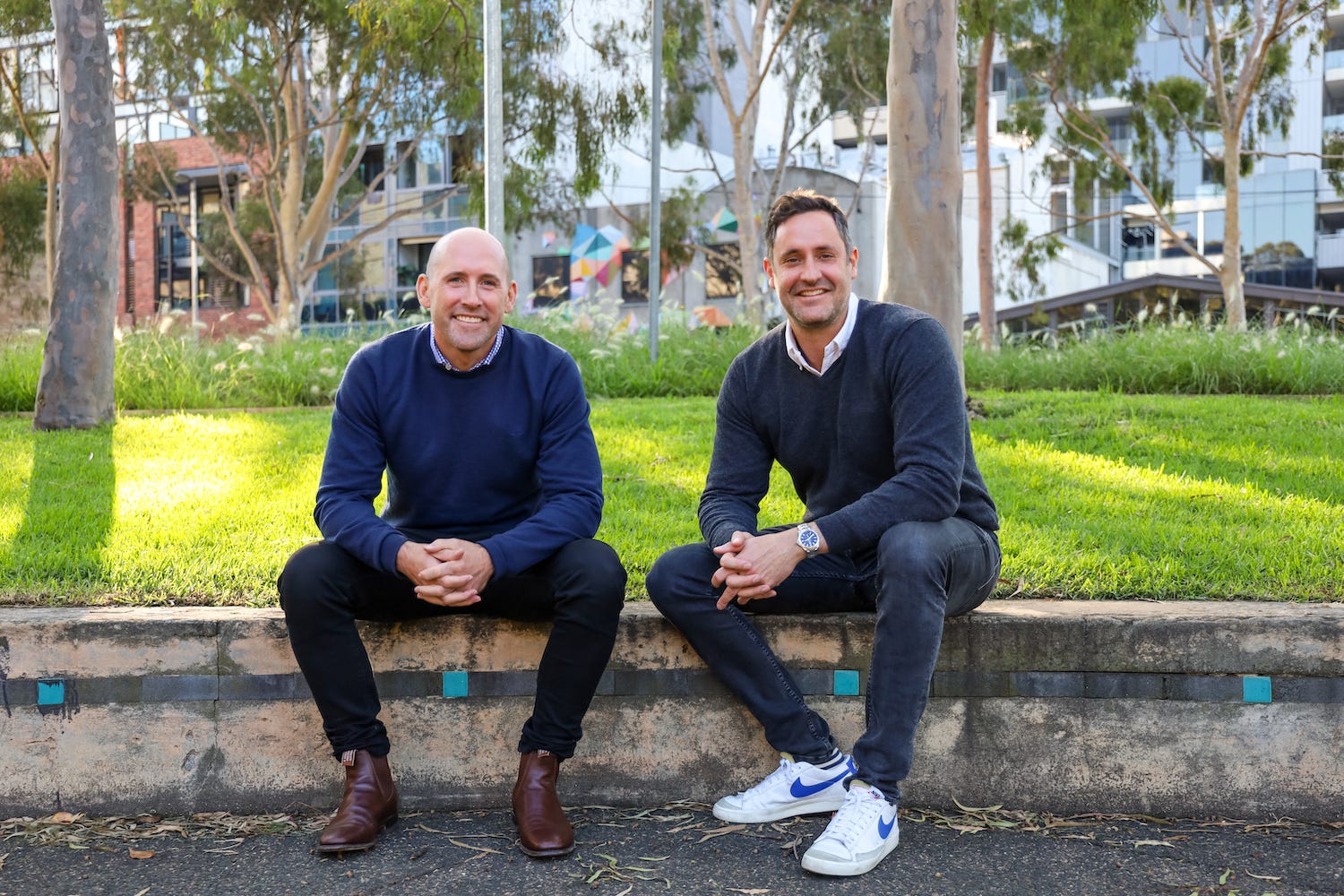
The Unmakers: Troy Townsend and Jack Byrne of Zitcha - turning retailers into publishers
In today’s episode of The Unmakers, we talk to Troy Townsend and Jack Byrne, co-founders of Zitcha.Zitcha thinks of itself as a demand side platform for retailers, allowing them to use their owned assets to become publishers of brand messages.The duo have a strong media pedigree - Troy is a former boss of digital agency Tiger Pistol and Jack is managing director of independent media agency Hatched.In the week that Woolworths’ Cartology announced the $150m acquisition of Shopper Media, we discussed the fast growing retail media space, and the growing influence of Amazon.I also asked whether Zitcha is a friend or a threat to media agencies.Over the coming months they plan to take Zitcha global. The duo revealed Zitcha is currently in the final stages of a seed round capital raising, with Troy revealing how potential investors can get in touch.Transcript:Tim Burrowes:In today's episode of the Unmakers, I talked to Jack Byrne and Troy Townsend, the co-founders of Zitcha. Zitcha thinks of itself as a DSP, or demand side platform, for the retail world. It helps retailers turn their own assets, including online and in store, into publishing platforms, by connecting them to brand messages. Troy, the CEO of Zitcha, was previously boss of digital platform Tiger Pistol before selling the business. Jack's day job is as managing director of independent media agency Hatched. Having got off the ground in Australia, Zitcha is now doing a seed stage capital raising to go global. To begin with, I asked Troy how the two of them came to be working together.Troy Townsend:It's a really good question. It's happened over quite a few years, Tim. So obviously Jack has built his media business, Hatched, over the last 10 years. And over the last 10 years, I've built a business called Tiger Pistol. And through that journey, we've had shared clients and got closer through clients and we've sort of started to see the retail media space sort of start to come into play. And both of us looking at how this space could affect our businesses. And about three years ago, I sold out of Tiger Pistol and me and Jack sort of started to work through where there was some opportunities. So it's been a long journey.Tim Burrowes:Well, look, it's worth mentioning Tiger Pistol, because that was one of the, I guess the big names in the first digital wave. What was the Tiger Pistol story briefly for people who don't know?Troy Townsend:So Tiger Pistol was a platform that basically helped automate the process of building Facebook ads for big channel partners globally. So we sort of took the journey of working really closely with Facebook or as they're called Meta now and basically helped them grow their long tail, big channel partners, automating the process of ads for SMBs. So we sold out that business about three years ago. So we sold it to private equity in the US.Tim Burrowes:So Jack, you have had sort of the parallel journey and with Hatched as well. What brought you to this point?Jack Byrne:Well, obviously what I've seen over the last 10 years and the environmental issues such as the proliferation of data and what I've seen in the programmatic perspective, in the ad tech and some of the dirty tactics that comes with that as well, there's also, you've seen the development of the Cartology and the first party data is ultimately where it's closest to the customer. And as a media agency, we spend all of our time and effort getting as close to the customer as we can. When retail media started becoming a thing, and it's always been a thing. It's probably important to note that retail media in its form, whether it's a shelf warbler or decals on the floor, this is not new, but certainly targeting that customer and closing the loop from a media perspective all the way through to the point of sale is something that's always been of interest mainly because we've had clients, whether it's retailers themselves, or suppliers of those retailers wanting to drive incremental sales, then that's always been our job.Jack Byrne:So it's always been keen for us because at Hatched, we've always wanted to act as agents of positive change is kind of our vision of the business. And this is something that really came out of that. And a few conversations with Troy and I've always enjoyed working with Troy, but also really admired the way his mind works and the way that the world's working and the technology and whatnot. And it's something that we came together and not to say it wasn't over a couple of beers, but it was over a couple of beers and a few more. And it's grown since.Tim Burrowes:Well, we'll get into the product in a moment. So, Zitcha officially launched back in June. It has its roots in another product called TP Collab. So what was the evolution from there to here then, Troy?Troy Townsend:When we sold Tiger Pistol three years ago, we sold our technology platform. But over the 11 years of building Tiger Pistol, we also built quite a large service business. And in the exit of focusing on one piece of technology, we incubated this product in TP and we called it TP Collab. And we sort of had a really good bit of time to relook at the market. Moving out of ad tech. Ad tech in its entirety is totally shifting, the landscape is shifting. Obviously with the environmental impacts of privacy legislation and deprecation of cookies, we sort of had the beauty of being able to look at a fresh sheet of paper and see where it was going. And this really came out of that.Troy Townsend:And we obviously done a lot of work with Facebook through the journey. We've done a lot of work with Google through the journey. And this space was something that they're both looking at quite closely, obviously, because it's directly connected to a lot of first party data. And so we incubated for the first 12 months, we just built and we sort of tried to build a product market fit. We were lucky enough to get a couple of early adopting retailers as alpha partners and really got into the cycle of them trying to work through this space and work out what they need to do in this space to be successful. And then we uncovered something that was even bigger than I first thought.Troy Townsend:And with the likely changes that happened to iOS 14 and the amount of signal data that the big platforms like Meta were receiving, it sort of just started to really put a fire under this space. And obviously we had competitors in the space that were only really focused on owned assets for retailers like Citrus getting acquired. There was quite a few environmental factors that really blew up the opportunity as we were incubating it within that TP environment.Tim Burrowes:Well, we'll come on to the sort of the partners in a moment and the competitors as well. Let's drill down a bit now. Let's actually talk about, I guess the key thing is, what problem are you actually trying to solve?Troy Townsend:So the problem that we're trying to solve is we're trying to... Basically with the changing landscape of media, brands need to be able to buy media that they can basically, their performance media that they can track conversion through. And you've got the likes of Amazon who globally made 31 billion as an ad platform last year, basically off the back of being able to track transactions and conversions. So they're a closed looped media business, which is absolutely valuable. And it's something a lot of the major publish publishers actually can't do. And you sort of start to see that and you start to see the evolution of some really big retailers, particularly you see it here with Cartology and Kohl's and Chemist Warehouse, but you also see in the US with the likes of Walmart and Kroger and Albertsons that are building their own retail media networks and making some serious headway to be able to compete in this media space with the likes of Amazon. So I think when we look at what are we actually solving in this space is we're making it super easy for retailers to turn into intermediate publishers, number one. That's the critical mission that we're on. And we're also making it really easy for brands to access inventory that they have never been able to access in the past.Tim Burrowes:Well, which is a great moment then I suppose to firstly, maybe give us some examples where you're allowed to talk about them, about some retail brands and supplies you've got on board. And maybe just give me a practical example or two of how in this new environment a message might reach a consumer in a way it wouldn't have done before.Troy Townsend:Yeah, well I think, I mean, we're moving into the age of real personalization. And I mean, I've talked about personalization through the last 10 years of my journey, but this is really, really exciting, number one, for a brand. Being able to access a cohort of users that buy their product or similar products of theirs through retailers to be able to directly come in contact with them.Tim Burrowes:So give me a sort of example of the sort of brand you're thinking of.Troy Townsend:Yeah. So, so let's talk about Diageo as an example. So Diageo have spent money with their retailers. We can look at the likes of, let's use Thirsty Camel as an example. Now they've got trade contracts in place with those guys. They've typically bought media through traditional realms, like they've bought in store wobblers, they've bought catalog. Really catalog was sort of 1.0 of retail media. And now what you're seeing is this transition to them starting to buy digital assets. So they're actually going on and buying keywords like they would on Google on Thirsty Camel's website, which in turn then when someone comes in to type in a certain craft beer, for example, that craft beer is giving them first slot on the products that actually surface within their transition to buy. So really what we're starting to see is that brands are being able to access inventory as close to the point of purchase than they've ever been able to access in the past, which is obviously really valuable for the brand.Troy Townsend:And then you've got the retailers that already have those assets in place. They already have the ability to search on their website. They have the ability to surface products, but they're actually giving the retail the ability to monetize that. So they can not only drive a better customer experience, but they can also start to create a new revenue stream to be able to compete against the likes of an Amazon, for example. So I think that's the really exciting bit of this space is it's a win, win, win. So it's a win for the brand because the brand actually gets to advertise to the specific audience at the point of purchase and be able to track to conversion. Number two for the retailer, it's super exciting because they now have the ability to really change the media landscape and change the way they do business to be able to compete against an Amazon of the world that they haven't been able to compete against in the past.Troy Townsend:And three for the consumer, I think this space really drives personalization. So when the consumer is browsing on a website or getting an EDM or looking at content across Facebook or across Google, they're getting a purely personalized experience to deliver an ad that is highly optimized for them as an individual, which I think the likes of Facebook and Google have done this really, really well over the last 10 years. And I think this is going to be the next iteration of personalization that comes through through the media landscape.Jack Byrne:Just to add to that point, I think there's another win in there. Obviously we spoke about the win from a brand or win from the consumer, win from the retailer, but there's also a win for the media and the platforms that particularly for Zitcha that we've identified that from a media supplier or a wall garden and a retailer, we consider as a publisher, but there's the ability to transact. And that transaction, the ease to transact within the ecosystem's really important. So ultimately if you can tie that transaction to an actual physical transaction in store or online, then it's more accountable media and more attribution towards media, and that's better for everyone as well.Tim Burrowes:Well, you both touched on that accountability or sort of measurement point, which is probably just worth exploring a bit more. So what data or information or signals are you able to give a brand that wouldn't have been possible before?Troy Townsend:Number one, the signals that they're being able to see is they're going to be able to see the signals from the individual retailers customers. So most brands that don't have a direct to customer approach have never really been able to use any of the real data of understanding the retailers customers, but this, number one, gives them access to be able to use that, which in turn gives them better opportunity to spend, number one, across the retailers, what we classify their own assets. So the assets that they own internally. So website, email, in store screens, all of these things that they haven't ever had access to in the past. But it also gives them access to utilize those audiences across Meta. So Facebook and Instagram, Google YouTube, Pinterest, Snap, TikTok. So think about all these wall gardens that are really built off the back of having strong cohorts and strong first party to be able to get the best out of them. These brands now have access to be able to utilize that through their retailers.Tim Burrowes:And the brands and presumably retailers as well are obviously very sensitive about their own data. How do you make them comfortable that you are also protecting their data at the same time?Troy Townsend:Yeah, I mean, I think that's a huge one. I think a lot of retailers at the moment are sort of working around, like how do they build a retail network? How do they make sure that they're protecting their first party and the data that they have to not only differentiate them to other retailers, but also to make sure that they've got maximum value and they've got maximum control. So, we built Zitcha with a view of really building for the retailer, making sure that we're helping them structure their data, but we're not actually touching the data that they're sitting on. And also the brands are not able to take their data and use it for other things. It's all very structured and connected in a way that they can utilize the data as they build their ad units, but there's no sharing of data outside of that.Troy Townsend:So, I think a big part that we're seeing now is retailers want to be in control of and feel really comfortable and confident in this space. And that's one thing that we've made sure is happening is to make sure that they're in full control of the data that they have and who they share that data with as well. So that can be very specific on certain cohorts they have to certain brands that get to utilize that. Not everyone gets to utilize that. Really sort of helping them sort of really control not only the surfaces that they want to sell, but also how they utilize the data that connects with those surfaces.Tim Burrowes:Well, Jack, let me bring you in a bit as well. Maybe let's just talk a bit of an overview of the sector itself, sort of retail media. One of the kind of announcements we've seen shortly before we record this is Woolworth's or Cartology, which is their kind of retail shopper arm, buying shopper media for a headline of $150 million. So there's a lot going on in the sector generally. What do you see as the key developments? What's been driving this market in the last few years?Jack Byrne:Being closest to the customer is the job for every marketing manager or agency globally, right? So once the retailer in question identifies that and invests in that, whether it's building the cohorts and what we are seeing from a retailer perspective, the really good ones are spending the time and money and resources in actually building out their data sets first. Because understanding the cohorts within the retailer element, you are able to put different values on the different cohorts. And the ones that are doing really well will benefit the most. So that's what we are seeing the first and foremost. The likes of what Cartology has done, really smart move from their perspective, in my view. It adds another part to their ecosystem that they can sell against. Owning that asset, selling that asset at a 90% margin. The payback on that investment will be pretty quick, I'd imagine.Jack Byrne:So again, really, it's a big deal in our landscape. Payback is fabulous. And from our perspective, again, we totally support it because it got to a point that when Cartology launched back in 2019, I know from a Hatched perspective, and we've got FMCG clients, then generally what we saw is the likes of a Cartology and whatnot, they're the first ones to go on a media schedule. They're the first ones, because it's a no brainer that you want to target the customers close to the point of sale. But there were still challenges. And the challenges that we saw with that is from an operational perspective, because a lot of it's still very manual. It's still very closed to agencies whereby the predominantly what we are seeing is retailer and supplier having their trade marketing budgets being tied into their overall contracts. And then actually what's happening at the retailers end, it's all a manual programming of YouTube, manual all of that is very high touch from resourcing, from human beings, and otherwise.Jack Byrne:And one of the problems that we're trying to solve is that operational side of things. Going, okay, you max out inventory really quickly and you max out capacity really quickly based on the fact that it's human led. So where Zitcha comes into it is really by adding in an ecosystem play across the likes of Meta and Google and YouTube, which is all built in, then A- the inventory's unlimited. And then also from a human perspective, they can start talking to the long tail of suppliers whereby previously they're probably, they're monetizing say 20% of their customer base or their supply base until they max out their inventory and their capacity. So what we are doing is providing these retailers with a long list of suppliers, the ability to actually access a hundred percent of them and monetize a hundred percent of them and maximize the opportunity for them. So that's what we're seeing.Tim Burrowes:Okay. Now, just before we drill a bit more into your business model, Troy, something I wanted to just come back to that you mentioned earlier, Amazon. Something like $31 billion around the world as a retail media outlet, as an advertising outlet effectively, yet my sense is in Australia they haven't had the same level of impact. Firstly, I suppose I'll be curious whether you agree with that. But secondly, I wonder if you do, if you have a feeling on why that is?Troy Townsend:Yeah. I mean, I don't have the direct numbers in front of me, but they are definitely making an impact year on year here in Australia. They're definitely growing quite rapidly. I think that the $31 billion is a big number and obviously we're only, Australia's only a very small part of that from an opportunity perspective as well. But, I think what you'll find is that they're going to, they're picking up steam quite rapidly. I mean, I think their entrance into the market was a bit slower than what everyone first thought they were going to be. But I feel like they are slowly, but surely, and slowly, but surely is probably not the right word. I think they're creeping up on everyone. And I think that we are going to start sort of start to see the impact of that, which we're starting to see on the flip side of Amazon. I think, I think retailers are really starting to see them as a clear competitive threat, which they've talked about for years, ever since they sort of came into the Australian market. But I think definitely now they're looking at how do they really combat against them as a business.Tim Burrowes:Okay. Well, we've talked a bit about how you solve the problem for the industry, which obviously is a service. I guess the other part of the equation is in order for you to be around, you've got to make a dollar. Should I crudely think of you as an ad network? Is that really the method that you make your money?Troy Townsend:Yeah, I mean, I think we are, like at DSP for retailers basically. So we make it very simple for them to bring their inventory to market and deliver that inventory to specific suppliers and specific brands. So that is probably how you would look at it. I think in the stage that we're in within the market is retailers bringing their inventory to market. I see in the US, these things starting to come where there's multiple retail media networks coming to market with individual retailers where brands are going well, how am I comparing apples to apples or apples to oranges? And I think you're going to start to see a bit more, which we're starting to look at is like aggregation of how do we make it really simple to buy across multiple retailers.Troy Townsend:So I think the big piece is making it very simple on both sides. Being on the retailer side to bring their assets and control the inventory that they have. And I think, to Jack's point earlier around Cartology, the purchase of is really they're buying more inventory, they're buying a broader subset. So, as a brand, makes the Cartology model a lot more appealing when I can buy in store, I can buy on online, I can buy sort of their digital out of home as well. So, I think these guys are really starting to ramp up the fact that they're media businesses and adding value into the brands. And I think from our perspective is, in Australia as we start to see more networks come to market, that's going to be one thing, but making this space uncomplicated is going to be a very, very big unique offering in market. Because I think, in the US, I was in the US last week at a retail media conference. And they just talked about how this space can be overly complicated from a brand perspective. And I think there's a job to be done as the space really grows to make it really easy for everyone to be able to use and spend and continue to spend in the space.Tim Burrowes:And just drilling a bit more into the business model. So effectively you clip the ticket of each placement, that's your main business model.Troy Townsend:That's correct. Yep. Yeah. Yeah. We take a percentage of the media.Tim Burrowes:And those are on standard terms?Troy Townsend:Yeah. So we take a clip of the media that goes through the platform. So it makes it really, I mean, it's an easy one for most retailers to understand. They can work out what margin they're going to make. And it's a nice, simple transaction. And it is on standard terms with the retailer. That's where we set up the model. We're not directly with the brand.Tim Burrowes:And what are those terms? What percentage clip is yours?Troy Townsend:So varies based on the size of the media. So it can be anywhere from 10% down to 4% depending on where it plays.Tim Burrowes:Okay. Now let me bring Jack back in, because I think this is a good one for where you span the two worlds of media agencies as well. I'm sort of wondering whether Zitcha is a friend or potential foe for agencies and that's a question partly inspired by a guest post I recently read in Avenues from Troy. I'll read out the headline for our audience. Headline is, "Retail media could provide your agency new revenue stream", but then it's the second part of the headline which intrigues me, "or could cut your lunch". And then the final line of the piece from Troy is again making that similar argument, "All this ultimately means more billable time. And isn't it better if clients on both sides talk to you rather than going direct to the retailers and cutting you out of the action". Now that sounds like...Jack Byrne:Very controversial don't you think, Troy?Tim Burrowes:Yeah. I'm intrigued by it, because it does sound like a bit of a mixed message to media agencies that maybe you are going to be taking a slice of the action away from them.Jack Byrne:Yeah, sure. Well, I'll take this obviously with the media agency background, because it's something that the whole world of retail media, if I was to be frank, scared the s**t out of me. As an agency model where we are a service based business in the service based industry where FMCG clients and suppliers of retailers, where's the value that a agency can provide to ensure that our existence is there in the first place. But ultimately there's two ways to go about it. Is accepting that fact or from an agency perspective and something that we're really leaning into at Hatched is embracing it and building out services that surround it. Because as Troy alluded to it earlier, the retail media space is growing rapidly. We're still very much in the infancy. And it's the retailers themselves aren't yet quite organized to, you see the Cartology, you see Coles media. In Australia, it's very easy to kind of get blinded by that. But if you look at tier two, tier threes, even other retailers in the tier one space, you've got the merge teams and you've got the marketing teams, but no one really owns the media teams.Jack Byrne:And then the same from an agency space, what can you add value? And ultimately what's going to happen once all of these retailers get organized and have retail media platforms and retail media networks to buy into, then you got to flip your head into the brand's perspective and go, well, where do I get the best return? And it goes back to the genesis of a media agency in the first place is helping the clients navigate a tricky landscape. Brands are, they know the retail media space, they value the retail media space, but they might not know how to navigate the retail media space.Jack Byrne:And ultimately, one thing that you'll see Hatched doing is really delving deep into not only Zitcha, but the likes of Amazon. Amazon is coming and you'd be stupid to think that they're not coming. They have been here for a while. They are growing year on year, month on month, but it's a lot of suppliers don't know how to navigate them. So it's understanding that as a view will give you an idea as to where the benefit is from an agency perspective, because there are services and requirements to wrap around the proliferation of the technology that will ultimately either benefit you or you let someone else do it. And you look at the Publicis acquisition of Citrus last year. They paid $205 million for a platform and they've wrapped it into their Epsilon product. And all of a sudden Epsilon Publicis they've got a strong point of difference within the marketplace that can talk to retailers and supplies alike.Jack Byrne:Now you've got no one else left to buy and it's not to say that we'll be sold or bought or even were for sale for any of the agency networks, but we can certainly work with them. And that's the interesting part.Tim Burrowes:Well, I'm amused by it, as soon as you started saying you weren't for sale, a big smile came onto Troy's face. Because we can see each other on video, although this is only an audio podcast, which I suppose is a good point for me to sort of raise that question to Troy or to both of you is I guess one of the points of The Unmakers podcast is yes, we're talking about industry models useful to the industry. And I think maybe we also have an audience of people, I hope we do, who are interested investing in new things as well. And I presume that once you have an idea like this, in order to scale, it takes investment. So I'm wondering, Troy, what you see as the barriers to scaling or where you need to invest. I mean, the thing that occurred to me obviously was it feels like you'd need a sales force and if you're going to go global, that means a global sales force.Troy Townsend:Yeah. Yeah. I mean, definitely I think like any tech business, you need to invest in the product, the R and D and your sales team and your marketing. So, we've got it to a point where we've been in a great position to be able to self-funded to today. But we definitely understand that to scale and grow fast, this opportunity is time sensitive and that takes capital. So yeah, we are definitely in the process of capital raising at the moment for the business. So hopefully we'll close that off pretty shortly. But definitely this business is set to grow outside of the geography of Australia and New Zealand. And we definitely have a global first mindset and we're being very focused on understanding where this space is moving in different markets, bigger markets in Australia, Southeast Asia, the US, Europe, South America. Like this space is at its infancy across all of those markets with not a heap of competitive pressure right now. I would think that competitive pressure will come over time. And I think the next sort of 12 to 24 months is going to be really critical for us to get our position in market and get the opportunity moving.Tim Burrowes:And this round of capital raising. Are you still open to more conversations? Are you closing off the conversations you are having?Troy Townsend:Yeah, definitely. Yeah, no, we're pretty close to closing off this round, but I think capital raising is something that lasts the length of your business. So we're at sort of what we would classify as seed and we'll do a series A and we'll sort of see where the business moves. There's a huge opportunity. If you look at this globally, this is a hundred, BDC say it's a $100 billion opportunity. I think it's bigger than that. And for us, it's about how do we really capitalize on that opportunity as quickly as possible. So definitely anyone that is that's looking to invest in this space, we're definitely open for conversations over the full journey of the business, to be honest.Tim Burrowes:And how do they reach you?Troy Townsend:I mean, they can send me an email at [email protected] if they want to reach out or it's at [email protected] Burrowes:Z-I-T-C-H-A.Troy Townsend:Z-I-T-C-H-A.com. Yep. That's right. Yep.Tim Burrowes:And I guess typically for seed, you might look at raising half a million dollars or something. Is that the sort of number you are looking to?Troy Townsend:No, it's quite a ways north of half a million. We've funded it to a point where seed is based on, it's going to be the first layer of investment in the business, but we've built the business to not a bad size. So we're not really early, but we're still early within the journey of the opportunity.Jack Byrne:Yeah. And just to add to that, I mean, we've already put a couple of mill into this to build it. And we can continue to self fund it now. And we expect to be profitable pretty quickly, like within the next 12 months. So a tech business to be profitable is quite rare in these days, but it's also what's rising through the cream and the blood birth that is out there. But we are choosing to do a raise now because of the land grab and because of the opportunity that comes with a platform that's been in development for two years. It's got revenue, it's got media going through the platform. And really it's a chance for us in the next 12 to 18 months to really build a moat around us and get the runs on the board and go hard.Jack Byrne:And that international markets is really important to us because it's very easy to get caught up in the worlds of what we see in Australia being the Cartology and the Kohl's meter and be blinded by two small parties. But you look at other markets where in the US for instance, the size of a Kohl's is, there's 50 Kohl's and that's just on the Eastern sea, and so we've got to be smart about where we put our time in the next 12 months, not just our resources.Tim Burrowes:Now you make a good point, Jack, on the tech valuations blood bath. There's been a fair bit reported recently that valuations for investment rounds are kind of down as a result. What valuation have you put on the business?Jack Byrne:We haven't got to valuation at the moment. The template or the mode that we are going is more in a note, but that will depend on who we're getting involved in at the end. At the moment, we're just rallying up all interested parties to come to the table, to work out who the best are for us. And it's important that point is delivered that ultimately we need, we want our partners to really lean into the opportunity and really open up opportunities, not only locally, but internationally as well. The instrument that we're using will be determined by the people that are at the table by the end of it. Now, we could easily oversubscribe at the moment. Again, we're being smarter, we're in no rush to be able to take on investment. And at 50/50, our cap table is pretty clean with Troy and I, and it's something that we value our independence and we value being able to make the decisions that are best for staff and the best for clients. And that independence is something that we value highly because it's ultimately what will determine our success in the future. So that's something that we'll continue to do.Tim Burrowes:And that sounds presumably then that you're not really talking kind of the traditional kind of venture capital type investment, necessarily. If that's the route you're going. What sort of people have invested?Jack Byrne:Well at the moment, just Troy and I are the ones that have invested. But we are talking to venture capital. There's a lot of interest in this space. So we are not closing the door to anyone because some venture capitals have people that invest in their funds that are well off in the retail media space or the retail space. Or they might have access to markets that we aren't in yet. It's really, it's open to anyone. And it's a two way conversation. We're just not taking the money and running with it. It's not money that we need. It's more partners and someone that we want to work with. That's something that Troy and I, we've been in the game long enough to go, there's plenty of money if you ask for it. It's just the right money. And that's what we are being mindful of at the moment, is taking the right money from the right partners and going from there.Tim Burrowes:And clearly where partners invest, they also at least want a sense of what their possible exit options are. Obviously, we talked about the likes of Citrus being picked up by a global holding company. What are the potential route for you down the track, do you think?Troy Townsend:Yeah, so I think the critical thing that we're looking at is building a really successful, sustainable business being the first point. But I think really this space is, trade sale is one thing similar to Citrus. But this space is big enough for IPO. There's real opportunity. And we sort of see this base being independent and really driving that independence. Sky's the limit. We're right at the very start of something that I think is going to be very large. It'll just be, it'll be interesting to see how the different opportunity of different people that are probably looking to acquire or get something in this space changes over the next sort of 2, 3, 4 years. I think strategics are definitely keen in this space.Troy Townsend:How do they catch up quickly and how do they buy into this space or buy some technology? You're obviously seeing the big media networks, there're either looking at building or buying in this space as well, to even the big publishers. The Googles and the Facebooks of the world are going to obviously have a keen eye on where this space goes and how it plays out. So, I think it's going to be an interesting journey as we move through it.Tim Burrowes:Well, final question for me. If we check in again in a year's time, where will the business be at?Troy Townsend:In a year's time, I think, I mean, definitely we are going to be in multi market business. We've sort of had the ability to incubate in this space in Australia and New Zealand, but definitely we'll be in multiple markets outside of this space. I think we should be at the process of the space being sort of further progressed. And obviously from our perspective, having a lot more retailers connected in, but really we want to get to the space of being really focused on driving great brand experiences and fully automating the media mix modeling of this space to sort of really differentiate against anyone else in the market. So, 12 months is a long time, but it goes quickly when you're trying to you build and grow.Tim Burrowes:And Jack, let me bring you in as well, because I presume for you, you'll have to decide at some point if this rocket ship takes off, then you are going to have to step away from Hatched don't you?Jack Byrne:Well, luckily I've got very good staff in both organizations to carry me, because I'm just a squirrel trying to get a nut. But the one thing that I will add to Troy's point in the next 12 months is we, the world talks of retail media, but we don't talk just to retailers. Anyone that has first party data that is of value and has assets, and that asset could be digital screens in multiple venues. It could be an e-com, it could be a whole bunch of different. It could be an email database that could be worth monetizing. We are currently talking to adjacent industries and adjacent businesses to empower them the same way that we are doing with retailers. So within the next 12 months, you'll start seeing this breakout a little bit more beyond just retailers and that's what is really exciting because then you can start creating networks and like minded networks that are all attached to data that is built in similar structures and whatnot, and getting closer to the point of sale. That's really exciting to me in terms of building into green fields that people aren't really talking to. But that's certainly where our view is in the next 12 months, you'll start seeing a bit of that too.Tim Burrowes:Well, we'll check in and see. Troy and Jack, thank you very much for your time.Jack Byrne:Thanks for having us.Troy Townsend:Thanks Tim.Tim Burrowes:Thanks for listening to the Unmakers from Unmade. If you are an Unmaker, I'd love to talk to you. Email me, [email protected]. Audio production on Media Unmade was courtesy of Abe’s Audio, the people to talk to about voiceovers and sound design for corporate videos, digital content, commercials and podcasts.Message us: [email protected] This is a public episode. If you’d like to discuss this with other subscribers or get access to bonus episodes, visit www.unmade.media/subscribe
45:3520/07/2022

Start the Week: Return of the pirates; AFL rights bidding heats up; Will Nine journos strike?
Today’s topics:* AFL rights go to the wire* As video streaming disaggregates, piracy returns* Streaming revenue overtakes TV advertising* Will Nine’s newspaper journos strike?* Aussie startup aims to be the next WordPress* Adland’s inclusivity problemToday’s episode features Unmade’s Tim Burrowes. As always, we’d love to hear what you think at [email protected] reading:* The Australian: Live matches in focus as AFL TV rights deal comes down to the wire* Sydney Morning Herald: Netflix’s next challenge: piracy is back* The Australian: Australians spending a record amount on media and entertainment, PwC report shows* The Australian: Nine Publishing staff to vote on protected industrial action as pay fight heats up* The Australian: Smith ‘counselled’ by 2GB after Hadley attack* Australian Financial Review: WordPress rival raises $500,000 in seed funding* Australian Financial Review: ‘Like an accountant’: Businesses urged to audit digital marketing* Unmade: Adland is a cosy club for some; why do so many want to leave?Audio production on Media Unmade was courtesy of Abe’s Audio, the people to talk to about voiceovers and sound design for corporate videos, digital content, commercials and podcasts.Message us: [email protected] This is a public episode. If you’d like to discuss this with other subscribers or get access to bonus episodes, visit www.unmade.media/subscribe
19:4817/07/2022

Start the Week: Are we running out of PRs?; Musk pulls out of Twitter deal; Catalano's new real estate play
Welcome to Unmade’s Start the Week.Today’s topics:* Will Kyrgios’s Wimbledon run boost the value of the Tennis Australia rights?* Elon Musk pulls the plug on Twitter* Does Australia have a PR shortage?* Antony Catalano’s next real estate publishing move* More ructions at the Judith Neilson Institute Today’s episode features Unmade’s Tim Burrowes and Damian Francis. As always, we’d love to hear what you think at [email protected] reading:* The Australian: Australian Open TV rights to soar due to Nick Kyrgios factor* Wall Street Journal: Elon Musk Seeks to Abandon $44 Billion Twitter Deal * Australian Financial Review: ‘Can’t keep up’: PR industry wants to import foreign flacks* SMH / The Age: Local media companies inject cash into Catalano’s new real-estate play* SMH / The Age: More exits at embattled journalism institute as it pauses international programsAudio production on Media Unmade was courtesy of Abe’s Audio, the people to talk to about voiceovers and sound design for corporate videos, digital content, commercials and podcasts.Message us: [email protected] This is a public episode. If you’d like to discuss this with other subscribers or get access to bonus episodes, visit www.unmade.media/subscribe
29:2510/07/2022
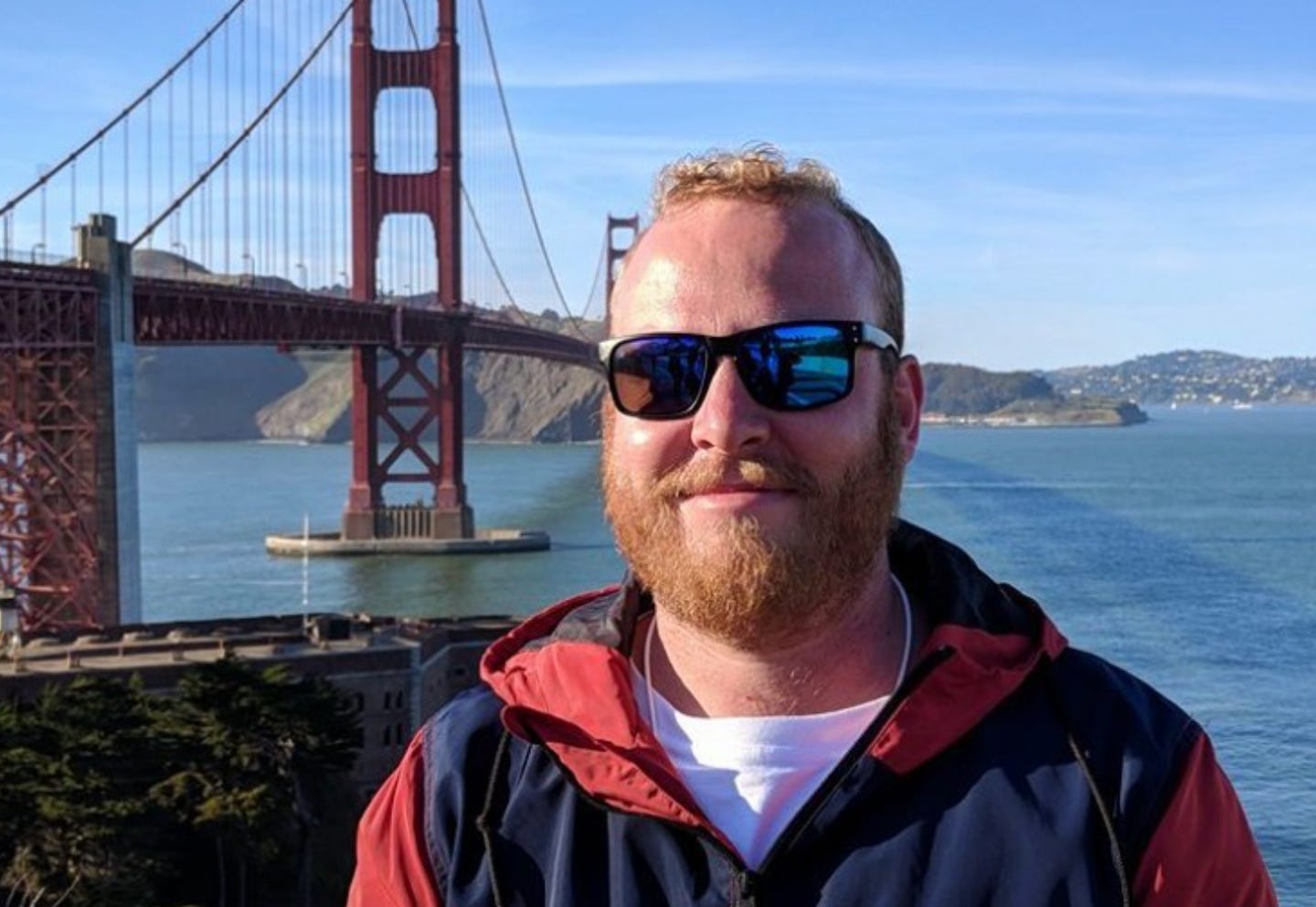
The Unmakers: Austin Mackell of Stone - using technology to improve journalism transparency
In today’s episode of The Unmakers, Tim Burrowes talks to Austin Mackell, CEO of Write In Stone.A foreign correspondent for much of his career, Austin now leads a team building the Stone transparency platform.The platform allows journalists to capture every stage of their research so that readers can see how an article was put together.Write In Stone is seeking investment of around half a million dollars, valuing the company at $5m. As you’ll hear, the conversation takes an unexpected turn when Mackell informs me: “F**k the investors.” Later, he explains what he means by that.Below is the full transcript of the interview. Today's episode of The Unmakers was edited by Abe's audio.Transcript: Austin Mackell of Write In StoneTim Burrowes: What problem are you trying to solve?Austin Mackell: Trust. The crisis of trust in the public sphere in journalism. And sometimes I say fake news and I kind of think the two things are flip sides of the same coin. It's about the problem is directing news, consumers towards reliable news. And there's a lot of people worried about this problem. And I think we've got a pretty unique approach to it.Tim Burrowes: So, how are you solving the problem?Austin Mackell: Well, our slogan is “research is valuable, make it visible”. And we mean that quite literally. Make the actual research process that goes into the story visible using video. So, the sort of two taglines are trust through transparency and video without the pivot. And I guess the key word in terms of execution is picture in picture video. So, you could call it Twitch for journalists. I think that kind of gives you an idea, might give you the wrong idea. I mean, you've seen the product, you've seen some of our stories by our pioneering user, Scott. How would you describe it to me? Because I've told so many people so many times, I sometimes feel like I'm talking nonsense. You tell me what our product does. You've seen it.Tim Burrowes: One of the privileges I think when you're chatting to people are very early in the stages of a startup as they're still evolving their pattern. One of the things that's worth emphasising is that although you use video to capture the process, the journalist has gone through in their research, It's not as if this is something for video bloggers. It's for traditional journalists, but it's a way of them showing their workings.Austin Mackell: Yes, exactly. Our ideal journalist is someone who's writing text content for a WordPress blog or a Medium blog. They're doing straight to norm standard story writing like for a newspaper, but online. And they're curious about video. Maybe. But they're doing research. They're spending time checking their facts and making sure that the information that they're reporting is correct. And we track that process and allow you to market that as a point of difference is sort of the key offering. And that was actually the idea before video. Video was a means to that end. And then we realized, oh, wait a minute. People what? People like video, don't they? People want video in their content. If we can get free video that's a good thing too.And the two kind of ... So, you've got the high notes and the low notes, as I like to say. There's like we say, video without the pivot. There's this immediate sort of benefit of you get this free video component to your story, which we'll talk louder about how you can tap into that value. But you also get this brand prestige that you build and a personal connection. People are seeing the journalist’S face. They're seeing what's on the journalist screen. It's sort of hard ... It's like brute force empathy. And you're going to see, like if you see Scott's stories there's hundreds of minutes. We're still measuring in minutes. Minutes of research time. And the bit where you turn your webcam on, by the way, the bit where you turn your webcam on and you explaining what's on your screen, which we call the highlights. That doesn't count towards your research time.It's only the bit where we're sort of capturing the time lapse. That's one screenshot every second. That's what we measure in research duration. So, you know how medium has a read time. You can imagine in the future, once people are sort of accustomed to this system, you can imagine people discussing research depth. And I imagine that would be the time someone spent researching it versus the time to consume the media. If you're going to ask-Tim Burrowes: And the idea is that as a journalist is researching an article, they use the software to capture, okay, they're looking at this document. Here's what they do. They talk to the camera, explain what they're doing. They've just made some notes or something, or they've just found a report. Here's the bit in the report. So, the video captures the various moments rather than being something they just shoot at the end of the project?Austin Mackell: Absolutely. Right. It's a ride along. And we want you to show the audience the actual process. Now it's possible that you can record all of your research first, and then we might add a presentation mode or something. But we're very nervous about that because there's a lot of programs for people to just talk at a webcam, right? We're not just a Zoom competitor. We're not a video product. We are a trust platform. And video is a powerful tool to build trust, but it's not the only one we're going to use.Tim Burrowes: And to talk about in startup parlance, the use case. You've touched on Scott, which is Scott Stegman, founder of Forensic News. So, how is he using it?Austin Mackell: Well, exactly as described. Now, I actually had, or have, more like had now a network in journalism of people I knew from years. And then I could have went into the bunker and did dev for a long time and then came back up and pitched everybody. And it wasn't any of them that was our first user. I got Scott via cold Twitter DM from a brand spanking new account I set up. I said, "This is the product. This is the idea." And he said, "Holy s**t, I love it." And now we're best friends. Well, shouldn't put words in his mouth, but he immediately said, "This is a great idea." And it wasn't about how I pitched it. It wasn't about the network. He immediately understood the core concept, used it exactly the way we'd imagined it, which is what you're not meant to get in startups.You're not meant to have people use it the way you imagine it. But he already had a philosophy because he'd actually interned with law enforcement before doing journalism. And his philosophy was “I will not write a story unless there is at least one piece of evidence, which I would present to court without being embarrassed”. There's got to be something here that would be admissible in court. And that's got to be the core of what the story is written about. So, he already had that philosophy and he was already doing really well. He was already rocketing, already doing ... He's 25 years old and he's got his own publication and he's going to be testifying before Congress. And he's a rock star, this guy. And he already had that philosophy. So, it plugged right in. And I think what we're betting on is that's what the next generation of journalism will look like. Especially at the high end, at the premium end of the spectrum.Tim Burrowes: And one of the attractions for Forensic News and Scott is that it's funded through reader donations. So, he would see this as a tool for increasing that reader trust.Austin Mackell: Yeah, absolutely. Well increased donations to Patreon is both a product of, we get it both ways, by building trust. People go, “Oh wow, I trust this guy. He's making himself accountable to me. He's not telling me he's just shut up and trust me because I'm the expert and you're the player. He's saying, here's why you can trust me. I will make an account of myself and people like that.” And they're also seeing his face.And we also allow you to record a message like a call to action, which plays along with the research where he says Scott Forensic News depends on readers like you for support, please support us on Patreon. And he has seen Patreon donations per visitor go up by about 45% in three months since he started using the tool. And we would say that is just one manifestation of the increased trust that he's engendering from his readers.Tim Burrowes: Well, you are the CEO of the organisation. And you are a journalist by background, including several years sort of based in the middle east, but now back here in Australia. What do you think it is that qualifies you to be the person who solves this problem?Austin Mackell: Well, I'm the person who's doing it, right? I can tell you the story of how I ended up being the person who did it, is probably the best answer I can give. Should I do that?Tim Burrowes: Yes, please do.Austin Mackell: Well look, as a journalist, I was never particularly successful or talented or exceptional, but I did do some work that I was proud of. I did work that I was proud of. And the stuff that I was most proud of was during the Egyptian revolution in 2011 and 2012. And I was married to an Egyptian woman and we left to move to Ecuador in 2013. And from Ecuador, from the safety of Ecuador, we watched as the gains of the revolution were reversed in, and all of that we've gone from the most hopeful time in Egypt's modern history to the most depressing and oppressive time in Egypt's modern history. And that's not me. That's can't remember if it was Human Rights Watch or Amnesty International, but that's their summation. It's the most violent and oppressive time in Egypt's modern history.And that's a hell of a modern history to pick from. We talk about it so casually, but the stuff that happens is unspeakable. The things that are done to people in Egyptian prisons. I'm not going to repeat them on your polite podcast. But it's something. And it seems insane to me how the world sort of moved on from that. And so that reversal of that hopeful moment, and that kind of got me thinking is it's like we've been really optimistic because of the Egyptian revolution about the power of new technology. And then we started to see the problems emerging. And I basically think that the core of the team me, [inaudible 00:10:51], Daniel, who's our CBDO. John who's our COO. All of them, they were all involved in a project we started then.And all of us basically saw the fake news monster, the distrust monster a little bit ahead of everybody else who saw it in 2016 through the election of Donald Trump and the media warscape that we now inhabit. So, Egypt was a warning about that no one headed, except the people who were quite close to it. And so there was a movement called Rebel Tamarod. Which has basically stopped the steal, except they won. And they convinced us with the army and the US, they put the elected president in jail. I'll stop going on about Egypt. Sorry. But for me we were like, well, at this point, just writing another opinion piece, didn't feel like an adequate response.We thought, well, what could we do that would make a difference. And a thought that I kept coming back to was the night I spent with a guy from the Wall Street Journal, the Wall Street Journal's Cairo correspondent, who my wife had also worked for as a producer and a translator and so forth. And he was a libertarian and I'm a sort of lefty through and through. And we had exactly the same take on what was going on in Egypt. And this was this strange phenomenon where the people I agreed with were from all over the political spectrum and the people who I didn't agree with were from also from all over the political spectrum. It was kind of splattering. And I realised, wait a minute, the difference is, who knows what the f**k they're talking about and who doesn't.And that's actually a thing it's not just a matter of, I have to be a good soldier in the information war for my partisan side, which is what I will admit to having, it's a sort of Chomsky counter propagandist role that a lot of leftwing journalists take on for themselves. They're like, well, I know that the system's biased so I've got to leverage myself against that bias and balance on my toes while I ... You get the idea. So, I was like, well, how could we have directed people to better news? And the idea of transparency came forth. And it's like, well, if we set a new bibliographical standard that know what the bad faith actors can't meet, then we will begin to order and automatically exclude them. And we're thinking in terms of cultural change and website design.So, we were like, for every story there had to be artifacts, we set up an online website. We had volunteers from ... I was very pleased we managed to get volunteers from all over the world and raise a few thousand dollars and give it a shot. But it was amateur hour. But it was a valuable experience because, so first of all, the people were interested. They clicked through, and they clicked through, on these research artefacts that we created. So, about 10% of people wanted to go past the main story and look at the process behind it, to some extent. This is without video, without any sort of polish on it at all, just links to [inaudible] files. But of course, some of the best journalism didn't actually produce this handy documentary trail.It was people, for example, reading science journals and reporting on science. So, we had a science reporter do some stuff for us about dinosaurs. And I was like, well, how could we possibly show this? We can't republish the article. Copyright hell, right? So, it's data management and copyright hell. And at some point I realized, wait a minute, the tools don't exist to do this. And this is by 2017, then a core dynamic, the most dynamic core group of that volunteer base broke off and founded a company and said, "We've been doing it all nonprofit and so forth." And we're like, "No, we want to build a new software platform. So, we'll just start a software company like everybody else. And the only creative thing we'll do will be the software." And we'd also just before Patreon actually launched. We'd been talking about well, Patreon support. And we've then going to build that for our website.And then Patriot came along and we were like, oh, great, well, that's half the website that we don't have to build. And then we realised, no, you don't build all of this technology for one website. You build one piece of technology for all the websites. And in 2017 founded the company. So, you say we're an early stage startup. We've been early for a long time. It's a long early, but I think we're now at the end of the beginning.Tim Burrowes: Well, let's talk about that business model then of the company four years in, because clearly, although you are solving an important problem for democracy, I suppose. In order to thrive and exist, you need to have a business model that brings you in revenue. How are you thinking about what your business model is?Austin Mackell: Well, look, I'm going to admit to having listened to Peter Thiel, which is something my lefty self would not have imagined…Tim Burrowes: This is one of the ... Peter Thiel, one of the early investors in Facebook.Austin Mackell: Yeah. And PayPal and a million other things, and Palantir. So, Palantir is his privately, it's not publicly is that it's a private company, which provides intelligence service to intelligence services with a lot of their tools. I kind of think of what we're doing is Palantir for the public. People describe the press as the intelligence agency of the public. Well we're Palantir for that intelligence agency. We're trying to build software tools for that market. But he says a line. He goes, "You've got to create X amount of value and capture Y. And X must be greater than Y." So, X in this case, the value we're creating is the video content. And when it comes to Y there's a few different ways to tap into that. We being media, we're media so, obviously, we'll be advertising. Just falls out of your mouth before you even finish the thought. Of course, we've got to have all this video, we'll put pre-roll advertising in it.And then people would say, oh, well, the CPMs are going to go down. And we say, well, that's true, but we are going to make it cheaper than anybody else, because you're just sort of scooping up this content as you're researching. So, you've got this free video. So, whatever the CPM is, it's a win right? Tim Burrowes: Let's dig into that one for a moment. Because I must have admit I'd probably want to be persuaded a bit more. Let's say your niche journalist gets a thousand views. Now, often that CPM is a $1 CPM. That's one dollar.Austin Mackell: Well, Scott's making $17 per thousand person who comes to his website by leveraging the video to drive up from 12.Tim Burrowes: Okay.Austin Mackell: So, you know what I mean? So, to put a number on it, that's not using advertising. Right. And I think there's for some people, if you've already got a video advertising platform and some publishers we've spoken to have said, this we've already got. We've already integrated with Graycode. So, you've got to plug in with them before this is even worth us talking about, because that's how we'd make money off the video content. So, then we call Graycode and they say, yeah, well, do you have any customers yet? Because we're not going to f*****g ... Pardon my language. We're not going to mess out with you. This startup that probably will never amount to anything. Do some deep tech collaboration. And you know, we sort of get locked out. But we still think we could serve them later on as a premium featureTim Burrowes: Before we come onto that, before we come onto ... Let's just finish the thought first on the advertising model. Because like-Austin Mackell: It's changed a bit since you and I last spoke, right? So, like literally two months ago when you and I were talking or whenever it was, I was telling you that pre-roll advertising for a free version is going to be the main strategic focus. Because we want to have a free version. We don't want to be a tool that's only for people who can. We think that's undemocratic. So, we want to have a free version. Advertising's the easy way to do that. But it's occurred to us that there's a better way. And actually advertising, we're now thinking, and don't lock us into anything because we're an early stage company, as you say. Late, early stage. But we've got to have freedom to move. But our plan is actually, look if people want to pursue an advertising strategy, they get the premium model and they plug into Graycode and then Graycode will Google.Or we don't get into that world. We stay one step removed from the program, world of programmatic advertising. And our free version is focused on merch. And leveraging that video to sell merch for the journalist. Because every journalist I've spoken to has Patreon get a cap. Or a book like yourself, Media Unmade, Media's Most Disruptive Decade. Not if I can help, Tim. Not if I can help it. Next decade's going to be even more disruptive. So, everyone's got a book that they want to sell. So, first highlight plays and you go, "Hey, I'm Tim and I'm going to be looking into claims of unmarked advertorial circulating in major broadsheets."And then the next clip that plays is you saying, well, of course I rely on readers like you to support this great journalism that I'm doing, buy my book, support me on Patreon. Buy a t-shirt. And then the rest of the research plays. And when they buy a book or a t-shirt we'll handle the sale. That's the new normal model that we've just come up with that allows us to kick off and put the boat in the water, so to speak. And start trying to make money without having some, any relationship at all.Tim Burrowes: And you would clip the ticket on that sale of whatever the piece of merchandise would be.Austin Mackell: Yeah. Well, we would be an eCommerce business with a software development appendage sticking out from it. We become a place that sell ... The journalists are Pig Floyd. And we're the guys that follow Pig Floyd around, let the pig out of the cannon, do the light show and sell the t-shirts.Tim Burrowes: And in this example, are you also the guys that make the t-shirts as well?Austin Mackell: Well, that's TBD. Yes. That's the plan. The plan would be we'd print them. We'd run the print on demand. And we would function, probably with the books our plan is to partner with local bookstores. And so there, it might be more of a, we take a 20% cut or some ... Not 20%, 20 cent, I should say. Or some minuscule cut on the sale and have the independent bookstore nearest you, that we partner with, mail it out to you. Rather than try and be the new Amazon. We try to be the anti Amazon, because we're a bunch of lefty journalists. We're not the journalists and diplomats and stuff who are really concerned about this problem and trying to make it a difference. And we actually tried for four years nonprofit. So, we're not some Silicon Valley tech bro monster that's coming to eat journalism. We want to be on side with journalism against Silicon Valley more or less.Tim Burrowes: And in terms of that sort of revenue stream, being able to kind of take a clip of any merchandise that a journalist sells. Have you got a sense of what sort of size of revenue that might be?Austin Mackell: Well, it depends are you talking about the, for the journalist or for us?Tim Burrowes: Well, I guess I'm talking about for you. Because I'm thinking obviously there are a number of you.Austin Mackell: This is all really early days. As I say, we've been early for a long time. Why I think we still count as an early startup is the actual software that's on the market that's available now came out in June of last year. So, it's still fresh software. I'm sorry. Don't know when this is going to be broadcast, but in June 2021. And we got our first users in, first publisher on board in September, and that's helped us narrow in on what we're trying to achieve. And now we're building a monetisation model around his needs and the needs of the people who seem most likely to be early adopters. But if publisher out there has a different idea. They can reach out to me and we will be building this product around the publishers who come on board first as well.Tim Burrowes: I presume what you've done though, is as you've sort of discussed the evolving model and talked about the merchandising model, you've sat down with a pen and a back of an envelope or a piece of paper and said, it could look like that. I guess what I'm sort of thinking is, okay you employ yourself and a couple of other colleagues as well. Will you write enough revenue just to cover your own costs by doing it that way?Austin Mackell: Well, we are like most early stage software companies, a loss making entity at the moment. We have relied on a lot of small investments from several small investors to keep us going. And I don't think there's any danger of us as a company really shutting down because the passion around this project, as I've described it elsewhere it's more like a cult than a company. So, I try and be as unlike a cult leader as I can be, but it's not always easy for me. The company's going to keep on trucking until we find a way to monetise this, which is revenue positive for the publications and for us. I don't want to be drawn too much into numbers and stuff like that, because we need to put more people through the machine and see how it works before we start committing to anything in public.But there's a lot of ways to monetise video. There's a huge number of ways to monetise video. There's all the old ways advertising, using it, putting it behind a pay wall, digital busking, there's all of that that's expanding. We've got experience with the digital busking model and it works. There's no reason it wouldn't work with the other ones. What we are doing that's new is a new way of creating video and a new species of video content.Tim Burrowes: Digital busking, can you explain what that is?Austin Mackell: Oh, that where the content's free, but “please support me on Patreon”. The Guardian is a digital busker. Guardian Australia says, donate to us and we'll give the product away to everyone for free. And I think that there's a insight in that model, is that if people don't want to pay for journalism that only they can read. So, they've had to put this thing in where people then can share it with their friends, still thinking in this sort of transactional thing where people want to experience the news and have the experience of sharing with their friends. And they're paying for that experience. Like no, they're paying for the journalism to exist, because they care about society and they want everybody to have access to this information ideally.So, digital busking is a model that we are quite aligned with. We can work with pay walls, we can work with any revenue model. We're just in a sense, we're just like Adobe software. We're a new way of making video. But we've just combined a lot of the steps. So, rather than researching a video, writing a video, editing a video, uploading a video and posting a video, you do everything except posting it at once. You're researching it, writing it, editing it and uploading it all at once. And then all you've got to do when you finished researching and your story is posted and you've got this tidy little video package.Tim Burrowes: And you mentioned that your belief in the project and you of your team is such that you can keep going for the foreseeable. How many of you are working full time on this? And what is your current runway based on the money in the bank?Austin Mackell: Six months. Sorry, six people and six months.Tim Burrowes: Yeah. So, you've got enough to go on paying six people full time for the next six months.Austin Mackell: Well, our COO refuses to take any money. So, we're paying five of those six people. He's working for us from Turkey and insisting that the money is ... Because he's a co-owner too. Everyone of these people are founders, in whatever sense, they're founders. And they all have a stake both emotionally and legally in the company. Our goal like Palantir is to remain a private company. And for the same reason, so that we can stick to our core mission and serve the interest of our client without the interference that comes from being a publicly shared traded company. That's the goal for us. Palantir of the people.Tim Burrowes: And over the next six months, obviously you'll be talking to potential investors. How much are you looking to raise?Austin Mackell: Well, in about six months time, we'd like to put together around for about $500,000. It's about when it happens that I'd express a lot of trepidation. Because our goal is to keep honing the product, keep talking to journalists until, and well publishers now. You don't realise how dumb you are until after you realise the stupid things you've been doing. And why are we talking to journalists? They don't have any decision making power, we need to talk to the publishers. There's only really [inaudible] is when we spoke to Scott, who's the journalist and the publisher. And so he could just pull the trigger and off we go. So, it's like, wait a minute. Why are we not…We're talking to the wrong person. And same with the merch, it's like, well, if we do advertising, the whole idea with advertising is, well, someone's going to see an ad click on the link. Eventually click through five other people and order a product that comes through. And we're all trying to guess what they're interested in. It's like, well, we know one thing they're interested in: Scott and Scott's work. We know that they're interested in this. And what I like to say is that in the last century, especially the second half, the last part of the second half, especially everyone was wearing band t-shirts. The Dead Kennedys made a lot more money selling t-shirts than they did selling albums.And it's because the bands you listened to were part of your identity and part of your cultural set that you were putting yourself in. And I think that journalism is increasingly going to be fulfilling that role for people. And our music doesn't have that same edginess to it anymore. And it doesn't say anything about you that you listen to mega death anymore, but it does say something about you that you watch Sky News after dark, or that you consume Forensic News, or that you consume the Unmade media podcast. That tells me something about you as a person.Tim Burrowes: And if your investor or investors do come in with that half million dollars, how would you spend it?Austin Mackell: I just want to say one thing really quickly. F**k the investors. I don't wake up in the morning and think about investors. I'm not worried about that. What I think about is what my customers need, what journalists need, what the people who consume news need and how we can solve this sort of matching problem of matching people who want quality news with people who are producing quality news. I think of us, quick analogy before I answer your question, I think of us actually were a lot like AirBNB, because the rooms, especially when they started out and people were actually renting spare rooms, not building whole businesses around it. The rooms were just sitting there and people needed a place to stay in, all the AirBNB had to do was connect the value.The research is happening. Premium, good faith journalists are spending this time doing valuable work. And there are people out there who want to know who those journalists are and identify them and find them. And we are a matchmaking service between those two. That's what I wake up thinking about. And we would spend the money to achieve that goal. Obviously more dev. We don't have a Mac version. So, build a Mac team and put a Mac version out there because of course some of the best journalists, I don't want to name any names, but probably the most prestigious outlets that we've spoken to have said, “well, we're on Mac and we don't run virtual machines. You can't run a PC, a virtual PC on the Mac for security reasons, because the mafia is trying to kill us and so forth. So, we have to be really, really careful about digital security.” And so we are just blocked by not having a Mac version. So, we would expand into Mac. We would be doing more visual effects. We would be enhancing the visual suite so that it becomes more of a, like you make the videos look more beautiful and interesting and colorful and some branded graphics in there for our premium users. That's the kind of stuff we would grow about. But I'm not here hoping that an investor will be listening to this. I'm hoping, as I say, nine different people, none of whom wherever and whatever invested in a tech company have opened up their checkbooks to keep this company going because they believe in journalism and they believe in our approach to solve it. And I'll find attempt if I need to. That won't be the hard part. The hard part is getting media to adopt a new technology. That's the challenge.Tim Burrowes: Sure. I'd probably want a little bit more persuading that it's not hard to get investment. And I find myself wondering, given that the route you've chosen is as a for-profit business, rather than not-for-profit. If somebody is going to invest in a for-profit, they want to see how that money will deliver them in return at the other end. That's the nature of investments, investors in for-profits. Now I think if I was an investor and I heard the CEO say, well, f**k the investors, I'd be a bit nervous about seeing my money again?Austin Mackell: No look. So, the first, let me tell you about the investors who got this company off the ground. There are a couple from New Zealand, not people I know. Part of the network of, the extended network of the company. They have some personal money, some family money, blah, blah, blah. Rich, but no super yachts. And they saw the movie Spotlight. You know, the movie Spotlight. And then the next day, our COO Daniel was sleeping on their couch so he could approach newspapers in Wellington where they live. He's from Auckland. He went to Wellington to go and approach some newspapers that have their offices at the capital. And he was just literally sleeping on their couch, because he's old school buddies with the bloke and they said, what are you doing? And then they said, “this is the most incredible thing we've heard in years. And we want to be a part of this anywhere we can. Are you guys looking for investors?” And we're also, we don't need much money because we've gone broke. We've run out of money. That's already happened. We've run out of money. And everybody just kept, stayed at the battle stations and kept working and took other jobs if they needed to and just kept going. Look, investment is, there's a thing you're saying you want the smart money, not the, well, we want the money with heart and we also want the smart money.And the other thing is that of that couple, the woman was the sort of driver and she'd worked in film. So, she knows that if we can get millions of impressions on video content, because we're putting video on newspapers all over the world, there's going to be a way to make money over that. What's the hard part is not shipping the album, it's writing a hit song. The hard part is getting the impressions and if we find a new path to video impressions for a whole class of publishers on the internet, the value that we're creating is immense. And I mean the X that we're creating to quote Peter Thiel is so huge that our Y that only needs to be a small portion to be a very profitable company.Tim Burrowes: And then maybe just a final question around the investment side of things before I ask you to look to the future. So, you mentioned that maybe in six months time, you might look for-Austin Mackell: Can I just, I just want to jump back in, I just want to jump back in on this ‘f**k the investors’ point. I think that's what an investor should want to hear. Because if the person you're investing with is waking up every morning, thinking about investors, then what they're running is a Ponzi scheme, not a business. Because their goal is to raise more money and keep the company going and pay themselves handsomely and attend startup conferences and invest. Meanwhile, on the side they're investing in their investment property, which is their fallback plan for when it all goes to s**t. That's not an option for us. Because we've spent too much of our lives. Many people on the team have been in real danger because of their commitment to journalism and democracy and the things like that.And the stuff that we're trying to address here. When we run out of money, we keep going. When we realize that the not-for-profit's not going to happen, we keep going. This is because we are convinced of the basic intellectual principle behind it. That if people want to be trusted, they have to provide not just an account of the evidence, but the process by which they gathered that evidence. Process first, then evidence. Like police. Police understand it's where Scott got it straight away. Thinking about how journalists present evidence in an article, they strategically sort of pull it out and throw it across the table in mid stride. You know what I mean? Police couldn't do that if they're prosecuting a case in court. They have to account for the whole chain of custody of how they got that. And sometimes you have to redact your name here and there, but that's the exception, not the rule. And police are more trusted than journalists in increasing numbers, which is a terrifying concept, but maybe there's a reason for it.Tim Burrowes: Let's just come back and close the loop on the investor question. I'll come back on the point you've just made. And then one final one. I totally see what you say about your team being passionate founders and driven by the mission. I suppose I just, I find myself think of uyou, in a few months time, you are going to have to ask some people for some money. And I guess my question is, are you sure you don't want them to feel that you are going to be taking as seriously, not losing their money, as you are the mission?Austin Mackell: Absolutely. Absolutely. The mission, it has to be profitable or there's no success. That's a false binary. If we don't make any money, if the company is not making revenue and profit at some stage in, I don't want to say how many years, but not an insane number of years. Then we've failed and we're not going to have the impact that we want. But more important, the path for me to making my investors money is making journalist money. So, what keeps me up at night is not the, I spend very little time, a very small percentage of my time pitching investors. Mostly I spend my time pitching journalists who think this is a mad person. This is a crazy person who I need to sort of filter out of my inbox.We've been introduced. So, you gave me a minute of your time because whenever I get a journalist face to face on a call in a conversation, they can't tell me why this doesn't make sense from a publisher's point of view and from a public interest point of view. And so the only thing that I'm concerned about really is that we're too early and then maybe we can't survive long enough for the market to catch up. And that is the big risk that we face and the fact that we're never going to stop kind of mitigates that risk. And one more thing about the investors, if I'm thinking about customers so that I can deliver for the investors. If I'm thinking about the investors, I'm not thinking about the customers. The investor doesn't want me thinking about them if they're a smart investor, they want me out there doing whatever it takes to make the company work, not trying to figure out how I'm going to impress them in a conference room that we've rented from Fishbones.Tim Burrowes: And final question on those investors, let's say somebody does come to you and say, yeah, I've got half million dollars. I can see your vision.Austin Mackell: Well, that's happened. I mean, not the exact number, but people have come to us in similar numbers and said exactly that. So, yeah.Tim Burrowes: And to ask the Dragon's Den type question, and I'm sure you might not have an exact number, but I'll be just curious to know the kind of quantum you're thinking. What sort of proportion of the company are you willing to hand over as a sort of rough percentage for that half a million dollars?Austin Mackell: Well, based on previous ... Look, I'm going to say one more thing that's going to sound really grandiose, but we talk about valuations and I always shirk at the word because this is not the value of the company. The value of the company is incredible. The value of the company is incalculable. We're building the library of Alexandria. But the price, I can tell you the price. And based on transactions that have happened, our company was valued over a year ago, a little over 4.1 million. So, it would be a higher number than that now. It would be a bit higher than that now. We're not trying to 10X every couple of years here. We're trying to build sustainable growth with no hype. And we've got software and a user, and we've got an actual concept here that we're trying to develop.We're not trying to run a startup. See, no one in the company is a startup person. And I think that's the best thing because none of us would've, you see all this stuff in the startup space. Like people sitting around thinking, oh, how can I come up with a good idea to run a startup? And it's like, well, what's a problem I can solve. We had the problem. We were feeling the problem in the bedrock of our souls for years before we realized that a software company was a vehicle for solving that problem. So, that gives us a huge advantage over every other startup in the marketplace and an enduring advantage. And I'm sorry. So, we're talking a good price for an early stage startup, but an early stage startup that has durability.Tim Burrowes: And the valuation, I think I heard, you said last round, it was 4.1 million.Austin Mackell: Closer to 4.8, we're rounding to 4.8. That was for the whole company. So, if you came with what's $500,000, it's about 10%.Tim Burrowes: Yeah. Okay. And I suppose I, again, and this, I guess, would be the final question on valuations, given that I think I'm right in saying you haven't got any revenue yet. Does a 5 million valuation seem a bit high for a company that doesn't have any revenue?Austin Mackell: I think in the Australian startup space, people think about this differently than they do in the US startup space as well. And our first investor, and sort of the person who led the charge was an American living in New Zealand. In America, people buy into what they see is the value of the company long term, and then less focused on what I would call superficial early metrics. You can make revenue by selling some potpourri pillows on eBay. And that would not make you a more valuable company than people who are building proprietary software that performs something really valuable.There's a belief in ‘grow it first and we'll worry about tapping the value in later’, if you can create it. Whereas, I mean, in Australia, people mostly want to invest in, oh, well, last year in America, someone sold mattresses by advertising on podcasts, and we're going to do that. So, fine. I don't believe that every investor out there is only ... I mean, if you were just interested in making money, you probably wouldn't even be in the tech space. Unless you're an idiot and you think that, oh, I'm going to win the lottery because I'm going to be the, tech is the best way to get rich. You're seeing tech stocks taking a beating. Sorry, I'm not trying to date at the podcast, but at the moment we're seeing Facebook has just lost 200 billion dollars in it. What was it like, you'd know better than me, how long did that take, a haircut? A day. Two days. That tells you something about the real value and how good the market is at identifying where the value lies.Tim Burrowes: So, how do you differ to other people who are operating in the trust space?Austin Mackell: Okay, well, you've got, one's called the rust Project. Another is called news garden, and there's the Truist Ibn J ournalism Initiative and the People's Front of Judea and so forth. And then related to that, you've got these big philanthropic organizations, the Craig Newmark Foundation, and you've got the Judith Neilson Institute or Nielsen Institute rather. Sorry. What was that? A hundred million request. And I don't know what they're really doing with that apart from some of the same old ideas. But the closest these groups have come, we sometimes collectively refer to them as the model UN. They have a lot of conferences and they talk to each other a lot. And you get a lot of people in the room who all voted for Hillary Clinton. And they figure out who should be on their list of safe news outlets and who should not be on their list of safe news outlets.And they all have one version or another of putting their logo on a website. And they do the whole website all at once. Okay. We've assessed The Economist. It gets the big green news guard tick. We've assessed whoever it is, I can't think of a customer off the top of my head. They get the Trust in Journalism logo. And now you've got this logo, your RSPCA-approved chicken, and everyone can feel safe and happy about eating you. But a new story is not like a chicken breast. It is not mass produced on a production line. Everyone is different. And you need to build trust at the level of the story. And if you're going to have a reputation system for a journalist or a publication, it needs to be built from the ground up on a story by story granular basis.That's your basic data. And so we're not just giving you a tick and we're not having experts come in and do it. We're engaging with the public. They're engaging with the material. And we're building a sort of a matrix of values around the research. So, the first one is the research duration. How much time did this person spend researching? It's the simplest thing in the world. “Do you actually know what the f**k you're talking about, mate?” I explained this to a journalists with PhDs and they're so confused sometimes about the idea. “I don't understand who would, want, why? Huh?” I explained it to a trucky, and he got it in about 13 seconds.And he was like, “yeah, well, I have a GPS unit in the cabin of my truck and it tracks my miles”. If you have an Uber ride driver. You go, oh, well this Uber driver he's all right, some experts checked him out. You can trust him. You build that reputation based on accumulative reviews. Now I know what you're thinking, oh, we are going to get brigaded by the trolls. We have a system to fix that. First of all, now we're just doing the duration. We're not even having the rating. We're letting that conversation happen somewhere else. When we start to bring in other matrices, like quality, what we're going to do is we're going to have a reciprocal relationship where they actually have to watch all the content before they get to participate. And that will immediately deflect the vast majority of the trolls.There was a Norwegian tech website that said before you can comment, you have to answer a simple multiple choice question about the story. And it wasn't hard. It was just like in what country is the story taking place. And that was enough to deflect most of the people who came to rant about lizard people or whatever. So, we have a system built in. But it's all towards this goal of building an anatomy of research around each story, and then building the trust story by story, claim by claim, source by source, as you go. Bottom down, not top up. And we are the only people taking that approach.Tim Burrowes: So, final question for me asking you to look forward. If we were to come back and have this conversation again in 12 months from now in 2023, where will you be at?Austin Mackell: We'll have more users and we'll have a Mac version. And I believe we'll have revenue via the merchandise play. And I think that will be the start of this wave of interest in merch, as a revenue source for journalism, which like all these other sort of trends will probably get a little bit too high at one stage. But I think it'll be end up being a major part of the revenue play going forward. In your book, you've got all these, you see this sort of industry running from monetization strategy to monetization strategy. Merch hasn't really had its turn yet, has it?Tim Burrowes: Yeah. That's a fair point. Certainly not as a major funder of journalism.Austin Mackell: And in terms of business, there's a philosophy that we have is don't do anything that anyone else is already doing. If someone else is already doing it, don't get in a knife fight with them about service they're already providing. So, we were kind of not being true to that by just saying, we'll just do advertising like everybody else. Merch is a way we've realised that, first of all, we don't have to get involved with these very complicated ad sales ecosystem. We can sort of do it all in house. And we are doing something by leveraging the video to sell the merch. We're doing something that I don't think anyone's done before, even at that level, even at the level of monetizations. So, I feel like the company really just finally took shape just before this podcast. So, it was really good timing.Tim Burrowes: I'm glad to hear it. Well, Austin, thank you so much for your time and best of luck with your mission.Austin Mackell: Okay. Thank you very much, Tim.Tim Burrowes: Thanks for listening to the Unmakers from Unmade. If you are an unmaker, I'd love to talk to you. Email me, [email protected]. Today's episode of the Unmakers was edited by Abe's Audio. I'm Tim Burrowes, before you remake it, you've got to unmake it.Today's episode of The Unmakers was edited by Abe's audio. This is a public episode. If you’d like to discuss this with other subscribers or get access to bonus episodes, visit www.unmade.media/subscribe
52:0207/07/2022

Start the Week: TrinityP3 urges agencies to be upfront about harassment, bullying and assault; Ten's bold AFL bid; Meta's bargaining code outburst
Welcome to Unmade’s Start the Week podcast, dedicated to looking ahead to the week in media and marketing.Today’s topics: * TrinityP3 pushes agencies to declare how they are dealing with harassment, bullying and assault;* Ten owner Paramount ANZ makes a big move for the AFL rights; * Meta and Google give their verdict on the News Media Bargaining Code;* Marketers still struggling with martech optionsFurther reading: * LinkedIn: Why TrinityP3 is requesting agencies declare on issues of harassment, bullying and assault – in the interests of clients and the wider industry* The Australian: Bidding war looms as Network Ten lobs $3bn bid for AFL broadcast rights* The Australian: Network 10’s breakfast news program records one of the lowest ratings in Australian TV history* SMH / The Age: Halfway point: What people are watching on TV in 2022* SMH / The Age: Meta executive claims Australian news outlets used laws to pay debt, reward shareholders* Marketing Charts: Almost Half of Marketers Are Overwhelmed by Their TechnologyAudio production on Media Unmade was courtesy of Abe’s Audio, the people to talk to about voiceovers and sound design for corporate videos, digital content, commercials and podcasts.Message us: [email protected] This is a public episode. If you’d like to discuss this with other subscribers or get access to bonus episodes, visit www.unmade.media/subscribe
36:5604/07/2022

Start the Week: Broadcast legislation review flagged; the Stan / Foxtel tie-up that never happened; more on the metaverse
Welcome to Unmade’s Start the Week podcast, dedicated to looking ahead to the week in media and marketing.Until midnight on June 30, we’re offering 55% off an annual subscription to Unmade. That reduces the $650 price down to $292.50 per year. It’ll never be as low again, and you’ll be guaranteed the discount for as long as you stay a subscriber.Today’s topics: * Update on the Judith Neilson Institute;* Michelle Rowland suggests no need to move ABC inner-city offices but flags broadcast legislation review;* The Foxtel / Stan tie-up that never was;* New investment for The Daily Aus;* More on the metaverse Further reading: * SMH / The Age: Loss of trust: Behind the two months of turmoil at the Judith Neilson Institute* SMH / The Age: ABC staying put in Ultimo as Rowland eyes broadcasting review* AFR: Media ownership royal commission ‘not warranted’: Rowland* AFR: Nine, Foxtel explored combined streaming service before Binge launch* SMH / The Age: ‘Level up’: The Daily Aus plots UK expansion after $1.2m capital raise* Unmade: Best of the Week: Black holes in the metaverse* Digiday: As Cannes winds down, some marketers say want ‘less pageantry and more substance’ from the festivalAudio production on Media Unmade was courtesy of Abe’s Audio, the people to talk to about voiceovers and sound design for corporate videos, digital content, commercials and podcasts.Message us: [email protected] This is a public episode. If you’d like to discuss this with other subscribers or get access to bonus episodes, visit www.unmade.media/subscribe
29:0126/06/2022
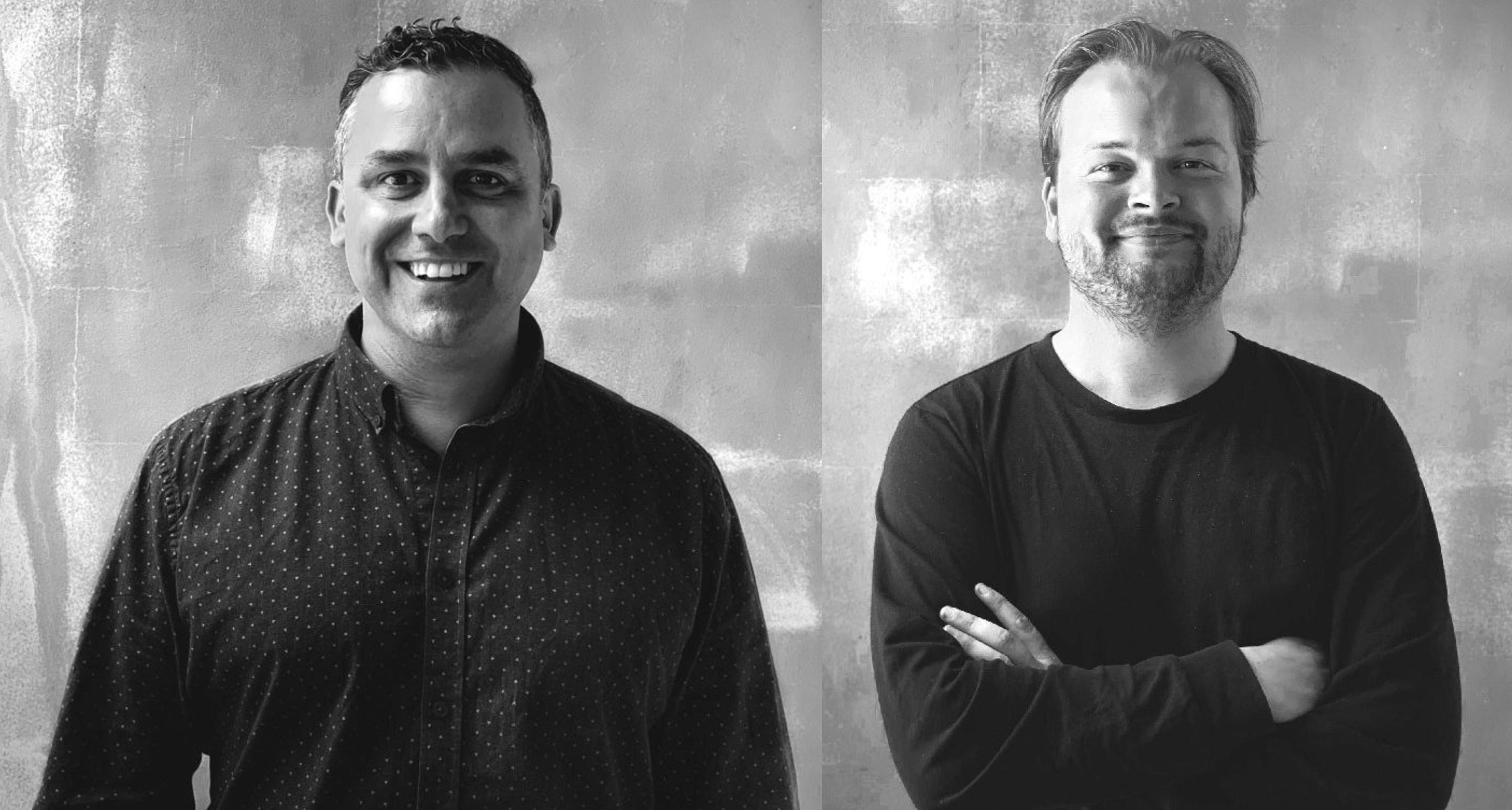
The Unmakers: Mutiny's SaaS bet to reinvent marketing analytics, and how it wants to reshape the industry
Welcome to The Unmakers, Unmade’s latest podcast series where we talk to people who are trying to remake the media and marketing world. Each episode will feature people who are doing business differently. We're going to meet the startups, the troublemakers, and the dreamers who've looked at the communications industry and are trying to find a better way. If you're an unmaker with a story to tell about how you're changing the media and marketing world, we’d love to hear from you on [email protected]. In today's first episode, Tim Burrowes talks to the founders of Mutiny, Henry Innis and Matt Farrugia. After leaving big network jobs, they chose not to simply start yet another agency. Instead, they launched a software company which helps marketers understand the return on investment of their media spend. Rather like Google analytics helps marketers to understand their digital activity, Mutiny attempts to do the same for marketing investment using the data that brands put into it. Mutiny's been around for more than three years, and a few days ago, it closed its first seed round with investors putting in $2.4m to help take the company global. The deal valued Mutiny at more than $10m. Tim caught up with Henry and Matt in Melbourne a few days before the announcement.Below is the full transcript of the interview. Today's episode of The Unmakers was edited by Abe's audio. And don’t forget, Unmade is offering 55% off an annual subscription to a paid membership of Unmade. That reduces the $650 price down to $292.50 per year. It will never be as low as this again. Transcript Tim Burrowes: I'm Tim Burrowes from Unmade. Welcome to The Unmakers, a series in which I talk to people who are trying to remake the media and marketing world. Each episode, I talk to people who are doing business differently. We're going to meet the startups, the troublemakers, and the dreamers who've looked at the communications industry and are trying to find a better way. If you're an unmaker with a story to tell about how you're changing the media and marketing world, I'd love to hear from you. Email me at [email protected]. Before you remake it, you've got to unmake it.In today's first episode of The Unmakers, I talked to the founders of Mutiny, Henry Innis and Matt Farrugia. After leaving big network jobs, they chose not to simply start yet another agency. Instead, they launched a software company which helps marketers understand the return on investment of their media spend. Rather like Google analytics helps marketers to understand their digital activity, Mutiny attempts to do the same for marketing investment using the data that brands input into it. Mutiny's been around for more than three years. A few days ago, it closed its first seed round with investors putting in $2.4m to help take the company global. The deal valued the company at more than $10m. I caught up with Henry and Matt in Melbourne a few days before the announcement. I began by asking Henry what this moment will mean for the business.Henry Innis: What we had set out to do over the past two to three years was we obviously started the business where it had a look and feel of a consultancy. We always set out with the plan to have SaaS and technology products at the heart of that.Tim Burrowes: SaaS being software as a service.Henry Innis: Yeah. So, and we proved out a SaaS model with some fairly large enterprise customers who have renewed a number of times. For us now, the key focus is how do we build what you would describe as a bottom-up SaaS model. So, a SaaS model which is, one, driving growth through its own product, and two, it's able to deliver value increasingly in a very automated way, both to our customer base but also to their agencies. This allows us to build tools on top of the platform that don't just do the core of marketing ROI, but also integrate back into agency workflows and also customer workflows more effectively.Tim Burrowes: Well, we'll get into the model and also the fundraising a little bit more. First, I guess the headline description of what mutiny offers is an ability for marketers and agencies to see how their media spend is being used most effectively.Henry Innis: Yeah, it's the best, we call it marketing investment analytics. So, in the same way that every single business has Google Analytics for their website and that is the primary form of measurement that you have within the marketing space, we envisage the same thing coming against your marketing pricing media going forward. So, marketers will install a platform that acts as a marketing investment analytics platform across all of their activities and allows them to see financial returns.Tim Burrowes: Well, we'll get into that properly in a moment. Matt, let me come back to you then. Let's do the origin story. Where did the two of you get together then to build Mutiny in the first place?Matt Farrugia: So, Henry and I met at WPP, I think it was around 2017 or thereabouts, and I was managing director of Y&R Creative Agency and also worked with a group across WPP, various clients at the time, and Henry was our national strategy director, and we struck a kind of natural working rhythm and a shared interest in real disruption for doing things differently and better, and also shared a frustration with a lack of speed to things like speed to insight and also evolving capabilities. So, then through that shared frustration, I guess, we thought, "Hey, let's go and start our own disruption and call it Mutiny."Tim Burrowes: And it's still fairly unusual for people who've got big network jobs to actually make the jump because you're quite well paid, there's not too much risk. Was it the opportunity in front of you or was it frustration in the world you were in? What actually propelled you out the door?Matt Farrugia: Great question. I probably put it to I became uncomfortable with being too comfortable, and I think those environments are really set up for you. We have to again, great environments for many people. You can build your careers in those networks. I think I was interested in looking beyond that and outside of those networks in terms of to create real change takes a level of risk, and also Henry and I set out to create something of real value, and the product that we have in market today, it didn't exist. The type of product we have today didn't exist. So, I think we just found that so incredibly exciting, and I think you hear of a lot of stories of large enterprise wanting to create new products for their customers, be it massive telcos or banks, whatever. It's a struggle. To create a new product, creating new value or tapping into white space as it's called, it the best way to do it is go and acquire a company who's doing it, or create a complete skunkworks team outside of that company to build that product. Yeah, do you know what I mean?Tim Burrowes: Well, Henry, let me bring you back in on that point. What you have now as a product, how close is that to what you had in the back of your mind when you first made the leap? Because I honestly thought you were adding a bit of a bit of sizzle to it, but basically you were starting another agency, and it took quite a while for the penny to drop for me that really, you're a software company.Henry Innis: Well, so I've always had a background in software. So, I think that's first thing is that Matt's had a background in avionics engineering. We both understand problems from an engineering and systems mindset. So, I think that helps. When we started, we looked at it through one of two lenses. Either we were going to be a consultancy, but we were going to use technology to attack the pricing structure really, really well. So, by way of example, you might do a consulting-style project, but at a much cheaper fee, much less head hours because you had something producing the outputs much cheaper. The alternative was pure placed SaaS, but either way, we were going to be reliant on some kind of technology product at the core from the very start of the business.I think the penny dropped for us that we were going to go down the SaaS route when we started seeing usage numbers. So, where people were coming into the platform, largely without us necessarily having to supervise and handhold, and that's where we started to go, "Well, this is really leaning a lot more towards SaaS." We weren't sure, being honest, which way it was going to go, just because of the nature of some of the industry. It is used to having a lot of support structures around it. But I think we decided about six months in when we started seeing some of those early numbers to do that. The other strength I think of SaaS is it actually allowed us to work better into the ecosystem because what we don't really want to do is you don't really want to replace the ingenuity of a media agency or a really good media agency planner because you can't replace that with data. The same goes with groups like creative agencies and things like that.So, I think one of the good things about being a SaaS product is you can build for both the agency and the customer and that helps, and versus if I'm one of our competitors, they bring in consultants and it's a bit off-putting, I think, to agencies to have an army of consultants sitting there critiquing their work in PowerPoint. I mean, I wouldn't really like that, whereas for us, it's a bit like installing Adobe or something similar. So, I think for us, that's why we focused on SaaS and those sorts of elements. Also, just think SaaS is more fun as a kind of something to execute.Tim Burrowes: Well, also presumably much more scalable as well. Well, I guess, talk about that sort of what it contributed to kind of the speed of the business's growth and everything. Let's just drill in a tiny bit into the product itself. I guess some of our listeners from a hardcore martech background will have a pretty clear picture. Others won't. If you were describing this in the pub, what is the problem that you're helping solve?Henry Innis: Well, I think, firstly, every marketer has more decisions than ever to make. We're not looking at decisions, shrink number of decisions shrinking. We're looking at number of decisions growing. The only platform at the moment that helps you make those decisions from a data-driven perspective realistically is website analytics. That's about as close as we get which is why everything has been so digitally skewed, and also because the data around digital is timely and it's provisioned in a format that's accessible, and it's quick and easy for an average person to use. For us, we believe that the orientation of the market around website analytics basically has, I don't want to say stuffed marketing, but it kind of has. What we are building is marketing investment analytics. So, a true, actual end-to-end analytics platform across your growth that sits across everything.Tim Burrowes: So, Matt, could you think of a good sort of hypothetical example of a decision that would be changed by using the product or it might be?Matt Farrugia: Yeah. No, great question. There are so many, and I think we're seeing a lot of use cases from our customers using the platform, and the decisions, we're seeing a lots of different types of decisions. The ones that we didn't anticipate, how they were using the platform, but I'd say the one would be relocating budget across channels that are underinvested that can deliver a greater impact. So, for example, we've had customers shift, they've identified $800,000 of budget for a particular campaign, and they were able to reallocate that with a high degree of accuracy into other channels that were underinvested, that the platform indicated if they moved this budget across these channels, they would get this.Tim Burrowes: And how specific are we being with channels? Is it just like, okay, if you move from, I don't know, magazines to newspapers, to use two old school examples?Matt Farrugia: That is an example. We can get down to the level of shifting budget across channels. So, for example, from online video to out of home, etcetera, or even to at a geography level, across publishers, across creative types, and also formats of advertising. So, a level of granularity that to do that previously, it took a hell of a long time, a hell of a lot of data, and really heavy on resources to determine that, where our platform now can deliver that insight to inform that decision in seconds.Tim Burrowes: And which of the agency groups have supported you now? Are all of the major holding companies involved?Henry Innis: We work primarily with customers.Tim Burrowes: So, mostly, it's brand side, as opposed to agency side.Henry Innis: Brand side are the people that will commission the contracts, yes.Tim Burrowes: Interesting.Henry Innis: So, we certainly go direct, but we have a number of various, I mean, you'd say across most of the majors, we probably, we have some level of interaction. I'd also just say most of them are pretty good at provisioning the data as well. They know what to give us and all those sorts of things. So, it's been pretty successful like that. We generally see once it's installed, again, I draw the analogy to Salesforce and Adobe. A customer normally install Adobe Analytics or something like that, and then following that, the agency will then start to use them and all those sorts of things as well. So, they'll come together and coalesce around a platform. I think for agencies, it can be quite good because they're not kind of marking their own homework in a sense, and so there's an independent platform where both the customer and the agency can come around and go, "Well, here's what we did working, and if not, why not?" and start to make those decisions in a fairly impartial kind of way.Tim Burrowes: And, Matt, how do you and Henry divide your labour? Who does what between the two of you as co-founders?Matt Farrugia: Good question. I think Henry spends a lot of time with the product and engineering team. I think that's where his strengths definitely lie, and I think and I spend a lot of my time with our customers and guiding them to how to get the most out of platform and how to see value and help them, educate them how to make those decisions that we're talking about, and then there's a whole bunch of operational stuff that we kind of share, but yeah.Tim Burrowes: Now, one of the side jobs to the main job recently has been doing a fundraising round which is a massive job in its own right. So, this would be, I suppose, if we talk about kind of preseed, seed, round A, the sort of size of the round of fundraising you're doing would be a seed round, presumably sort of $1 or $2m, something like that you've raised?Henry Innis: $2.4m.Tim Burrowes: $2.4m, and how will you spend it?Henry Innis: So, right now, I mean, there are a few factors that dictated why we raised. Right now, we've kept our burn roughly flat. We're not on a kind of a runway type model which must…Tim Burrowes: Yeah, so you weren't highly profitable but you weren't losing money in other words.Henry Innis: Correct, yeah. We hadn't really burnt significant amounts of capital and things like that. So, we weren't on a runway model or anything like that, but we wanted to move into two areas. The first is moving in and starting to data mine insights and things like that, just to make finding some of the areas a little bit easier and more responsive for our customer base and for our user base. That drives usage up for us and also just starts to get us into the workflows. The second is doing a lot of workflow integration. So, getting back into Slack, Teams, all those sorts of things, building links back into those areas. Again, the reason why is to build a stickier product. And then the third is to start to release data management tools on the other end of the funnel to make the whole process of data collection organisation easier, and we just want to basically make that free and make that the standard of how people collect and manage enterprise marketing data.We think that managing enterprise marketing data is a really hard and challenging thing for most organisations at the moment. We look a lot to a business called Dovetail who does the same thing in UX research, very, very large business now and very successful business. The way that they built a repository around UX research, we want to try to build the same kind of repository for marketers to use and manage that data. If we do those three things, we'll have, one, made managing data far easier, more effective for the market which is just good for us in the category generally. The second thing is we'll have provided a lot more value to customers through really strong usage based value, automated value creation products as well. And then the third thing that we'll have done is we'll have integrated far more into the workflows and the daily workflows of our user base than before.I think it's important to note our entire organisation is KPId on usage of the product. So, none of us are actually KPId on renewal of contracts and things like that. That's important to us, but the really important thing to us that we know matters is usage. If people are using our product, they're loving it, and therefore they'll renew. The same goes for kind of any other kind of business performance you look at. So, I think it's a very software way to view the world, but this raise allows us to continue to align to that and to invest in R& D in those spaces.Tim Burrowes: And what sort of people have invested this time round? What sort of backgrounds?Matt Farrugia: Yeah, varied. I guess we're quite humbled by the investors that have come in, and they do vary from being CEOs and chairpeople of very large organisations locally and globally. There's CEOs, former CEOs of very large media companies. There's some founders of some very successful product tech-focused companies. We're excited by the group of people that are getting on board and believing in our product and getting onto the journey.Tim Burrowes: And are there any names you are allowed to share at this stage?Henry Innis: Well, we certainly had some really great support, so I mean, the names, I mean, there are names like Brodie Arnold who's the chairman of iSelect, he'll be joining our board, and Charlie Gearside, he was one of the co-founders of Eucalyptus. Alexey Mitko as well who's a co-founder of Eucalyptus. We have Sir Robin Miller from the UK who was former CEO of Emap and chairman of HMV. And then also we had a UK quant fund Bloomsbury Information Capital who anchored the round effectively for us. So, most of our existing investors also followed their money which obviously helps and is a really good sign. So, we're pretty lucky that we feel we've found the right mix of technology, media, marketing leaders, and also just business leaders. You've also got a lot of people, we've been lucky to have Chris Savage people like John Curtius and other kind of those sorts of that sort of era as well.Tim Burrowes: And I think earlier in your life, before he went off to another gig in Asia, you had Cheuk Chiang on your board or CEO.Henry Innis: I think Chewy pursued other avenues which potentially were better suited to what he wanted to do.Tim Burrowes: For those who aren't really familiar with how these sort of raisings were, you kind of go preseed, seed, like you're planting a seed, and that's with the view to becoming big. Matt, how big can you get?Matt Farrugia: Sky's the limit. I think if we look at demand, we're sensing a lot of demand coming from other markets, including the US, and I think in terms of how big we can get, I think it's probably not just the amount of employees we are. It's probably the volume of media inventory money that's coming through the platform is what we are really interested in as well.Henry Innis: The way you can do it is that you can look at there are 150,000 businesses in the US who are able to get this product. If you were to assume a 10% conversion rate, so you get to about 10% market share. So, it's 15,000 businesses in the US. There are over 1,000 businesses in Australia. Again, you do the same maths. We estimate that the category itself could be somewhere in the orders of $10b plus. For us, we envisage that various players within the market could be taking up to $500m in recurring revenue.Tim Burrowes: And what's your pricing structure? You kind of alluded to the fact that there's a kind of entry level free level. Where do you go from there? What points do the businesses start paying and how?Henry Innis: Well, so there are two conceptual models in SaaS at the moment. Model one is what most people would be familiar with which is enterprise SaaS where you go in, you negotiate big contracts, and things like that, and to an extent, I think that's where we have traditionally been as well.Tim Burrowes: And that's usually priced on the number of users for instance?Henry Innis: No, so, well, it can be, but it's priced on a license for the enterprise and seats and features basically. Where we want to get to is primarily pricing against I would say usage and value. So, we want to be able to collect the data and do that data management piece largely for free. Then if you'd like to switch on the unified WarChest model which is able to model all of your data very quickly and effectively, that comes at a cost, but it can reliably deliver this result. Then on top of that, we then want to have pricing structures that exist around if we see a low ROI channel, able to data mine recommendations around that channel and provide that to get it from A to B and basically give people that confidence, or if there's a low performing brand or business unit, same again.Henry Innis: I think for us, it's important to note, we're not there yet. This raise gets us to that sort of model, but for us I think as a business, we want to be pricing around where value is created, not where reports are generated and things like that because ideologically for a business that gets us much closer to customer value, and again, I come back to that concept of usage and things like that. If you're constantly priced against usage, you're constantly incentivised against usage, and if you're entire business thinks about usage and workflows, then your entire business will be more in sync with your customer base than ever which is dangerous in tech if you're not doing thatTim Burrowes: Now, I guess you must have quite a nice sort of network effect as well, where the more data you get into the system, the more you mine, the more information you get. Matt, I guess when you're talking to customers, one of the objections you must get is well, what about protecting my data. How do you make sure that you kind of keep ward off each individual client's information and data? How do you reassure them about that?Matt Farrugia: We've tested out that. So we adhere to very strict standards around data security, information security, network architecture security, etcetera. I think the key thing there is data segregation. We have our engineers and our entire architecture is configured. When we roll out what we call an instance of WarChest for a customer, we have very, very well defined architecture that drives and manages what we call data segregation. There is no crossover of data. If there is, our automated notification systems just light up, and ultimately, that's the assurance and confidence we give our customers. We work with many customers across many categories, including banking, and finance, and retail and every other, all the other major spenders within advertised media. Australia especially has one of the higher standards and most strict requirements around things like compliance and security.Tim Burrowes: And of all of the insights that you've generated, just give me one really great example, "Oh, blimey, okay, that's interesting," where you'd never have thought that about the ROI of a particular channel, for instance. Henry, you look like you thought of one. You certainly leaned forward at that point.Henry Innis: So, well, I think there are two, one, out home is incredibly cyclical. So, one really interesting thing I think is that we see the effectiveness coefficients or what you call the time varying data of out of home varies across seasons, particularly it's obviously affected by the weather, but our working theory is, for example, shorter days equals shorter exposure times. Right? So, the actual amount of daylight has a direct effect on at home viewability as it were.Tim Burrowes: Even with digital outdoor, for instance?Henry Innis: Well, I think most digital outdoor, it's still not a dominant part of it. Right? So, I don't know if that would change with digital outdoor. It might, but that's an interesting one that we've picked up. Right now, we're exploring how long a Facebook scandal will impact effectiveness for Facebook.Tim Burrowes: Oh, that's interesting.Henry Innis: That's something we're exploring in.Tim Burrowes: What's the early information on that one?Henry Innis: Stay tuned, and I think the next thing, the other kind of interesting areas that we look at is one thing that's quite consistent is sometimes certain channels will have low ROI in a system, but that doesn't necessarily mean that they're bad. Sometimes it actually means they're underinvested. So, by way of example, some customer bases will maybe spend 5,000 or 10,000 in TV or 5,000 in TikTok or something like that, these quite visual mediums, and they tend to perform quite poorly. Why? Because they actually need a certain amount of weight. If I buy one TV and it gets lost in the noise versus if I buy 500 TV ads in a week, suddenly everybody remembers me. It's like Harvey Norman. Right? Everyone knows a Harvey Norman ad.Tim Burrowes: So, where would be the very last place you would spend your last thousand dollars based on everything you've seen?Henry Innis: Oh, it's a really dependent question on the actual business itself. So, I'll give you a really good worked example of this which is like search is a really funny platform to be in. Unless you have one of two factors, it's hard to make money in search, well, make profits in search, unless you've got two things. Right? One you've got to have a better operating margin. So, if you have a better operating margin, you can outbid other people effectively, and search works amazingly to drive ROI in that kind of case.Henry Innis: The second is if you have no competition. So if you have no competition in search again, it's an amazing place to be. So, those are the two vectors in which you look at search, but if I've got three companies, all who can pay up to a hundred dollars each for a customer, and then I'm in Google's ad bidding system, every company will basically bid away each other's margins in the auction system within search. So, I'd say search is a really interesting example of how it's brilliant in some context, but there have to be really clear dynamics on which it works to drive high ROI versus how people conventionally think about search which is as the kind of last element of it. It's very often it needs, there's certain dynamics you need.Tim Burrowes: Interesting. Now, obviously you're still quite early in the journey, but equally, once you start doing fundraising rounds, you have investors who are investing to see a return down the track and they want some pictures on the potential exit. What's the likely exit for you guys? Is it to get acquired by someone? Is it to float as an IPO? What are the options, do you think?Matt Farrugia: Good question. I think there are options. Right now, our focus is on in building our product and evolving our product roadmap. There is absolutely a complete obsession about our product and usage as Henry mentioned earlier. So, I think while an exit down the track of sorts might be there, right now, our focus and attention is actually just continuing.Tim Burrowes: And where would you naturally sit in an exit? Would it be with like a, I don't know, an Adobe or something like that, that already has a stack, do you think?Henry Innis: There's probably three to four categories of buyers that you think about. I think one thing I'd just say is we're enjoying building this business way too much to think about an exit. I think if you'd asked me three years ago, I probably would've had an exit in mind. These days, I think it's too much fun. So, I think that changes your calculus a bit, but I mean, your buyers are probably more in the data, analytics and business analytics space, I would say. So, I'd say groups like the S&P and those sorts of groups, or Bloomberg, tho those sorts of companies, I'd say, far more than an Adobe or far more than a Facebook or a Google, and there's a reason why, because those platforms have execution built into them, and because you're trading on their systems or trading on their rubric and things like that. There's a natural conflict if they acquire us so it's a little bit more difficult, and that's also why it's more difficult for them to enter our space as well.Henry Innis: So, those two things kind of work hand in hand. It's strategically hard for them to enter our space. That's why they haven't done it, or they haven't done it successfully at scale, but it also means that our buyer profile probably sits more towards that business intelligence group, but that's a long way off too. That's a long way off.Tim Burrowes: No, maybe might be the last question. Matt, I'll come to you first on this one. From the outside, this looks like a story of just like a rocket ship taking off. One of the realities of any kind of startups is never actually like that inside? You're zigging and zagging on the upward line. What's been hardest?Matt Farrugia: Yeah, good question, Tim. If I think about what's been the hardest, at the same time, the hardest had been the most rewarding. So, I think in the early days, Henry and I wore many hats. We kind of still do. One day I would be the customer lead, the legal council, the payroll manager, looking at cashflow.Henry Innis: You still are.Matt Farrugia: Yeah, thanks Henry. Yeah, and then the table tennis champion, but that's another story. So, I think, look, yeah, coming from large companies, I think anyone, when you get into a... Startups are not for the faint-hearted. They really aren't. Your risk appetite, you've got to be brutally focused on the vision and where you are heading and the potential and maintain that belief because the second that you let those little whatever you want to call them, the thoughts around negativity or the thoughts around that risk that's going to weigh you down that, oh, maybe we shouldn't do this, there's no point in going forward. You're not going to be cut out for it. So, I think the hardest bits were not having that complete support team around you like you did in a larger company. As we're growing, we're filling those gaps, but yeah, that's probably...Tim Burrowes: And Henry, what have you found the hardest?Henry Innis: Startups, you have to just be extremely resilient, and you have to effectively try to take every knock. I think the most important thing and the hardest thing is even if things aren't going your way, you've got to project an immense amount of confidence to everybody around you, and that's the hardest thing, I think. I think giving security and certainty to others in a very uncertain environment is a challenging thing to do and project, and it's a challenging thing to do mentally. You have to compartmentalize a lot. You have a lot of stress associated with that you can't let through, and that also creates a high degree of loneliness as well I'd say. So, I think the one thing I know is that certainty and confidence in decision-making and a decision, even if it's not perfect is better than no decision.Henry Innis: Those sorts of things are really important characteristics to bring through. And so, one of the things day in day out is providing that certainty, that confidence, even when you are feeling at your lowest, and I think that is the hardest bit that nobody talks about is providing that certainty, shaping that certainty, giving that confidence to people around you so that you are able to tackle big problems, big industry issues, big fires and all that kind of thing, do so with a focus and a clarity.Tim Burrowes: Well, it's going to be really interesting from where I'm sitting watching what you do next. So, Matt and Henry, congratulations on the fundraising and thank you very much for joining me.Henry Innis: No problems.Matt Farrugia: Thanks, Tim.Tim Burrowes: Thanks for listening to The Unmakers from Unmade. If you're an unmaker, I'd love to talk to you. Email me, [email protected]. Today's episode of The Unmakers was edited by Abe's audio. I'm Tim Burrowes. Before you remake it, you've got to unmake it. This is a public episode. If you’d like to discuss this with other subscribers or get access to bonus episodes, visit www.unmade.media/subscribe
36:3522/06/2022

Start the Week: M&C Saatchi sale saga continues; directors depart Judith Neilson Institute; Apple visits the Med; a happy Mutiny
Welcome to Unmade’s Start the Week podcast, dedicated to looking ahead to the week in media and marketing.Today’s topics:* Four directors depart the Judith Neilson Institute;* M&C Saatchi sale in doubt; * Apple seeks ad execs in Cannes; * Successful seed funding round for Mutiny Today’s episode features Unmade’s Damian Francis and Pure PR’s Phoebe Netto. Tim Burrowes is on leave. As always, we’d love to hear what you think at [email protected] reading: * SMH / The Age: Directors quit at billionaire Judith Neilson’s journalism institute* The Guardian: M&C Saatchi pulls support for £310m takeover by Next Fifteen* Financial Times: M&C Saatchi ejects top shareholder from board after agreeing deal* Digiday: Big Tech will court adland during Cannes’ comeback week with Apple and Amazon upping the ante* AFR: Mutiny eyes 200pc expansion after $2.4m seed roundAudio production on Media Unmade was courtesy of Abe’s Audio, the people to talk to about voiceovers and sound design for corporate videos, digital content, commercials and podcasts.Message us: [email protected] This is a public episode. If you’d like to discuss this with other subscribers or get access to bonus episodes, visit www.unmade.media/subscribe
27:4019/06/2022





